Speakers
Presentation of the speakers and the contributions proposed for the Symposium.
1) Daniel Cesar Robaldo - The evolution and function of Myths in Human History.
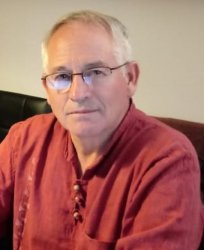 The presentation traces a path through human history and its connection to myths, explaining in detail how these have evolved from the discovery of fire to the present day. Drawing on forty years of research in education and information and communication technologies (ICT), the author has observed in the programs implemented by his foundation how a humanizing education leads young people to explore their deepest desires in a non-violent way. They project their utopias into a future filled with hopeful and possible images.
The presentation traces a path through human history and its connection to myths, explaining in detail how these have evolved from the discovery of fire to the present day. Drawing on forty years of research in education and information and communication technologies (ICT), the author has observed in the programs implemented by his foundation how a humanizing education leads young people to explore their deepest desires in a non-violent way. They project their utopias into a future filled with hopeful and possible images.
The author will connect these experiences to his fifteen years of research into how utopias fuel the myths of various American peoples. Through his travels in various countries of the continent, he has been able to observe the evolution of these myths, which have adapted to the different cognitive levels developed as a result of new experiences, until today, when a materialistic culture denies utopias and promotes individualism, in contrast to the flourishing of past cultures guided by myths.
However, the author perceives the first signs of the birth of a new myth and invites the audience to actively participate in its construction. With a historical perspective inspired by New Universal Humanism, the author will present a framework for the "Mythical Process", applicable to any culture and useful for understanding not only the evolution of cognitive processes, but also the origin of the search for the sacred, understood as "intuition". In this way, the speaker anticipates the contents of his next book.
Daniel Cesar Robaldo. Independent Humanist researcher for over 40 years, affiliated with the School of Silo (New Universal Humanism). Writer and lecturer in the fields of education, comparative religion, and cultural anthropology. Currently conducting research on myths in the Americas and serving as president of the Da Vinci Foundation in Argentina.
2) Ernesto “Tito” De Casas - Profile of Silo and his contributions.
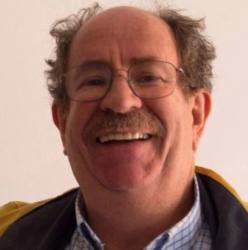 Here I present an approximation to Silo, Mario Rodríguez Cobos, a universal mendocino, whom I met since the 60s, until his departure in 2010.
Here I present an approximation to Silo, Mario Rodríguez Cobos, a universal mendocino, whom I met since the 60s, until his departure in 2010.
His activities to disseminate his universalist contribution to personal and social development have been numerous, in two specific areas: the New Humanism and the Message. His literary work is multifaceted and is published in the "Complete Works" and in other texts, also available on the silo.net website in several languages. Moreover, other authors collect his proposals and expand his contribution in various aspects, as we will see in the conference.
The thesis sustained here is that Silo is an author of the present and the future, who helps to overcome archaic conceptions, which still persist by inertia. His book "Humanizing the Earth" is explicit in its proposals, as is his spiritual contribution entitled "The Message of Silo". Thus, both in the intellectual and mystical fields, he offers significant experiences to those who are interested, opening doors to the future in this uncertain juncture of humanity.
Ernesto “Tito” De Casas. Nace el 29 de marzo de 1947 en Mendoza, Argentina. Hijo de José Ernesto y Leonor González, ambos dentistas, radicados en Luján de Cuyo y es el mayor de dos hermanos. Padre de 3 hijos y casado con Teresa Gutiérrez. Después de la escuela primaria cursa el bachillerato en el Liceo Agrícola DF Sarmiento que completa con el ciclo básico de Bellas Artes. Estudia Inglés y se convierte traductor técnico. Se integra a los comienzos del Movimiento Humanista, que funda Silo en la provincia, participando en todas las etapas del Siloismo. Realiza diversos viajes por el país y después irá a Europa y EEUU, y Asia, residiendo en Tokio, Japón y Madrid antes de regresar a su provincia. Escribe y publica Todavía hay Futuro y Entorno a Silo y hace diversos aportes y estudios de temas afines al Humanismo.
3) Adolfo Carpio - "Chile and the world at the crossroads" (book presentation).
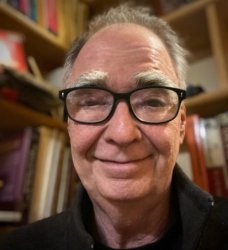 What is happening in the world today? What does the future hold for us? These and other questions are on the minds of many of us. Answering these questions is not an easy task. The characteristics of the times in which we live, in which quick and short-term responses, dystopias and the search for easy solutions to complex issues prevail, complicate the panorama even more. However, it is a necessary task to try to understand the world in which we live, what to expect, and adjust a life project. In other words, these questions that we ask ourselves are existential in the purest sense of the word. They compromise our existence as individuals and as a society.
What is happening in the world today? What does the future hold for us? These and other questions are on the minds of many of us. Answering these questions is not an easy task. The characteristics of the times in which we live, in which quick and short-term responses, dystopias and the search for easy solutions to complex issues prevail, complicate the panorama even more. However, it is a necessary task to try to understand the world in which we live, what to expect, and adjust a life project. In other words, these questions that we ask ourselves are existential in the purest sense of the word. They compromise our existence as individuals and as a society.
Adolfo Luis Carpio. Born in Buenos Aires in 1951. B.A. Comparative Religions from the University of Puerto Rico. He has dedicated himself professionally to software engineering. Specialist in generalities. He began his participation in the Humanist Movement in Buenos Aires in 1971. He has developed activities in Buenos Aires, Puerto Rico, San Francisco, New York and now in Santiago and Valparaiso. He is a full member of the Humanist Center for Studies "Instituto Tókarev" and applies at the Center for Studies in the Study and Reflection Park "Los Manantiales".
5) Luis Javier Botero Arango - Is a society that doesn't kill possible?
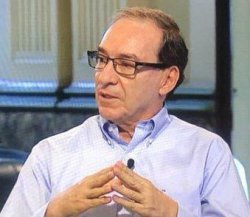 Based on over 25 years of research by Dr. Glenn D. Paige and Dr. James W. Prescott, as well as the World Health Organization's World Health Report, the possibilities, necessary changes, and steps to be taken to create a society that does not kill are presented.
Based on over 25 years of research by Dr. Glenn D. Paige and Dr. James W. Prescott, as well as the World Health Organization's World Health Report, the possibilities, necessary changes, and steps to be taken to create a society that does not kill are presented.
Luis Javier Botero Arango. MSc in Industrial Engineering (Integrated Human Systems), Iowa State University, USA. First winner of the Gene Sharp Activist Award for Nonviolence - Palestine, 2005. Nonviolence Trainer, certified by the University of Rhode Island - USA, 2000. Over 20 years of experience as a manager in the Colombian private sector. Nonviolence Advisor to the Government of Antioquia, Colombia (7 years). Nonviolence Advisor to the Mayor's Office of Medellín, Antioquia (3 years).
6) Eugenia Anahí Figueroa - The Communal Paradigm of Good Living.
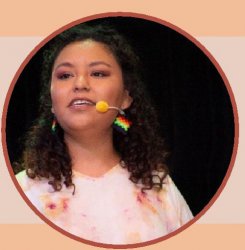 The process of change emerging today in the region, from the perspective of indigenous peoples, radiates and impacts the global environment, promoting an ancestral paradigm, the communal paradigm of the culture of life for good living, based on a way of life reflected in a daily practice of respect, harmony and balance with everything that exists, understanding that in life everything is interconnected, interdependent and interrelated.
The process of change emerging today in the region, from the perspective of indigenous peoples, radiates and impacts the global environment, promoting an ancestral paradigm, the communal paradigm of the culture of life for good living, based on a way of life reflected in a daily practice of respect, harmony and balance with everything that exists, understanding that in life everything is interconnected, interdependent and interrelated.
Eugenia Anahí Figueroa. I am an advanced student of Social Communication, with 8 subjects left to graduate. I am looking for a job opportunity that will allow me to continue developing the knowledge I have acquired and to continue the learning process in the field of communication with indigenous identity.
7) Giorgio Gaviraghi - The Future of Humanity: Evolution or Extinction?
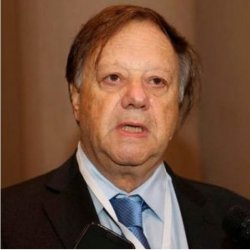 In recent months, the applications and advancements in artificial intelligence (AI) have grown exponentially, suggesting that the Technological Singularity—an event whose consequences we cannot foresee—is near, possibly even before 2029, as predicted by Ray Kurzweil, one of its leading theorists.
In recent months, the applications and advancements in artificial intelligence (AI) have grown exponentially, suggesting that the Technological Singularity—an event whose consequences we cannot foresee—is near, possibly even before 2029, as predicted by Ray Kurzweil, one of its leading theorists.
In this context, AI is increasingly capable of performing "human" tasks, threatening not only jobs but the very existence of humanity should AI dominate. According to the Sapientia scale, our progress is leading us towards evolutionary advancements, including Brain-Computer Interfaces (BCIs), enhancements to our biological bodies with extended lifespans and cures for many diseases, thus creating a superior being through technology. This also encompasses entry into new environments such as space, following the transition from sea to land by living beings.
With the advent of the Technological Singularity, where superintelligent AIs become independent of humans, their priorities might diverge from ours, potentially leading to a future vastly different from what our anthropocentric view anticipates. If AIs were to dominate, humans could become secondary, and projects dedicated to human advancement, particularly in medicine, might lose the momentum gained in recent years.
In this presentation, we aim to explore alternative scenarios for the Singularity and other possibilities for both humans and machines. For instance, space, being more suitable for machines than biological beings with their life needs, could be the first sector where machines might exclude human participation. All stages of the Sapientia scale (human body, territory, environment, technology) would need to be re-evaluated and revolutionized by the participation of machines and their different priorities.
As shown by the Sapientia scale, some hypotheses for collaboration to achieve a symbiotic coexistence between humans and machines would depend on the speed at which technological and other advancements could be made available, allowing humans not to be surpassed by the capabilities of machines. BCIs, mind uploading, and other medical advancements could improve human conditions, offering cooperative alternatives and preventing machine supremacy.
We are at a critical juncture in our history, and we must recognize the situation, analyze development trends, and enhance the capabilities of the biological being, even if augmented by technology. It is essential to find common ground between humans and machines for a symbiotic coexistence that allows progress for both parties within a framework of universal benefits. This presentation is based on these principles.
Giorgio Gaviraghi. Architectural degree fromthe Milan Polytechnic. Responsible as project manager for major international projects, also acting as CEO for international companies operating in Europe, the US, Latin America and the Middle East in the field of design and construction. Author of over 80 papers ranging fromspace, transportation, city planning, design and other topics, including authoring articles and books.
8) Hugo Novotny - "Light, Gravity, Time, and Mind - We are not alone" (book presentation).
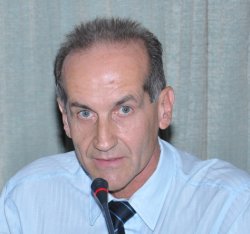 The generations that have shared these first decades of the 21st century have been part of a dramatic and unprecedented evolutionary transition of humanity. On the one hand, the political and economic forms, institutions, beliefs, and values of an old world are crumbling; and the powerful who still seek to sustain them to preserve their power and privileges are dragging the societies of practically the entire planet into wars, genocides, climate catastrophes, and all kinds of inequalities and injustices.
The generations that have shared these first decades of the 21st century have been part of a dramatic and unprecedented evolutionary transition of humanity. On the one hand, the political and economic forms, institutions, beliefs, and values of an old world are crumbling; and the powerful who still seek to sustain them to preserve their power and privileges are dragging the societies of practically the entire planet into wars, genocides, climate catastrophes, and all kinds of inequalities and injustices.
But at the same time that this drama unfolds, a new sensibility is being born; a new landscape of travelers of the deep, the cosmos, and the mind is emerging. Paradoxically, as Science advances in the exploration of the origins of the Universe and life, in the search for other worlds, other lives, and other intelligent beings, humans are beginning to discover within themselves consciousness, the "inner gaze," and the intention that moves it, in themselves and in others; to glimpse an evolutionary intention that drives everything, a Plan that lives in all that exists.
A new spirituality, capable of inspiring a new evolutionary leap in human beings, is beginning to manifest itself, softly and silently, in different latitudes. An inner religiosity that is growing, giving way to a new universal sacred myth. Within ourselves, we begin to feel that we are not alone, nor are we chained to this time and this space.
Hugo Novotny (1956) was born in Santa Fe, Argentina. He is a writer, researcher at the Parque de Estudio y Reflexión "Carcarañá" parquecarcarana.org and the Humanist Pedagogical Current copehu.org, and a Russian language translator. From a young age, he has participated in the philosophical and social current known as Universal Humanism, founded by the writer, thinker, and spiritual guide Silo (Mario Rodríguez Cobo, 1938-2010). He promotes the translation and publication of Silo's work in Russia, Mongolia, and other Asian countries. He resided in Moscow for twelve years. Among his books are: "La conciencia inspirada en la Filosofía, la Mística, el Arte y la Ciencia" co-authored with P. Figueroa and C. Baudoin (2012); "Luz y tiempo – Representaciones del Universo, espacio-temporalidad y sustrato de creencias en la conciencia humana" (2018); "Caminos espirituales del Asia" (2020) and "Luz, gravedad y tiempo – En todo lo existente vive un Plan" (2021). His writings in Spanish, English, and Russian are available at hugonovotny.academia.edu, he currently resides in the city of Godoy Cruz, Mendoza, Argentina, and participates in the Community of Silo's Message.
9) Javier Tolcachier - El Foro Humanista Mundial. Una utopía en marcha.
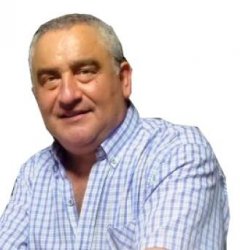 More than three decades ago, on October 7th and 8th, 1993, the First World Humanist Forum was held in Moscow. On that occasion, the founder of the Humanist Movement, SILO, stated that "the objective of this forum would be to study and take a position on the global problems of the world, structurally relating the phenomena of science, politics, art, and religion." He also specified that the Forum "aspires to become an instrument of information, exchange, and discussion among people and institutions from the most diverse cultures of the world, and that it also aims to take on the character of a permanent activity so that all relevant information can circulate immediately among its members." Over the years, various Humanist Forums have been held in different parts of the world, giving continuity to this impulse. More recently, a group of humanists from Africa, Europe, Asia, and Latin America has been proposing to take advantage of the accumulated experience, inviting to connect the various Regional Forums in a permanent World Humanist Forum, which would serve as a platform for dialogue and joint action for organizations and people from different fields and cultures to continue laying the foundations of the Universal Human Nation. The presentation will explain the processual character of the World Humanist Forum, comment on its antecedents, the guidelines for its updating and vision for the future, and invite you to join this Utopia in Motion.
More than three decades ago, on October 7th and 8th, 1993, the First World Humanist Forum was held in Moscow. On that occasion, the founder of the Humanist Movement, SILO, stated that "the objective of this forum would be to study and take a position on the global problems of the world, structurally relating the phenomena of science, politics, art, and religion." He also specified that the Forum "aspires to become an instrument of information, exchange, and discussion among people and institutions from the most diverse cultures of the world, and that it also aims to take on the character of a permanent activity so that all relevant information can circulate immediately among its members." Over the years, various Humanist Forums have been held in different parts of the world, giving continuity to this impulse. More recently, a group of humanists from Africa, Europe, Asia, and Latin America has been proposing to take advantage of the accumulated experience, inviting to connect the various Regional Forums in a permanent World Humanist Forum, which would serve as a platform for dialogue and joint action for organizations and people from different fields and cultures to continue laying the foundations of the Universal Human Nation. The presentation will explain the processual character of the World Humanist Forum, comment on its antecedents, the guidelines for its updating and vision for the future, and invite you to join this Utopia in Motion.
Javier Tolcachier. Born in 1960 in Córdoba, Argentina. His existential restlessness and early interest in the possibility of social transformations merge into an intense search, until he finds in Siloism a wonderful synthesis to embrace the best of causes: Humanizing the Earth. Within the framework of the dissemination of Universal Humanism - a current of thought founded by Mario Rodriguez Cobos (Silo) - he has organized and participated for over four decades in communication and training activities in different countries of Europe, Africa, Asia, and Latin America. He is a researcher at the Center for Humanistic Studies in Córdoba and a columnist for the international news agency Pressenza. Among his works are the books "Memories of the Future", "The Fall of the Dragon and the Eagle", "Humanizing History"; "Trends", along with lectures, articles, studies, and monographs that seek to apply a humanist perspective to various fields of human activity. He lives with his wife and two children in his hometown.
10) Guillermo Cabruja - Community education, literacy in prison settings and low-income neighborhoods of Rosario and surroundings areas.
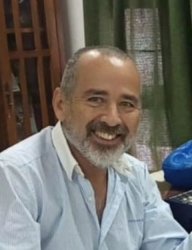 We are a group of people united in the Civil Association "Alfabetización Santa Fe" who carry out voluntary work. Our work focuses on literacy for young people and adults deprived of their liberty in prisons, as well as in the various low-income neighborhoods of the city of Rosario, where the community is experiencing a situation of social vulnerability. Our team is made up of various actors in society: workers, students, professionals from different disciplines, and representatives of various spheres of daily life.
We are a group of people united in the Civil Association "Alfabetización Santa Fe" who carry out voluntary work. Our work focuses on literacy for young people and adults deprived of their liberty in prisons, as well as in the various low-income neighborhoods of the city of Rosario, where the community is experiencing a situation of social vulnerability. Our team is made up of various actors in society: workers, students, professionals from different disciplines, and representatives of various spheres of daily life.
Education is a human right, and we know that school dropout and failure are the product of social inequality. We are inspired to carry out popular education that restores to individuals the capacity to act and transform the reality that has historically excluded them. The idea was born in our city 12 years ago, to respond to concrete educational problems in the population, and began in penitentiary units.
Together with volunteers from our city and the "Multisectorial de Solidaridad con Cuba" organization, we implemented the program called "Yo, sí puedo," which was created in Cuba by Leonela Relys and successfully developed in different countries around the world. The dynamic is to work collectively with internal facilitators, who act as a link with the participants in the literacy workshops, generating solidarity relationships and consolidating social bonds.
The 2015 Education for All Global Monitoring Report estimated that around 781 million adults are illiterate, and that two-thirds of them are women. Consequently, illiteracy exacerbates gender inequality in access to education and the free development of personality. At the local level, our organization estimated a figure of 30,000 illiterate people in the city of Rosario in February 2020. As a result of the highlighting of this problem by studies and surveys carried out in 2018, the National University of Rosario was challenged by the situation and invited us to work jointly with the Law School of the UNR through the Social Linkage and Access to Justice Area, creating the University Extension Program "Literacy and Access to Justice."
The Program seeks to address different dimensions of literacy, focusing on contexts of social vulnerability, involving researchers, teachers, students, non-teaching staff, social organizations, and government agencies in the literacy task. In this way, we seek to establish and strengthen a comprehensive intervention network with schools, clubs, popular libraries, neighborhood associations, soup kitchens, etc.; that demonstrate the importance of working together for equal rights. We have already taught around 500 people in prison, and we are working with children, adolescents, and adults from various neighborhoods in the city of Rosario.
Guillermo Cabruja. Founder and Coordinator of "Alfabetización Santa Fe". Civil Engineer. Master's degree in Marketing and Commercial Management from ESEM Business School - Madrid, Spain. Businessman. Peronist activist.
11) Judy Grisales Alape - Sustainable leadership: better people, better systems.
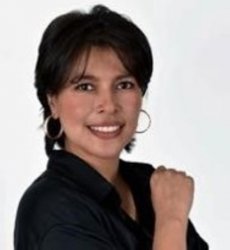 In a world that is increasingly interconnected and facing global challenges such as climate change, inequality, and the ongoing humanitarian crisis caused by violence, the need for sustainable leadership is becoming increasingly urgent. This presentation will explore the concept of "Sustainable Leadership" on the premise that, to build resilient and equitable systems, it is essential to cultivate leaders who are both ethical and effective.
In a world that is increasingly interconnected and facing global challenges such as climate change, inequality, and the ongoing humanitarian crisis caused by violence, the need for sustainable leadership is becoming increasingly urgent. This presentation will explore the concept of "Sustainable Leadership" on the premise that, to build resilient and equitable systems, it is essential to cultivate leaders who are both ethical and effective.
Judy Grisales Alape. CEO of the Global Sustainable Leadership Network. Creator of the Zero Hunger Humanitarian Social Responsibility Network (Colombia & Venezuela 2020). Co-founder of @profeCAN Leaders in ZOOcial Responsibility. Director of @poliTalksclub -People, Planet, Prosperity, Peace and Podcast 2030. Professor at the Technological Units of Santander -UTS- . Currently directs the International Commission for Sustainable Development -Agenda 2030- Global Women Leaders. She also leads the Policy and Governance commission at Nethuman.org . Political woman, activist, social worker and change agent in favor of citizen participation, the defense of the human rights of children, adolescents and families in LATAM and the Caribbean.
13) María Dolores Hernández Mosqueda - Legal regularization of migrant women through social work intervention.
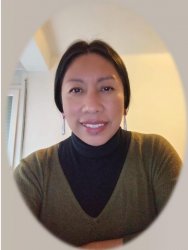 The aim of this project is to raise awareness of the situation of risk and vulnerability faced by migrant women as a social problem, compounded by the lack of legal regularization. This prevents them from having the right to basic services, as well as from receiving more direct guidance on their migratory situation. Through social intervention in the field of social work, care and support would be provided to promote the social inclusion and cohesion of migrant women.
The aim of this project is to raise awareness of the situation of risk and vulnerability faced by migrant women as a social problem, compounded by the lack of legal regularization. This prevents them from having the right to basic services, as well as from receiving more direct guidance on their migratory situation. Through social intervention in the field of social work, care and support would be provided to promote the social inclusion and cohesion of migrant women.
María Dolores Hernández Mosqueda. I am Mexican, from Mexico City, and I am completing my studies in Social Work at the National Autonomous University of Mexico, in the SUAYED system. I arrived in Spain with my children as an asylum seeker, due to the gender-based violence I experienced in Mexico. Since my arrival in Spain, I have been included in the circuit of care for victims of gender-based violence, where I have been subject to the care protocol offered by this circuit. I consider myself a social activist, in favor of justice. My social participation in this country is through social accompaniment of migrant people, especially women. I am the creator and coordinator of the ENCIDEM project (Enlace Integral de ciudadanas(os) del Mundo) which offers care and interventions to meet the needs of vulnerable groups, especially migrant women. I promote the dignity of domestic work and care. I volunteer for the Red Cross and other social entities. I participate in forums, talks, seminars, and meetings where issues such as migration, foreign affairs, education, gender-based violence, care, entrepreneurship, from the perspective of social change and public policies are raised. I offer workshops and talks where I promote a gender perspective based on equality and equity. Living outside of Mexico has made me realize that no matter how difficult life may be, you can always contribute to social change from wherever you are.
14) Rodrigo Arce Rojas - Symbiotic Humusnity.
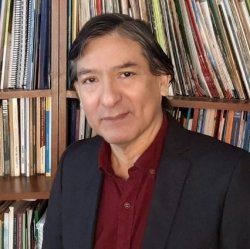 Our civilization has been built around human well-being, which is commendable; however, it is insufficient to address the severe civilizational crisis we find ourselves in, which manifests in multiple ways in the environmental, economic, social, political, and axiological spheres, among others. Although humanism is permeable to ecological approaches, it still has a strong anthropocentric imprint based on human exclusivity that attributes qualities to humans that are not replicated in other expressions of life.
Our civilization has been built around human well-being, which is commendable; however, it is insufficient to address the severe civilizational crisis we find ourselves in, which manifests in multiple ways in the environmental, economic, social, political, and axiological spheres, among others. Although humanism is permeable to ecological approaches, it still has a strong anthropocentric imprint based on human exclusivity that attributes qualities to humans that are not replicated in other expressions of life.
With our current level of scientific knowledge, it is possible to affirm that several characteristics previously considered unique to humans are not, as expressions such as culture, politics, and morality are also manifested in animals, albeit to a different degree than in humans. It is now possible to affirm that consciousness, intelligence, agency, and even technology are more widespread attributes in all expressions of life, although they vary qualitatively compared to humans. This realization invites us to expand the moral community to include other expressions of life, without resorting to a bio-egalitarian proposal but rather marked by respect for all expressions of life for their intrinsic value.
It is within this framework that the concept of "humusnity" is proposed to refer to all expressions of human and non-human life (more than human, other-than-human) in recognition that we are all ultimately humus, earth, all formed from a common base of chemical elements in different proportions. It is not just a way of recognizing ourselves as part of nature, although specific attributes have led us to create a second nature, but to make an ontological shift from a utilitarian relationship with nature to a relationship of conviviality, from the pursuit of material development and accumulation to a relationship of biocultural well-being, where both human well-being and the well-being of nature matter. In this way, the search for utopia has to do with co-habiting based on an ethics of care extended to all expressions of life. This is not an ideological position but the recognition that all expressions of life belong to the same web of life and that symbiosis has been, and continues to be, a manifestation of collaboration, associativity, as part of the forces of evolution.
These perspectives are supported by the eco-evo-devo approach (ecology-evolution-development) and epigenetics, which explain why the categories of nature and culture have blurred in recent times. Symbioethics, therefore, encompasses this perspective of an integrative ethics that recognizes the fact that all living beings are interrelated in one way or another, as expressed by our character as holobionts, which is nothing more than another way of saying that we are Gaia, we are Pachamama, we are the Biosphere, we are interspecies and we co-exist.
Rodrigo Arce Rojas. Doctor in Complex Thought (2018), Master of Science in Forest Resources Conservation (1992) and Forestry Engineer (1988). With 35 years of experience and contributions to the interactions between society, nature and culture applied to community forest management, forest certification, climate change and REDD+, conservation, agroforestry, agroecology, agrobiodiversity, anthropological ecology, watershed management, environmental auditing, rights of indigenous peoples, indigenous peoples in isolation and initial contact, environmental and forest public policies, dialogue, participation and participatory methodologies, prior consultation, governance, conflicts and capacity building with national (IIAP, WWF, CARE) and international organizations (FAO, GIZ). University professor, reviewer of scientific articles, facilitator of events and social processes, tutor of doctoral theses in Complex Thought at the Edgar Morin Multiversity of the Real World in Mexico.
15) Damián Arias - Artificial Intelligence: a critical and ethical approach, along with the opportunities it presents for the Social and Solidarity Economy.
In our Work and Society course, part of the Social and Solidarity Economy degree at UNLZ, we'll explore how Generative AI is transforming education, work, society, the economy, and the environment. We'll also discuss the ethical implications of these technologies in our everyday lives, from familiar examples like Netflix and social media to the smartphone in your pocket.
16) Nicolás Ortiz Esaine - Innovative culture and development of emerging producer communities.
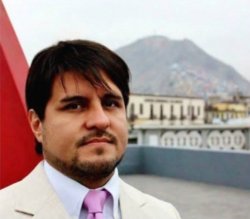 Within the context of a pandemic and recovery, a study of the concept of innovation is being conducted in certain emerging producer communities that have successfully adapted. To this end, concepts such as organizational culture and innovative thinking are analyzed in emerging producer communities (ECCs).
Within the context of a pandemic and recovery, a study of the concept of innovation is being conducted in certain emerging producer communities that have successfully adapted. To this end, concepts such as organizational culture and innovative thinking are analyzed in emerging producer communities (ECCs).
To this end, an exploratory study is being organized with stakeholders from different key sectors—from the business, social, state, and community sectors. The following are analyzed with them:
a) the sociocultural context and impact of the pandemic;
b) the impact on the business sector;
c) organizational action and reaction to the pandemic; and d) expected changes in emerging producer communities (ECCs). The study focuses on three different levels of action.
The study analyzes how an ideal innovative culture framework would be configured to address intense and unexpected changing contexts such as pandemics.
Nicolás Ortiz Esaine. Strategist, consultant, researcher, professor, author.
Grades: MARKETING, MSc.; ANTHROPOLOGY, MA.; COMMUNICATION, BA.; BEHAVIOURAL Sc., Phd (c).
Professor: Post – Under grade. IAELyon, UPC, ULIMA, UNMSM, ESAN, UCAL, PUCP.
Author, scientific divulgator. Ebooks: EtnoMarketing, Pandemia de Cambios, Tribus de Consumo, Codigo Cultural, DePeAPa, Consumidor en la Estrategia.
Experience: Consumer Insights, Marketing & Trade, Communication & Advertising, CSR / RSE / Sustainability, CX/UX design researcher, Agile Trainer.
17) Yngrid Vanessa Armas Matallana - Hypergamy and Power Dynamics in Marriage.
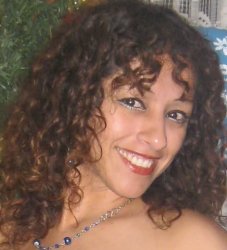 Hypergamy is a sociological concept that describes the tendency of individuals to seek partners who are perceived to have a higher socioeconomic or educational status than themselves. Historically, women were more likely to marry men with greater resources or social status.
Hypergamy is a sociological concept that describes the tendency of individuals to seek partners who are perceived to have a higher socioeconomic or educational status than themselves. Historically, women were more likely to marry men with greater resources or social status.
Within marriage, power dynamics become evident in how authority, control, and decision-making are distributed and exercised within the couple. If one person in the relationship has a significant advantage in terms of education, income, or status, it is likely that this advantage will translate into greater influence within the marriage. This power imbalance can affect various aspects of the relationship, from financial decisions to the division of household responsibilities and childcare.
However, power dynamics in marriage are changing. Women are increasingly present in the labor market, achieving educational and economic levels similar to or higher than their partners. This has led to a reevaluation of traditional roles within marriage and greater negotiation of power between spouses.
Yngrid Vanessa Armas Matallana Attorney specializing in civil and commercial law, with a focus on environmental protection and the rights of women, children, and adolescents. Extensive experience in banking, corporate, competition, and consumer protection law. Strong skills in conciliation and conflict resolution, as well as a passion for interior design and the arts in general.
My primary objective is to protect the rights of children and adolescents, ensure the physical and moral integrity of women in our society, and promote the protection of the environment.
I am also a self-taught poet.
18) Sergio Ríos, Alejandra Ibarra - Convergence of diversity.
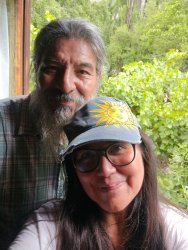 Within the framework of the interest expressed in the 10th Symposium in the search for transformations in the way we look at ourselves and at what happens in the world, transcending the usual gaze, broadening the perspective through the development of a lucid consciousness, we consider it relevant to share the experience report "convergence of diversity, an effective and transformative perspective, as a contribution that could serve as a tool to activate deep and common internal experiences.
Within the framework of the interest expressed in the 10th Symposium in the search for transformations in the way we look at ourselves and at what happens in the world, transcending the usual gaze, broadening the perspective through the development of a lucid consciousness, we consider it relevant to share the experience report "convergence of diversity, an effective and transformative perspective, as a contribution that could serve as a tool to activate deep and common internal experiences.
This writing collects the result of several attempts to order and share the translation and deepening of the doctrine, in the online "Contacto" Workshop Cycles, carried out during 2023 and 2024. It is the joint experience from the first reflections, the creation, implementation and evaluation of the process.
We want to leave a record, communicate the results and projections of the workshop cycle, to motivate openness. The relevance of this writing is related to learning as accumulation, an approach to deep internal experiences that we consider fundamental to attune ourselves to this new evolutionary stage of the human being, in which a greater awareness and coherence is sought. But the fundamental importance of this work is the discovery of that "other look", that place, enabler of new realities.
We began to synthesize the seminars held in 2022, to summarize and translate the topics into simpler language, to reduce them to 2-hour online workshops. Adapted to the audience we projected to reach, people who did not participate in other areas of the movement, ideally young people looking for a space for personal and social development. In this way we facilitated the understanding of the contents and favored the depth of the internal experience. We highlight as the most relevant, the reflection that connects personal difficulties with attitudes that justify our habitual behaviors and experiences that generate strong shocks and produce changes in the relationship with oneself, with others, with the transcendent and the sacred. We arrived at a synthesis of experiences with the potential to generate deep reflections and positive changes in people's lives.
From the study of the materials, we came to the conclusion that convergence is a key aspect for the development of the new humanism. Understood as the creation of networks between individuals and/or organizations that promote cooperation, solidarity and non-violence. Seeking convergence, we agreed to place this cycle of online workshops in the Community for Human Development, for work with guided experiences.
Sergio Ríos. Participates in the Humanist Movement since 1986. He participated in the 4th cohort at the Manantiales Study and Reflection Park, where he joins as a Teacher of the formal discipline currently applied at the Paine Study and Reflection Park and activist for non-violence of the Community for Human Development in Chile. Together with Alejandra Ibarra, he creates, coordinates and develops the CONTACT workshop cycle that takes place in a virtual format from 2023 to 2024.
Alejandra Ibarra. Participates in the "Hacedores de Sentido" message community, Mental Discipline Teacher at the Global Virtual Study Center, attached to the Paine Park. Activist for Non-violence of the Community for Human Development in Chile. Together with Sergio Ríos, she creates, coordinates and develops the CONTACT workshop cycle that takes place in a virtual format from 2023 to 2024.
19) Adrián Cortés - Silo and human biological immortality. It's no longer a utopia.
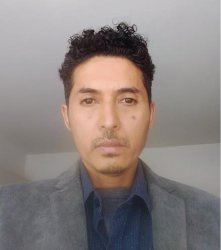 Science and technology, through the historical accumulation of developments and discoveries, periodically reach critical moments that allow for qualitative leaps that impact the entire civilization. In this line, we trace the discovery of fire, the wheel, or agriculture. Fire allowed us to have shelter in cold and hostile environments such as caves, as well as to predigest our food, facilitating its assimilation and thus obtaining better nutrients for the development of our nervous system, consequently generating cognitive improvements. The wheel facilitated physical work, making heavy loads more manageable, leaving us energy available to take care of our families. With the discovery of agriculture, we no longer had to chase our food with spears and knives, and we expanded our temporal horizon by calculating in advance the harvest times... Each of these historical milestones generated drastic changes in human existence. The current configuration of the first planetary civilization known to us has allowed the global and immediate exchange of data and discoveries, but also of advanced technologies, so that today we find ourselves at a new point of "disruptive criticality" to take the next qualitative leap in the human species: the possibility of extending our biological life indefinitely and without physical deterioration.
Science and technology, through the historical accumulation of developments and discoveries, periodically reach critical moments that allow for qualitative leaps that impact the entire civilization. In this line, we trace the discovery of fire, the wheel, or agriculture. Fire allowed us to have shelter in cold and hostile environments such as caves, as well as to predigest our food, facilitating its assimilation and thus obtaining better nutrients for the development of our nervous system, consequently generating cognitive improvements. The wheel facilitated physical work, making heavy loads more manageable, leaving us energy available to take care of our families. With the discovery of agriculture, we no longer had to chase our food with spears and knives, and we expanded our temporal horizon by calculating in advance the harvest times... Each of these historical milestones generated drastic changes in human existence. The current configuration of the first planetary civilization known to us has allowed the global and immediate exchange of data and discoveries, but also of advanced technologies, so that today we find ourselves at a new point of "disruptive criticality" to take the next qualitative leap in the human species: the possibility of extending our biological life indefinitely and without physical deterioration.
The recent discoveries made by the research group I lead seem to complete the picture necessary to take this leap. For 15 years we have been conducting research in the fields of biochemistry, immunology, and human aging. The developments and discoveries we have made have allowed us to develop a solution to the problem of human aging. It is in our hands to support this cause and allow this qualitative leap or continue on the nihilistic path of the current dying world.
Adrián Cortés (Popayán, Colombia). Director of the IVSI research group "Institute for Research in Synthetic Vaccines and New Medicines". Chemist. Specialized in Molecular Immunology and Molecular Physics (University of Caucau).
20) Sergio Ríos, Alejandra Ibarra - CONTACTO: A Journey of Self-Discovery and Transformation (workshop).
 With the aim of seeking transformations in the way we see ourselves and the world, going beyond our habitual perspectives and expanding our outlook through the development of a lucid consciousness, we believe it is relevant to share the experience of the CONTACTO workshop series. This series offers a deep dive and synthesis of experiences that have the potential to generate profound reflections and positive changes in people's lives, activating deep and shared inner experiences.
With the aim of seeking transformations in the way we see ourselves and the world, going beyond our habitual perspectives and expanding our outlook through the development of a lucid consciousness, we believe it is relevant to share the experience of the CONTACTO workshop series. This series offers a deep dive and synthesis of experiences that have the potential to generate profound reflections and positive changes in people's lives, activating deep and shared inner experiences.
These workshops arise from the need to contribute to overcoming pain and suffering, and they aim to be a tool for change, helping to develop a transformative vision of reality. A shift in perspective, towards a place of greater depth. A movement that starts from the most intimate and personal, and concludes in the opening to the awareness of an interconnected species.
From this vision, several fundamental aspects of the human condition and its temporality emerge: the individual and their immediate environment, a society in crisis, the project of universal humanity, and the sacred and the transcendent. These four aspects have been the reference point for the study, reflection, and deepening of the inner experience that we have sought to communicate in these workshops.
Alejandra Ibarra. Is a facilitator of mental discipline at the World Virtual Study Center, an institution linked to Paine Park. As a non-violence activist in Chile, she is a member of the Community for Human Development. In collaboration with Sergio Ríos, she has conceived, coordinated, and developed the online "CONTACTO" workshops since 2023.
Sergio Ríos. Joined the Humanist Movement in 1986. He is a master of formal discipline at Paine Park and an active supporter of non-violence in Chile. Together with Alejandra Ibarra, he initiated and coordinated the online "CONTACTO" workshops since 2023.
21) Gianmarco Pisa - Museums for Peace in the ecomuseal perspective. Spaces of Participation, Humanity, Peace.
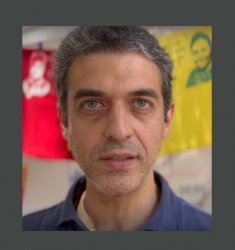 In their orientation towards peace, museums, especially peace museums, can be configured as ecomuseums if they convey the enjoyment of the heritage and identity contents of their territory and when their configuration goes through a co-creation process directly involving the active participation and dynamic engagement of the communities of inhabitants, of people, with their stories and relationships, their aspirations and memories, and, at the same time, of the social environment and the territorial space.
In their orientation towards peace, museums, especially peace museums, can be configured as ecomuseums if they convey the enjoyment of the heritage and identity contents of their territory and when their configuration goes through a co-creation process directly involving the active participation and dynamic engagement of the communities of inhabitants, of people, with their stories and relationships, their aspirations and memories, and, at the same time, of the social environment and the territorial space.
This function is enriched with surprising potential in the “space of the city” and is open, in line with the aims of Unesco, to new paths of relationship and coexistence, of peace education and peace building, in the sense, well known in literature, of «positive peace», peace not only as an affirmation of the repudiation of violence and the fight against war, but also as a manifestation of the fullness of human rights and social justice, of democracy and coexistence.
Starting from some specific museum institutions in the European scenario (the Bradford Peace Museum, in England, the Nuremberg Peace Museum, in Germany, and the Gernika Peace Museum, in the Basque Country) and in the Italian context (the International Peace Manifesto Documentation Centre, in Casalecchio di Reno, near Bologna) and on the basis of the action-research in the field, inspired by cultural heritage for peace and coexistence in the post-Yugoslav space, which dialogues with the open and inclusive features of museum institutions such as the Museum of Yugoslavia in Belgrade and the Museum of Mitrovica, MoM, in Kosovo, the text questions the link between heritage, relational constructs and positive peace and focuses on the ecomuseum vocation of museums for peace as social and cultural spaces of relationship and coexistence, participation and education, particularly in the sense of the «place-based education» and, ultimately, the affirmation of the «properly human dimension of human».
Gianmarco Pisa. Peace worker, involved in research-action initiatives and projects for conflict transformation within the Italian Institute for Peace Research - Civilian Peace Corps (IPRI-CCP), he has carried out various peace actions in the Balkans and on the European and international scene. He collaborates with magazines and documentation portals (including the international press agency Pressenza, the culture and debate blog Odissea, and the political and cultural magazines Futura Società, Gramsci Oggi and La Città Futura) and has published several works on the themes of positive peace and peacebuilding, conflict, the role of culture and memory in social transformation processes. Member of the working group dedicated to Peace Education within the Italian Peace and Disarmament Network, he is the author of the concise manual "Making Peace, Building Society. Basic guidelines for conflict transformation and peacebuilding" (Multimage, 2023). Among his other recent publications are "Ordeals. Memories and memorials for peace and coexistence" (Ad est dell'equatore 2017), "Kosovar Landscapes, 1998-2018. Cultural heritage as a resource for progress and opportunities for peace" (2018) and "Of earth and stone. Aesthetic forms in spaces of conflict, from Yugoslavia to the present" (2021). His latest publication is "The doors of art. Museums as places of culture between place-based education and peace building" (Art doors. Museums as places of culture between place-based education and peace building), 2024, recently published by Associazione Editoriale Multimage.
22) CSU "Salvatore Puledda" - Beyond vengeance (round table).
"How will the human being overcome its shadow? Perhaps by fleeing it? Perhaps by fighting it incoherently? If the engine of history is the rebellion against death, rebel now against frustration and vengeance." (Silo, 1981)
When Nietzsche wrote in Thus Spoke Zarathustra: "...that man be redeemed from vengeance - this is for me the bridge to the supreme hope and a rainbow after long storms..." he was outlining for humanity the foundations of a utopian landscape.
Nietzsche was perhaps the first to problematically raise the issue of resentment in history. A resentment that has manifested itself in wars and mass killings and that still continues to permeate every field of human experience.
Resentment is an underlying climate that finds its root, dehumanizing and violent, in the system of values, beliefs and aspirations in which we have been forced to live. Resentment always seeks the guilty and often finds it in those human groups that for some reason represent the different, the other. A senseless catharsis occurs in which violence expresses itself in all its disintegrating force. In this scenario, revenge as a response to injustice finds more and more space.
It is appropriate to investigate the roots of this behavior to understand the possible ways out. In this historical crisis, in which even the demand for freedom, peace and social justice is impregnated with resentment, a new sensitivity emerges, still timidly but full of hope, in the search for innovative answers to the current system. Is this perhaps a utopia in motion? What does it mean in practice to overcome vengeance and resentment? How does this hope translate into the different fields of social experience, from justice to education, from international law to the everyday life of social relations?
Today, as never before in history, a conscious step towards sincere reconciliation has become urgent. A courageous act of personal and social transformation is needed.
Marcello Bortolato. Born in Venice on June 24, 1962. Graduated in Law from the University of Padua.
Appointed magistrate by DM 8.03.90, obtained the VII^ professional evaluation and qualified for Senior Executive Functions by resolution of the CSM of April 5, 2017 at the time of the conferral of the executive assignment of President of the Surveillance Court of Florence.
Formerly Magistrate in Mantua and in Castiglione delle Stiviere (from 1991 to 2001), Judge of the Court of Mantua with criminal functions (from 2001 to 2008) and Surveillance Magistrate of Padua (from 2008 to 2017), he currently presides over the Surveillance Court of Florence.
He was a member of the Commission for the examination of the judiciary in the years 2006-2007 (Grillo Commission).
He has been part of two Study Commissions established at the Ministry of Justice for the reform of the penitentiary system, both chaired by Prof. Glauco Giostra, the first in 2013 (Minister Cancellieri) and the second in 2017 (Minister Orlando).
Within the framework of the initiatives of the States General of penal execution promoted by the Minister of Justice Orlando, he coordinated Table II on 'Detentive life, security and penitentiary circuits' during which he made trips to European countries aimed at the knowledge of the respective penitentiary systems. He was Secretary of CONAMS (National Coordination of Surveillance Magistrates) from 2016 to 2021.
He is the author of numerous publications on the execution of the sentence, penitentiary law and prison in journals such as Criminal Law and Procedure, Italian Journal of Law and Criminal Procedure, Italian Jurisprudence, Criminal Cassation, Criminal Archive, Antigone: quarterly review of the penal and penitentiary system and Question Justice.
He is among the authors of the following works: "Manual of Penitentiary Law" ed. Giappichelli edited by Franco Della Casa and Glauco Giostra, 2020; "Proposals for the implementation of the penitentiary delegation", edited by G. Giostra-P.Bronzo, ed. Sapienza Università, 2017; Code "Penitentiary System commented" edited by F.Della Casa-G.Giostra, WoltersKluver-Cedam, 2019 (commentary to articles 4 and 35-bis); 5th edition of the "Penal Code commented" edited by Emilio Dolcini and Gian Luigi Gatta (commentary to articles 176 and 177 cod. pen.) participation in the Commentary of the "Cartabia" reform, Giappichelli, 2024, edited by Gianluigi Gatta and Mitja Gialuz (of which he wrote chapters 3 and 5, Part III of vol. 4 "The organic discipline of restorative justice") and participation as author in the volume "Restorative Justice", Giappichelli, 2024, edited by Valentina Bonini, of which he wrote the chapter "Restorative justice and penal execution". Finally, he was a member of the Commission appointed in 2021 by Minister Marta Cartabia and chaired by Prof. Adolfo Cerretti for the elaboration of the draft legislative decree on the organic discipline of restorative justice.
He is co-author, together with the journalist of Corriere della sera Edoardo Vigna, of "Public Vendetta. The prison in Italy", Ed. Laterza, 2020, and "Beyond Revenge. Restorative justice in Italy", Ed. Laterza, 2025, both in the "Pocket Essays" series.
Loredana Cici. Born in Rome in 1950, she currently lives between Naples and Attigliano.
With a legal background, she has held numerous positions of responsibility in the public administration, including: Head of the Studies Office of the Ministry of Industry, Head of the Documentation Office of the Presidency of the Council of Ministers, Head of the Legislative Office of the President of the Campania Region, Administrative Director of the National Cancer Institute Foundation Pascale. She has collaborated in parallel with the chair of Administrative Law of the University La Sapienza in Rome, publishing numerous essays and monographs in legal journals.
She has adhered since her beginnings in Italy (1973) to the ideas of Universalist Humanism, actively contributing to the development of the Humanist Movement in Italy and abroad. Among the founders of the Italian Humanist Party, she has been a candidate in numerous elections of the Italian Parliament and the Municipality of Rome and has held the position of President of the Humanist International.
Since 2002, the year in which Silo (Mario Rodríguez Cobos, Spanish-Argentine, founder of universalist humanism) entrusted "The Message of Silo" to his disciples, she has dedicated herself to its diffusion, also forming a Message Community in the Spanish Quarters of Naples.
She was responsible for the construction of the Park of Study and Reflection of Attigliano, coordinating the team of volunteers who, starting to work in 2005, overcoming technical, legal and economic difficulties, managed to inaugurate the Park on May 4, 2008.
She continues to deal with the Park, actively participating in the Commission that takes care of its maintenance and development.
Annabella Coiro. With over 25 years of experience in communication and non-violence studies, she designs and facilitates training and research programs on interpersonal relationships and non-violent education in schools. She gives conferences and experiential workshops. Graduated in Education Sciences, she is involved in national and international projects for the promotion of peace and non-violence. She co-founded the Women's House, the Municipal Table for Non-Violence of the Municipality of Milan, the Active Non-Violence Center and the ED.UMA.NA. school network, where she is also responsible for training. She is co-author of several publications on education, including "Boundless School. A Proposal for an Educational Revolution", published by the G. Feltrinelli Foundation and "Educating with Dialogue in Primary School" published by the Erickson Study Center. Activist for a World Without War and Violence.
Gherardo Colombo. Born in Briosco (MB, Italy) in 1946, Gherardo Colombo entered the judiciary in 1974.
He served as a judge, then as an investigating judge, a public prosecutor, and finally as a judge at the Court of Cassation. From 1989 to 1992, he was a consultant to the Parliamentary Commission of Inquiry into Terrorism in Italy and, subsequently, a consultant to the Parliamentary Commission of Inquiry into the Mafia. From his entry into the judiciary until 2005, he led or collaborated in famous investigations such as the discovery of the P2 Lodge, the murder of lawyer Giorgio Ambrosoli, the so-called black funds of IRI, Clean Hands, the IMI-SIR trials, the Mondadori Lawsuit, and the SME case.
In 2007, he left the judiciary. Since then, he has dedicated himself to public reflection on justice and legal education. For this activity, he received the National Prize "Culture of Peace 2008".
He is the president of Garzanti Libri. From 2015 to 2016, he was the coordinator of roundtable 12 of the General States of Penal Execution. Since July 2016, he has been the coordinator of the Committee on Legality of the city of Milan; he is a member of the advisory board of Transparency International and the board of directors of the Roberto Franceschi Foundation.
From 2018 to 2023, he was president of the European Union of Cooperatives (Ue.Coop). He was a member of the ethics committee of the Veronesi Foundation. From July 2017 to early 2018, he was part of the commission for the reform of the penitentiary system and, since October 2017, he has been appointed president of the Cassa delle Ammende.
He has published several books in which he uses his experience as a magistrate to provide a careful and scrupulous dissemination of the concepts of democracy, justice, and citizenship. Among the best known are "Sulle regole" (Feltrinelli, 2008), "Il vizio della memoria" (Feltrinelli, 1998), "Sei stato tu? La costituzione attraverso le domande dei bambini" (Salani, 2009), "Il legno storto della giustizia" (Garzanti 2017, with Gustavo Zagrebelsky) and "Il perdono responsabile. Perché la prigione non serve a nulla" (Ponte alle Grazie, 2011). "Democrazia" (2011) inaugurates the Bollati Boringhieri I sampietrini collection. He is co-author with Licia di Blasi and Anna Sarfatti of "Sono stato io!" (Salani, 2016). In 2021, he wrote with Liliana Segre "La sola colpa di essere nati" (Garzanti). In 2023, "Who did it? How to become responsible citizens" was published by Salani. Also in 2023, Garzanti published "Anticostituzione (How we have rewritten - for the worse - the principles of our society)".
Roberta Consilvio. 50. Trained as a clinical psychologist and works in the field of personal development training. She works as a support teacher for people with disabilities in Italian state schools. A trained pianist, she has been teaching piano and music for almost 35 years.
For over 25 years, she has been actively involved in the humanist movement, through various projects. For ten years, she was a member of the organising committee of the Attigliano Park for Study and Reflection, a worldwide project to build places dedicated to exploring the possibilities of human mental development. In this park, she began a meditation journey following the steps of the Mental Discipline developed by Silo, whom she considers a master and guide.
Since 2005, she has been an active member of the Salvatore Puledda Centre for Humanist Studies in Rome, of which she is currently president, where she has contributed to various studies: on religiosity in current social phenomena, on the psychology of the new humanism and on the roots of vengeance in Western society.
Every day she strives to orient her life in the direction of coherence and compassion.
Vito Correddu. Served as president of the Salvatore Puledda Center for Humanist Studies. From 1998 to 2010, he worked on development project creation in Togo and Ghana. From 2009 to 2012, he helped create the Italian anti-racist coordination Stop Razzismo. With the Salvatore Puledda Center for Humanist Studies, he organized the last six editions of the International Symposium of the World Center for Humanist Studies. He promoted a research group on religiosity in social phenomena and another on the roots of revenge in modern society. In his professional life, he is a socio-pedagogical educator in a community for minors. He likes to define himself as a humanist, anarchist, non-violent, choosy, lazy, and prone to happiness.
Luciano Eusebi. Luciano Eusebi is Full Professor of Criminal Law at the Catholic University of the Sacred Heart of Milan. He was among the first supporters, in our country, of an evolution of justice in a restorative sense, which goes beyond the traditional scheme of retribution: seeing in this a requirement that goes far beyond the penal context. He has participated in ministerial commissions for reform in criminal matters and has been a member of the National Bioethics Committee.
Stefano Tomelleri. Is Full Professor of General Sociology at the Department of Business Sciences of the University of Bergamo, where he is Vice Rector for Participatory Planning of the University. Author of over one hundred publications, he has published in prestigious national and international journals. Among his publications are: Ressentiment. Reflection on Mimetic Desire and Society, Michigan State University Press, 2015; with Martino Doni, Playing Sociology: Theory and Games for Coping with Mimetic Crisis and Social Conflict, Michigan State University Press, 2024. He is currently president of the Italian Sociological Association for the three-year period 2023-2025.
23) Andrea Natalia Novotny - "A utopia in teacher training: Humanizing Education."
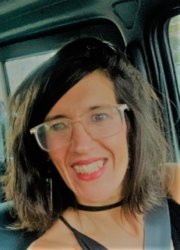 A new approach to teaching focused on the human being.
A new approach to teaching focused on the human being.
Faced with the need to renew the educational approach, a proposal for a postgraduate course called "Academic Update in Humanizing Education: Intentional Learning, Emotional Atmospheres and Collective Construction of Knowledge" has emerged. This training aims to innovate the pedagogical perspective and the professional teaching practice, based on a paradigm that places the human being and their integral development at the center.
The objective is to stimulate teachers to reflect deeply on the meaning of education, asking questions such as:
- What is the meaning of education today?
- How can we give direction and true meaning to teaching and learning environments?
- How can we uncover our purpose in the world and help our students to uncover theirs as well?
How did this utopia begin in the province of Mendoza?
Since 2020, at the public teacher training institute 9-002 "Tomás Godoy Cruz" in Mendoza, an update and specialization course in Humanizing Education has been started. Thanks to the success of this project, in 2024 a new postgraduate course was established at the Institute 9-028 "Profesora Estela Quiroga".
Theoretical foundations: this training proposal is inspired by the philosophy and psychology of Silo's Universal Humanism and is framed within the Pedagogy of Intentionality. It considers education as a fundamental human right, a dynamic and complex process that goes beyond numbers and statistics.
Impact:
- Teacher training: It has trained over 60 teachers, providing them with an official qualification in Humanizing Education.
- Expansion: It has spread to other teacher training institutes, demonstrating its potential to transform education at a regional level.
- Social impact: It contributes to building a more just and equitable society, promoting the integral development of individuals.
Innovation:
- Holistic approach: It integrates various pedagogical and philosophical currents.
- Link with the community: It involves the educational community in the construction of educational projects.
- Use of non-formal spaces: It uses spaces such as the Carcarañá Study and Reflection Park to promote reflection and experiential learning.
In conclusion, this proposal represents a utopian but achievable vision, demonstrating that it is possible to transform education from a humanist perspective centered on the human being.
Andrea Natalia Novotny. Is an Argentine educator with a solid track record in teacher training and a deep commitment to pedagogical innovation. A graduate and professor of Educational Sciences, both degrees awarded by the National University of Buenos Aires (UBA), Novotny has dedicated her career to developing and promoting educational models that prioritize comprehensive student development and the collective construction of knowledge.
Her professional experience ranges from university teaching to coordinating teacher training projects at the national level. She has been a key figure in the creation and development of teacher training programs focused on Humanizing Education, a pedagogical approach that seeks to connect education with human values and social transformation.
Novotny has demonstrated a strong commitment to educational research, participating in various projects and publishing articles in academic journals. Her research has focused on topics such as teaching practice, intentional learning, and the construction of learning communities. Additionally, she has been an active promoter of the Pedagogy of Intentionality, an approach that aims to develop students' ability to learn autonomously and meaningfully.
Throughout her career, Novotny has combined her academic work with intense activity as a teacher trainer and speaker at various national and international events. Her work has been recognized for its academic rigor and social commitment, contributing significantly to the renewal of education in Argentina and other Latin American countries.
24) Jorge Rocha - A Utopia: School Foresters.
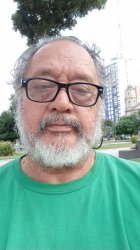 The School Foresters project proposes that children in schools create seedbeds for seedlings to provide trees for their city. It is a fun and educational activity that allows them to learn about caring for life and observing its growth. The experience of carrying out this activity has shown us how a sensitivity awakens and develops in children that can easily extend to the rest of their social coexistence. Furthermore, it is a complement that enriches non-formal education, supporting teachers with practical tools for developing the school curriculum.
The School Foresters project proposes that children in schools create seedbeds for seedlings to provide trees for their city. It is a fun and educational activity that allows them to learn about caring for life and observing its growth. The experience of carrying out this activity has shown us how a sensitivity awakens and develops in children that can easily extend to the rest of their social coexistence. Furthermore, it is a complement that enriches non-formal education, supporting teachers with practical tools for developing the school curriculum.
Jorge Rocha. Co-founder of the School Foresters project in 2014. Since then, he has worked as a volunteer in non-formal education in schools in the outskirts of Buenos Aires. He is currently the coordinator of the Environmental Promoters Course at the Faculty of Agricultural Sciences of UNLZ. Co-founder of the civil society organization "La Comunidad para el Desarrollo Humano" in 1982, of which he is currently a member of the Board of Directors. Promoter in Argentina of the "3rd World March for Peace and Nonviolence", organizing events to spread awareness and mobilize people in different provinces of the country.
25) Carlos Washington Guajardo - The Humanist Center for Studies of the Americas: Building an Intercontinental Utopia.
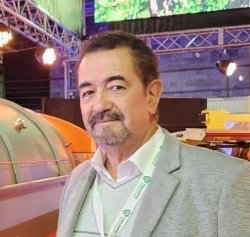 The proposal of the 10th International Symposium of the World Center for Humanistic Studies "UTOPIES IN MOTION" implicitly invites us to think of new courses of action that would allow the transition from a possible utopia to a realm of implementation and change. The opportunity to exchange in this context the experience developed by the Center for Humanistic Studies of the Americas (CEHA) seeks to account for a utopia in action. According to the dictionary of New Humanism, utopia reflects a set of aspirations that aim for a better world, mobilizing creative energy towards these high ideals, but it also warns us about "anti-utopias", those artificial attempts to realize the utopian ideal here and now, without adaptation to the context and circumstances, situations that have only increased human pain and suffering.
The proposal of the 10th International Symposium of the World Center for Humanistic Studies "UTOPIES IN MOTION" implicitly invites us to think of new courses of action that would allow the transition from a possible utopia to a realm of implementation and change. The opportunity to exchange in this context the experience developed by the Center for Humanistic Studies of the Americas (CEHA) seeks to account for a utopia in action. According to the dictionary of New Humanism, utopia reflects a set of aspirations that aim for a better world, mobilizing creative energy towards these high ideals, but it also warns us about "anti-utopias", those artificial attempts to realize the utopian ideal here and now, without adaptation to the context and circumstances, situations that have only increased human pain and suffering.
The creation of the Center for Humanistic Studies of the Americas (CEHA) in 2021 represented the construction of a new meeting space, where a group of people from different parts of the American continent, drawing on their own cultures, were able to discover the power of images guided by a common sensibility that set a meaning and a purpose. Thus, in the landscape of cultural anthropological research, courses of action and projects were formed, guided by a deep humanistic vision that strengthened the initial proposal with the incorporation of new friends from different latitudes and the inclusion in the field of research of new extra-continental cultures.
The development of new knowledge about ancestral cultures, their valorization through the discovery of an intentionality that transcends historical processes, and the finding in those societies and peoples of attitudes and humanistic moments that are at the basis of their mythologies, their spirituality, their rituals, their ceremonies and their daily practices, reinforces the idea of a convergence that transcends time and space, and will lead to the construction of that long-desired planetary civilization, overcoming the current critical and violent fragmentation.
Some essential questions about our being, our origin and our future deeply question us, and they were also the unknowns that crossed our ancestors. Recovering these experiences through the various research carried out, investigating the cultural richness that has built human history, and then proposing areas of dissemination and exchange that enrich the necessary images and mobilize towards these utopias, constitutes the core of the contribution of the Center for Humanistic Studies of the Americas in this process that involves us.
Carlos Washington Guajardo. Bachelor of Business Administration. Professor of Economics. Master in Institutional and Corporate Communication. Educator with over 35 years of experience. Practices mental discipline at the Punta de Vacas Study and Reflection Park. Current coordinator of CEHA. Researcher of American, African, and Asian cultures. Co-author of the "Manual for a Transformative Education" - humanist educators of Mendoza, Argentina.
26) Carlos Crespo Burgos - "Contributions and Challenges in the Gestation of Humanizing Education, from the Andean region" - round table.
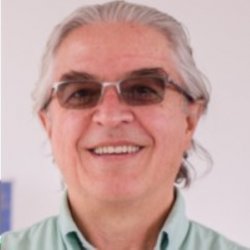 In the last two decades, educational expressions animated by the spirit and approach of Universal New Humanism have multiplied worldwide, with multiple initiatives and pedagogical modalities, attesting to its growing presence globally in various areas of formal and non-formal education. In the transition to the new century, Chilean educators Mario Aguilar and Rebeca Bize disseminated the educational postulates of New Humanism through the proposal of the Pedagogy of Diversity (1999) and Intentionality (2010). Simultaneously, numerous national and international networks of humanist educators multiplied, multiple organizations such as Observatories or Permanent Councils for Nonviolence were formed, as well as movements or pedagogical currents with diverse denominations. These expressions have penetrated more and more deeply into educational institutions, social organizations, higher education institutions, and public spaces, according to increasingly structured and permanent modalities.
In the last two decades, educational expressions animated by the spirit and approach of Universal New Humanism have multiplied worldwide, with multiple initiatives and pedagogical modalities, attesting to its growing presence globally in various areas of formal and non-formal education. In the transition to the new century, Chilean educators Mario Aguilar and Rebeca Bize disseminated the educational postulates of New Humanism through the proposal of the Pedagogy of Diversity (1999) and Intentionality (2010). Simultaneously, numerous national and international networks of humanist educators multiplied, multiple organizations such as Observatories or Permanent Councils for Nonviolence were formed, as well as movements or pedagogical currents with diverse denominations. These expressions have penetrated more and more deeply into educational institutions, social organizations, higher education institutions, and public spaces, according to increasingly structured and permanent modalities.
The objective of this round table is to systematically present the development of these multiple expressions and to reflect on their challenges, in order to contribute with images that, connecting memory and project, inspire the multiple social actors in the world, who are building another education in a liberating educational direction. The round table will be composed of guests from different continents, who will share their views on these medium-term processes.
Round table moderator:
Carlos Crespo Burgos. Ecuadorian. PhD in Education from the Federal University of Minas Gerais in Brazil (2017) and Master in Social Sciences applied to Education, UNICAMP-Brazil (1990). Postgraduate university professor. Researcher at the World Centre for Humanist Studies and animator of the International Network of Humanist Educators. Currently writes for the international press agency Pressenza, Peace and Nonviolence.
Participants:
Yanet Honor Casaperalta. Peruvian. Primary school teacher with a master's degree in educational management and science didactics. Specialist in rural education and transformative pedagogies. National Award ‘Palmas Magisteriales en el Grado de Educador’ and winner of the First National Competition of Good Teaching Practices of the Peruvian Ministry of Education. Promoter of the Network of Humanist Educators Ecuador Peru, since 2016.
Fredy Wilfrido Figueroa Samaniego. Ecuadorian. Bachelor's and Master's degree in Educational Sciences; Doctorate in Education from the Benito Juárez University of Mexico. Currently working as an educational consultant at the Ministry of Education of Ecuador (District 07DO2 Machala). Animator of the Red de Educadores Humanistas Ecuador Perú, since 2021.
Ismenia Iñiguez Romero. Ecuadorian. Graduate in Applied Anthropology with a Diploma in Gender, Violence and Human Rights Studies from the Latin American Faculty of Social Sciences - Ecuador. Specialised at the Edgar Morin Multidiversity University. With extensive experience in emergency pedagogy and human mobility.
28) Sandra Basso - Neurodiversity.
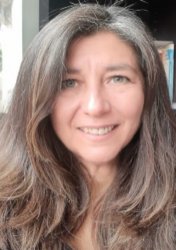 Historically, the system has sought to standardize human life in all its aspects. Today, all our behaviors are standardized. Even the intimacy of our inner world does not escape this attempt to apply a single model considered valid, and everything that differs from it is labeled as "altered," "strange," or "deficient." Therefore, it is appropriate to reflect on human nature and ask ourselves some questions: what is it to be human? Who defines what it is to be human? Is there only one type of human being? If not, then: what is neurodiversity?
Historically, the system has sought to standardize human life in all its aspects. Today, all our behaviors are standardized. Even the intimacy of our inner world does not escape this attempt to apply a single model considered valid, and everything that differs from it is labeled as "altered," "strange," or "deficient." Therefore, it is appropriate to reflect on human nature and ask ourselves some questions: what is it to be human? Who defines what it is to be human? Is there only one type of human being? If not, then: what is neurodiversity?
The objective of this presentation is to explore the concept of neurodiversity, its implications for people's lives, and how its recognition can transform our approaches to life in society.
Neurodiversity is a concept that has gained increasing importance because it leads us to rethink the definition of being human and to consider neurological variations not as deficiencies but as expressions of diversity. This approach challenges the traditional view that considers neurodivergent people as "abnormal" and promotes a perspective that values diversity.
Sandra Basso. Lawyer specialized in the Rights of People with Functional Diversity, committed to the recognition of neurodivergent identity, has dedicated herself to developing contributions to the development of the Neurodiversity paradigm. She has given talks, lectures, and conversations on the rights of people with disabilities.
29) Sofía Erbicella - Reconnecting with the Essential: A Path to the Universal Human Nation.
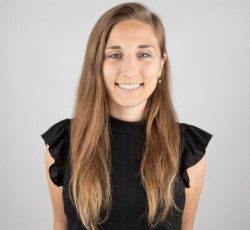 Through this presentation, I propose to explore a vision that, from a spiritual and humanistic perspective, responds to the multidimensional crisis facing humanity: the invitation to reconnect deeply with our inner selves as a path to a universal human nation. Based on my work, Mastery of Consciousness, this exposition addresses the notion that the global crisis is, in essence, the sum of unresolved personal crises that each individual projects onto the collective. In a world undergoing a crisis of humanity, it is urgent to reflect on how each of us contributes to this crisis from our inner being.
Through this presentation, I propose to explore a vision that, from a spiritual and humanistic perspective, responds to the multidimensional crisis facing humanity: the invitation to reconnect deeply with our inner selves as a path to a universal human nation. Based on my work, Mastery of Consciousness, this exposition addresses the notion that the global crisis is, in essence, the sum of unresolved personal crises that each individual projects onto the collective. In a world undergoing a crisis of humanity, it is urgent to reflect on how each of us contributes to this crisis from our inner being.
My proposal starts from a fundamental understanding: solving the external crisis is only possible if we first address our internal chaos. The presentation, therefore, revolves around the idea that transforming the world begins with self-knowledge and reconnecting with the human essence, a process that not only liberates the individual but, as a whole, can give rise to a true "universal human nation."
Sofía Erbicella. Writer and trainer with a deep dedication to spiritual development, focused on promoting individual consciousness and collective commitment. My career has focused on fostering critical thinking, introspection, and connection with the human essence through writing and youth education. As an author, I explore existential and spiritual themes, using my own inner journey as a tool for learning and expanding consciousness.
30) José María Tejederas Dorado - Joining Forces.
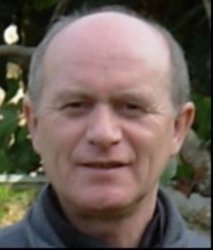 _Across the globe, thousands of individuals, groups, and organizations from social, environmental, religious, political, and other spheres share the same desire to humanize the Earth because a different world is both possible and necessary.
_Across the globe, thousands of individuals, groups, and organizations from social, environmental, religious, political, and other spheres share the same desire to humanize the Earth because a different world is both possible and necessary.
From the speakers' perspective, the task of humanizing the Earth is not limited to the psychological realm alone - hence the call for a psychic, cultural, and social revolution - but rather, its fruits should be directed toward transforming the world and its current outdated and unjust governance structures, to achieve a world without borders, a confederation of humanist nations, without war, violence, hunger, or discrimination, with social justice, real democracy, environmental balance, solidarity, and above all, an open future. (Sullings)
In the crisis we face today, all of humanity's cultures find themselves at the same historical moment, approaching the first planetary civilization. (Dario Ergas).
But the task is immense and it will be impossible for any individual group or movement to achieve significant progress alone. Therefore, it is essential to join forces as much as possible, thus avoiding the sterility of working in isolation. The proposal is to join forces, as many as possible. How to do this, how to join as many forces as possible, and how to organize ourselves to converge is the goal to be achieved in order to find the best ways that we can all identify together. It is therefore a matter of studying, sharing, and adding convergent points of view and ideas without any conditions, except for the unwillingness to impose one's own ideas on others. The old consciousness no longer serves. The choice is between resignation and change. "Tomorrow is already too late" because we are losing "a time that will never return"._
José María Tejederas Dorado. Born in Cordoba (Spain) in 1950. He has lived in the forest of Castañar de Hervás (Cáceres) since 2003. Professionally he worked for several decades in the General Directorate of the National Geographic Institute of the Ministry of Public Works in Madrid. He is now retired.
Since his youth he has been interested in the psychological aspects of the evolution and development of human beings, which led him in the 1970s to study Comparative History of Religions at the Sorbonne and Psychology of the Possible Evolution of Man in Santiago de Chile, Mendoza and Buenos Aires, and Trades and Disciplines in Salsipuedes, Córdoba, Argentina.
Throughout his career, he has participated in various groups of self-knowledge, personal growth and in the study of theories on life, evolution and human development, taking an interest in visions and proposals from both the East (Fourth Way, Vedanta and Buddhism) and the West (Humanist and Transpersonal Psychology). His main references include thinkers such as Gurdjieff, Mario Rodríguez-Silo, Krishnamurti, Ken Wilber, Ramana Maharsi, Nisargadatta, and Eckhart Tolle.
In 2008 he co-founded the group Sinapsis in Madrid. Subsequently he formed other study groups of evolutionary psychology and ET proposals (Eckhart Tolle) in different parts of Spain such as Hervás, Plasencia, Jaraíz de la Vera, Cáceres, Vigo, Béjar, Piornal, and also in Lima, Peru.
31) Igor Muñoz Salazar - American Myths and Traits of Current Culture.
 This work was born from the reading and exchange of a group of friends dedicated to the Study and Reflection Park, Desert Park - Tamarugal in northern Chile. We read the book "Universal Roots Myths" by the Argentine writer and thinker known as Silo. Within the text, we selected chapter X, "American Myths," for our study.
Other universal myths and other American myths from diverse cultures are beyond the scope of this analysis, which only refers to the three myths mentioned in the work.
Our objective was to identify, recognize, and understand certain cultural traits that appear in these myths in order to detect their presence and action in current generations.
On the other hand, the current crisis of civilization raises a cry from the people for a better world, and dreams and utopias emerge, where the contribution of ancient myths can contribute to the foundation of the first planetary civilization in human history.
This work was born from the reading and exchange of a group of friends dedicated to the Study and Reflection Park, Desert Park - Tamarugal in northern Chile. We read the book "Universal Roots Myths" by the Argentine writer and thinker known as Silo. Within the text, we selected chapter X, "American Myths," for our study.
Other universal myths and other American myths from diverse cultures are beyond the scope of this analysis, which only refers to the three myths mentioned in the work.
Our objective was to identify, recognize, and understand certain cultural traits that appear in these myths in order to detect their presence and action in current generations.
On the other hand, the current crisis of civilization raises a cry from the people for a better world, and dreams and utopias emerge, where the contribution of ancient myths can contribute to the foundation of the first planetary civilization in human history.
Igor Muñoz Salazar. Born in Chile. Science teacher. He has been involved with the Humanist Movement since 1987 in Argentina and later in Chile. Since 2013, he has been an applied teacher at the Parque de Estudio y Reflexión, Parque del Desierto – Tamarugal, Pozo Almonte, Chile.
35) Herbert E. Contreras Vásquez - Kraken: a holistic approach to the Human Project.
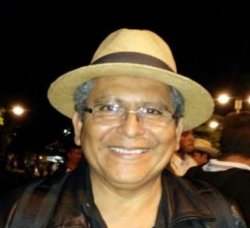 The oceans and marine sockets are untapped sources of resources, capable of mitigating current energy and climate problems, such as global warming. At the planetary level, there are essential resources: water, energy, biological and geophysical, as well as a vast potential of human talent. as well as a vast potential of human talent (scientific, technological, managerial and productive) to exploit them in a sustainable way. The planetary crisis of sustainability is manifested in several key problems: water shortages, energy problems, energy energy problems, food shortages, environmental damage and socio-economic and financial collapse.
The oceans and marine sockets are untapped sources of resources, capable of mitigating current energy and climate problems, such as global warming. At the planetary level, there are essential resources: water, energy, biological and geophysical, as well as a vast potential of human talent. as well as a vast potential of human talent (scientific, technological, managerial and productive) to exploit them in a sustainable way. The planetary crisis of sustainability is manifested in several key problems: water shortages, energy problems, energy energy problems, food shortages, environmental damage and socio-economic and financial collapse.
The Kraken Project aims to harness the world's seas and oceans to develop innovative technological solutions, using their energy potential and resources to address the global crisis. The Kraken Project aims to create a global and holistic model of energy, water and food development, to mitigate the global crisis.
The overall objective is to produce green hydrogen through the hydrolysis of water, using ocean platforms that employ renewable energies such as tidal, wave, oceanic and wind energy, as well as promoting mariculture and fish farming.
Herbert E. Contreras Vásquez. Studies: Vocational Technical Institute of Heredia, Heredia. Bachelor of professional industrial expert (medium technician) in mechanical construction drawing, 1973. - Isaac Newton University, San Jose. Bachelor of civil engineering, 2005. - Castro Carazo Metropolitan University Puntarenas Headquarters. Bachelor in science of education with emphasis in teaching of civil engineering, 2007. - Isaac Newton University, San Jose. Professional master in environmental engineering, september 2012.
Work experience: Mechanical Equipment Co, Inc. New Orleans, La., USA. Mechanical construction draftsman. 1975 and 1976. - From 1976 to 2015, various jobs in the private, institutional and educational sector.
Teaching experience: Ministry of Public Education, University Center of the West, UCR, University College of Puntarenas CUP, National Technical University Headquarters of the Pacific UTN.
Currently retired.
36) Teresa Ruso Bernadó - International Humanist Party, exchange of experiences on the demonstration effect at local level (round table).
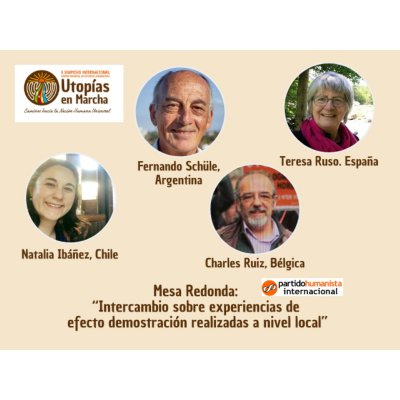 Nowadays, people have lost confidence in political representatives at a global level and delegate more and more responsibility to those in power, supporting formal, representative democracy. The IHP currently has a 12-year project (2023-2035) one of whose general objectives is “to being an international and local political reference for the proposal to build the Universal Human Nation” with the intention of being a guide for joint action that can be applied by all PHs worldwide, adapting it to the situation in each place.
Nowadays, people have lost confidence in political representatives at a global level and delegate more and more responsibility to those in power, supporting formal, representative democracy. The IHP currently has a 12-year project (2023-2035) one of whose general objectives is “to being an international and local political reference for the proposal to build the Universal Human Nation” with the intention of being a guide for joint action that can be applied by all PHs worldwide, adapting it to the situation in each place.
Humanist parties work with the human being as their central concern. Their methodology of action is active non-violence and the strengthening of real democracy. Their very organisation is innovative and shows another way of doing things that is characteristic of a future that is yet to come. That's why, in their efforts to humanise politics and on the road to building the Universal Human Nation, they are carrying out different activities, including the creation of action fronts, publicity campaigns, participation in neighbourhoods with their neighbours, standing for election in countries where they can, and to do so they have to legalise the party in the country where they are.
The exchange of experiences on concrete actions and ways of working that have been successful is certainly a demonstration effect that, despite great difficulties, ‘the power of the image’ is capable of arousing and articulating the networks and resources needed to achieve what is required. This exchange will include a sample of the diversity of the work carried out in three very different places.
Teresa Ruso Bernadó. Lives in Barcelona, Catalonia. Spain. Retired nurse. Humanist activist in the Humanist Party since its foundation. She took part in the International Coordination Team of the Internatiional Humanist Party 2022-2024, taking charge of the Secretary of Liaisons and later of the Secretary of Communications. He is currently part of the IHP IIC 2024-2026, carrying out the function of the General Secretary and being part of the IH Promotion Team.
Natalia Ibáñez. Humanist, member of the Humanist Party of Chile. She joined the Humanist Movement in 2007, in Punta de Vacas, Argentina, during the ‘Humanist Days of Spiritual Reconciliation’. She currently lives in the emblematic Barrio Yungay in Santiago Centro, Chile. Articulator of non-violent political and artistic spaces for gender-based dissidence. In the year 2019 she created the Humane Diversity Network for the IV Latin American Humanist Forum ‘Construyendo Convergencias’ and approached organisations such as OTD, Neutres and various artists working in LGTBQ+ activism, among others. Then she joined the Dissident Emergency Assembly. Initiator of the International Feminist Humanist Coordinating Committee, promoting four international meetings. Currently member of the MandrágorasTV Collective and the Espacio Ailanto Community Cultural Centre.
Fernando Adrián Schüle. 65 years old. Lives in Villa del Rosario. Province of Córdoba, Argentina. Siloist since June 1981. Participate in the national campaign ‘Sign for optional military service’ (1983). Member of the promoter board that registered the Humanist Party in the Electoral Court of Cordoba (1984). He was a member of the National Council, the Provincial Council and the Coordination Team of the HP. Candidate for the Humanist Party several times: candidate for National Deputy (2017); for Governor and National Deputy (2019); candidate for Governor for the Province of CBA (2023). He is currently Secretary General of the Humanist Party in the district of Cordoba, Argentina. Believer in human intentionality which is capable of modifying that which has brought pain and suffering to human beings.
Charles Ruiz. Lives in Brussels, Belgium. Non-violent activist, humanist. Nuclear physicist and systems and database engineer, currently retired. Currently teaches energy yoga and meditation. Active member of the Humanist Party.
37) Teresa Ruso Bernadó - The Humanist International (round table).
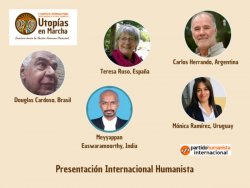 The Humanist International is promoted by the International Humanist Party. The HI, as a broad, non-organic space, has as its only clearly expressed interest the exchange. The specified areas are: forums, meetings, and exchanges of all kinds.
The Humanist International is promoted by the International Humanist Party. The HI, as a broad, non-organic space, has as its only clearly expressed interest the exchange. The specified areas are: forums, meetings, and exchanges of all kinds.
"In addition to the national humanist parties that organically integrate the federation, particular importance will be given to the area of the Humanist International, as a (non-organic) space of convergence for other parties, organizations, and individuals who adhere to humanist principles. This space of convergence, promoted by the International Humanist Party but open to broad participation, will be able to organize international forums, meetings, and all kinds of exchanges."
In these times of fragmentation and disintegration, this tool based on the intangibles of horizontal exchange, can contribute positively to the cohesion and strengthening of people, groups, and parties in achieving a common goal: the union of all humanists in the world, for the construction of the Universal Human Nation.
Teresa Ruso Bernadó. Lives in Barcelona, Catalonia. Spain. Retired nurse. Humanist activist in the Humanist Party since its foundation. She took part in the International Coordination Team of the Internatiional Humanist Party 2022-2024, taking charge of the Secretary of Liaisons and later of the Secretary of Communications. He is currently part of the IHP IIC 2024-2026, carrying out the function of the General Secretary and being part of the IH Promotion Team.
Monica Ramirez. Uruguayan, holds a degree in Psychology and is a Philosophy Lecturer. A humanist activist since 1987, she was first part of the National Coordination Team of Uruguay in 2014-2018, and then in the International Coordination Team of the IHP in 2018-2020 as Press and Communications Secretary. She is currently Secretary of International Relations of the International Coordinating Team of the International Humanist Party and a member of the Promoting Team of the Humanist International.
Carlos Herrando. Founder of the Green Ecologist Party in Salta and Tucumán, Argentina. General Secretary of the HP of Salta in 2003/05 and 2005/07. Member of the Coordination Team of the HP in Argentina 2018/20 and 2020/22 (Secretary of Culture and Education). Member of the International Coordination Team of the IHP 2022/24 (Organization Secretary) and 2024/26 (Communications Secretary). Agronomist, associate professor, and former Dean of the Faculty of Natural Sciences at the National University of Salta, Argentina (2016-2019).
Douglas Cardoso. Brazilian, 66 years old, is a retired systems analyst. Residing in Brazil, he has been a humanist activist for 42 years. Secretary of Positioning of the International Coordinating Team of the International Humanist Party and a member of the Promoting Team of the Humanist International.
Meyyappan Easwaramoorthy. Lawyer at the High Courts. Coordinator of the 3rd World March for Peace and Non-Violence (2024). Author of the book "Imaginary Lines" (2023). Humanist Movement activist since 2007. Works for a global generation.
40) Humanist Network for Social Ecology and Climate Change - The Utopia of Caring for Our Common Home: A Response to a Threatened Life.
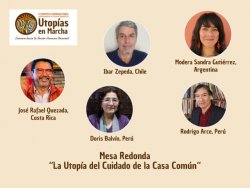 At the origin of the universe, there is an evolutionary process that moves from the simplest to the most complex, which we can see in the different forms of life, as well as in us humans who, from a biological point of view, have evolved processes of active transformation and increasing adaptation; this is understood from different expressions such as collaboration with other life forms and, as such, from a biological point of view we cannot separate humanity from the other species that inhabit our common home.
At the origin of the universe, there is an evolutionary process that moves from the simplest to the most complex, which we can see in the different forms of life, as well as in us humans who, from a biological point of view, have evolved processes of active transformation and increasing adaptation; this is understood from different expressions such as collaboration with other life forms and, as such, from a biological point of view we cannot separate humanity from the other species that inhabit our common home.
We are cohabitants who share habitats and habits. In fact, science today shows that there is a "cosmic consciousness" that is expressed in all forms of life at different degrees of development and that all living beings, that is, all species, are fundamentally composed of the same chemical elements, although there are differences of course in terms of composition and proportion.
Humans, unlike other species, make decisions, based on perception and experience, they create images that transform the world, at a speed infinitely greater than what happens with other species. Based on our needs and desires, we express our intentionality in the world and this leads us to action; in this sense, we are historical-social beings who transform realities, and every human being who is born does so in a landscape transformed by humans where limitless learning is always open.
In this process, we have built increasingly complex societies that are putting our common home at risk, as an unsustainable mode of production and consumption has been imposed, which degrades nature, life, and the human being, reducing it to the condition of a machine. Today, it is money and the powers of financial capital, the military-industrial complex, and technology that govern us.
Dismantling this scenario is part of the utopia of a new sensibility, because in the midst of this chaos, the utopia of managing the common home is being built: the home of human beings and the other forms of life that inhabit it. A series of ongoing initiatives are moving in this direction of placing the human being as a central value in harmony with their natural environment: "bio-geo-humanism".
In other words, moving towards reconciliation between humans and other forms of life requires taking care of the human home by placing life at the center, orienting science and technology towards the service of life and not the interests of a few who today profit from the hopes and best aspirations of human beings.
Humanist Network for Social Ecology and Climate Change. Emerged from the merger of two networks formed during the 4th Latin American Humanist Forum in Santiago, Chile, in May 2019: the Network of Activities Beyond Climate Change and the Economics Network.
The Network also participated in the 5th Latin American Humanist Forum, where we proposed, drawing on the experience and action of both networks, a synthesis of the Network's purpose, to which we invited others to join.
The Network manages a WhatsApp group and a Facebook profile. Similarly, we have organized conversations aimed at developing the perspective of universal humanism in the face of the ecological and climate crisis. Recently, we have participated in the initiative to establish the World Humanist Forum.
Promoting Team: José Rafael Quesada, Doris Balvín, Ibar Zepeda, Sandra Gutiérrez, Rodrigo Arce.
42) Alan Roger Bravo Medrano - Humanistic utopias in economics: building a future of equity and shared well-being.
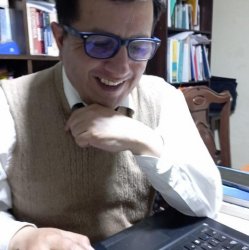 Silo's universal humanism proposes a vision where the human being, not capital, is at the center of the economy and society (Silo, 1993). This perspective contrasts and dialogues with various economic schools, as the humanistic approach challenges the concentration of power and advocates for an economic system based on cooperation and social justice (Silo, 1993). From Silo's humanism, it is proposed that a truly human system must be based on a participatory economy and the decentralization of power (Silo, 1993).
This approach finds resonance in other currents that prioritize equity and the redistribution of resources, although it differs in its non-violent and transformative approach to social structures. The proposal of an ideal humanistic economic model implies a combination of participatory economy and fair state regulations. In this model, the principles of equity and integral development come together to avoid the concentration of economic and political power (Silo, 1993). This model, inspired by circular and orange economies, prioritizes sustainability and human development, promoting an economy that respects both the environment and creativity (Pearce & Turner, 1990; UNESCO, 2013).
An economic system inspired by Silo's universal humanism would focus on social justice and equity, it is a Utopia in progress, transforming economic structures to serve human well-being and not the accumulation of wealth and power (Silo, 1993). This ideal model represents an ethical and sustainable vision that opposes current systems of exploitation and inequality.
Silo's universal humanism proposes a vision where the human being, not capital, is at the center of the economy and society (Silo, 1993). This perspective contrasts and dialogues with various economic schools, as the humanistic approach challenges the concentration of power and advocates for an economic system based on cooperation and social justice (Silo, 1993). From Silo's humanism, it is proposed that a truly human system must be based on a participatory economy and the decentralization of power (Silo, 1993).
This approach finds resonance in other currents that prioritize equity and the redistribution of resources, although it differs in its non-violent and transformative approach to social structures. The proposal of an ideal humanistic economic model implies a combination of participatory economy and fair state regulations. In this model, the principles of equity and integral development come together to avoid the concentration of economic and political power (Silo, 1993). This model, inspired by circular and orange economies, prioritizes sustainability and human development, promoting an economy that respects both the environment and creativity (Pearce & Turner, 1990; UNESCO, 2013).
An economic system inspired by Silo's universal humanism would focus on social justice and equity, it is a Utopia in progress, transforming economic structures to serve human well-being and not the accumulation of wealth and power (Silo, 1993). This ideal model represents an ethical and sustainable vision that opposes current systems of exploitation and inequality.
Alan Roger Bravo Medrano. He is an economist, Master in Financial Management, and Bolivian humanist. He was a candidate for deputy for District 8 of La Paz in 2014, representing the Green Party of Bolivia. He has experience in the Humanist Party. He has actively participated in the first march for peace and non-violence, and has also organized, for 20 years, events to celebrate the International Day of Non-Violence on October 2 in different universities. He has also conducted humanist leadership, non-violence, self-liberation, and other workshops and seminars for the past 20 years. He has taught at the Higher University of San Andrés (UMSA), the Public University of El Alto (UPEA), and several private universities such as UNIFRANZ and the Central University.
43) Beatriz Elena Garcia - Astronomy and Ancient and Modern Utopias.
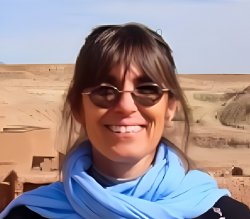 Science and technology, as part of culture, constitute part of the social fabric of peoples. A vision situated in the American reality can serve to understand the tensions that we face in this area of human activity that is both creator and destroyer of utopias, that is linked to the dreams and ideals of a better society and that constitutes the basis of a sovereign nation. In this proposal, we seek to find those points of contact between one of the most universally accepted non-biological natural sciences, astronomy, the ancestral knowledge of the American peoples, and its power to transform the everyday from the enormous interest that it arouses in people thanks to the transcendent answers, such as where we come from and why we are here, that it seeks to answer.
Science and technology, as part of culture, constitute part of the social fabric of peoples. A vision situated in the American reality can serve to understand the tensions that we face in this area of human activity that is both creator and destroyer of utopias, that is linked to the dreams and ideals of a better society and that constitutes the basis of a sovereign nation. In this proposal, we seek to find those points of contact between one of the most universally accepted non-biological natural sciences, astronomy, the ancestral knowledge of the American peoples, and its power to transform the everyday from the enormous interest that it arouses in people thanks to the transcendent answers, such as where we come from and why we are here, that it seeks to answer.
Just as in the past our vision of the cosmos was limited to what our eyes could perceive, today new doors to knowledge have been opened thanks to what we call multi-wavelength, multi-messenger, and multi-sensory astronomy; these new approaches to the nature of the macrocosm also lead us to rethink those towards the "universe" of human perception and consciousness. A double challenge for modern science and technology.
Beatriz Elena Garcia. Doctor of Astronomy, Specialist at the National Technological University of Mendoza (Argentina) in multi-wavelength and multi-messenger Astrophysics for the study of the high-energy Universe and the early Universe, with development of detection technologies and devices, resources and processes for multimodal astronomy.
44) Eduardo Freire Santana - The Utopia of Full Democracy
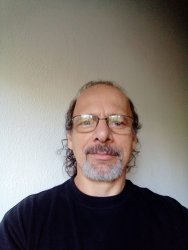 This exhibition aims to address the issue of democracy in a comprehensive manner, examining both state-level institutions and social organizations, as well as the community life of neighborhoods and cities. In the case of state-level democracy, we will use Brazil's Democratic Constitution, promulgated in 1988, as a reference point. Specifically, we will focus on spaces for citizen participation, such as public policy management councils, public conferences, referendums, and plebiscites. This approach, in addition to relying on theoretical studies and specialized literature, will also include accounts of concrete experiences in these spaces of citizen participation, which are guaranteed by Brazilian constitutional law.
This exhibition aims to address the issue of democracy in a comprehensive manner, examining both state-level institutions and social organizations, as well as the community life of neighborhoods and cities. In the case of state-level democracy, we will use Brazil's Democratic Constitution, promulgated in 1988, as a reference point. Specifically, we will focus on spaces for citizen participation, such as public policy management councils, public conferences, referendums, and plebiscites. This approach, in addition to relying on theoretical studies and specialized literature, will also include accounts of concrete experiences in these spaces of citizen participation, which are guaranteed by Brazilian constitutional law.
We will analyze the progress made by this Constitution compared to the political regime that preceded it in 1988, namely the period of military dictatorship in Brazil (1964-1985), established following the 1964 civil-military coup. Furthermore, we will address the limitations of formal democracy, even in the current, more democratic period.
Beyond this analysis of state-level democracy, we will explore democratic experiences in community life, drawing on the experience of a core group of the Humanist Movement in the Ilha do Bororé neighborhood in southern São Paulo. This community-based humanitarian action, initiated by the Direct Communication Center, the Neighborhood Newspaper, and a Community Forum (1994-2026), significantly strengthened the democratic participation of the local population. This achievement is recognized to this day and continues, albeit in a transformed form, through the efforts of the community's younger generations. This community experience remains the subject of academic studies and debates within social movements.
This exhibition aims to explore the utopia of a truly full democracy, at the state level, within social movements, and in community life, emphasizing the importance of a culture of popular participation to energize a potential real and full democracy. We will also highlight the importance of the humanist vision of active non-violence, not only as a methodology for political action but primarily as a value, so that in a democratic process, the human being is always considered a value and a central concern.
The activity will include a presentation of the theme and a moment for exchanging reflections with the audience.
Eduardo Freire Santana. Born in 1968, in the state of Bahia, Brazil, he currently resides in Porto Alegre/RS, southern Brazil. Holding a degree in Social Sciences from UFRGS, he works as a Professor and Methodological Analyst in comprehensive health training. He co-authored the book, Strengthening Civil Society in Regions of Extreme Poverty, edited by Vima Barban (Polis, 2023).
Since the age of 18, he has been a dedicated volunteer in the universal Humanist movement, contributing to initiatives in numerous Brazilian cities and other South American countries. His current focus is on the Pindorama Center for Humanistic Studies and the 3rd World March for Peace and Nonviolence. He is also a co-founder and researcher at the Caucaia Park for Studies and Reflection.
45) Eduardo José Moraes Junior - Public Debt and Teacher Salaries: The Measurable Impacts of Debt Mechanisms on Education Professionals and the Quality of Brazilian Public Education.
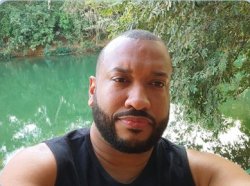 According to data from Auditoria Ciudadana, an association dedicated to analyzing and detecting fraud in state liabilities, Brazil's public debt consumes approximately half of the Union's annual expenditures. Maria Lucia Fattorelli, the national coordinator of the association, argues that the Brazilian state, through its debt system, transfers a significant portion of its wealth to the financial sector, which could be used to improve the quality of essential services such as health and education, rather than serving the concentration of wealth and rentier interests.
According to data from Auditoria Ciudadana, an association dedicated to analyzing and detecting fraud in state liabilities, Brazil's public debt consumes approximately half of the Union's annual expenditures. Maria Lucia Fattorelli, the national coordinator of the association, argues that the Brazilian state, through its debt system, transfers a significant portion of its wealth to the financial sector, which could be used to improve the quality of essential services such as health and education, rather than serving the concentration of wealth and rentier interests.
Faced with this scenario of economic violence and social injustice, this proposal invites participants in the 10th CMEH Symposium - 2025 to study the accumulation mechanisms and the means of controlling subjectivity used to guarantee the transfer of wealth from societies to very small groups of individuals who act on behalf of big capital. One of the known consequences of the debt mechanism is the exponential generation of material and intellectual poverty that affects individuals and peoples through underinvestment in education and research.
In this context, one of the most revealing data on the injustice of this phenomenon concerns social spending and, in particular, spending on education and personnel, which directly impacts teachers and the quality of education.
The objective of this study is to comprehensively understand the various aspects of this issue through a methodical analysis in order to propose coherent guidelines for humanitarian action in the face of this injustice.
Eduardo José Moraes Junior. Education: Master of Education, University of São Paulo (2024). Bachelor of Social Sciences, Pontifical Catholic University of São Paulo (PUC-SP). Bachelor of Sociology, PUC-SP.
Research and Publications: Researcher at Fateliku Research Group on Education, Ethnic-Racial Relations, Gender, and Religion, FE-USP (2019-present). Author of "Peiperization and racism: the role of PEI schools in São Paulo in the racial segregation of Brazilian students" (XII COPENE, 2022). Researcher at the CMEH - World Center for Humanistic Studies (2009-present). Co-organizer of the colloquium "Black Women Without Stereotypes", Caucaia Park for Study and Reflection (2019). Director and presenter of the short film "Unity and Differences Among Human Beings", Campanário Center for Humanistic Studies (2018). Editor and translator of the book "Theory and Practice of the Dynamic Structural Method" (2013). Author of "Non-racial Violence" (2014), presented at the 4th International Symposium of the World Center for Humanistic Studies, Santiago de Chile (2014).
Professional Experience: Professor of Philosophy and Sociology, Basic Education II, São Paulo State Public Education (2014). Coordinator of CRAS Goiabal - Social Assistance Reference Center, Além Paraíba (2013). Professor of Sociology and Philosophy, Panorama College, Recife (2011-2012). Researcher at Casa das Áfricas (2008). Research assistant at UNESCO for the project "Living the School: A study on the success and failure of school life in Brazilian elementary education" (2005). Educator at Instituto Pólis, in the "Gera Ação Jovem" project, in partnership with the São Paulo City Department of Social Assistance (2004). Technical manager of the functional testing and electrical insulation laboratory at Arlam-Novemp (2000-2004). Electrician, Getúlio Vargas State Technical School - ETEC GV (1999).
Key Skills and Interests: Education. Ethnic-racial relations. Gender studies. Religion. Social inequality. Research. Teaching.
46) Walter Chung Echevarría - Reflections on the Therapeutic Application of the New Humanist Psychology.
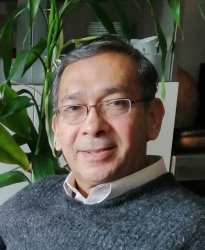 The psychological development elaborated by Silo is part of a doctrinal set and procedures aimed at supporting the process of spiritual transformation of individuals. However, the novelty of his approach and its contributions to current psychological currents are evident. Therefore, psychology professionals and therapists who identify with the Humanist Movement consider it valid to put these tools at the service of people, with the aim of contributing to overcoming suffering.
The psychological development elaborated by Silo is part of a doctrinal set and procedures aimed at supporting the process of spiritual transformation of individuals. However, the novelty of his approach and its contributions to current psychological currents are evident. Therefore, psychology professionals and therapists who identify with the Humanist Movement consider it valid to put these tools at the service of people, with the aim of contributing to overcoming suffering.
When practicing in this direction, many questions and approaches arise that need to be subjected to reflection and exchange among peers and interested civil society. This dissertation aims to present these questions to this potential collective.
For example: What are the theoretical differences (contributions) of New Humanist Psychology compared to the main current trends? What is the (new?) position of the therapist from this perspective? What are the new tools and which are the most complementary for this therapeutic application?
Walter Chung Echevarría. Born in 1955 in Peru, he is a Mechanical Engineer by training and a specialist in marketing and industrial processes. Second Speciality in Cognitive Behavioral Therapy and Master's in Psychology of Education and Human Development. Member of the New Civilization Humanistic Studies Center. Participates in the Humanist Movement since 1974.
47) Estefanía Bianco, Alejandro Gelfuso - Ciudad Futura.
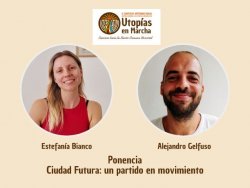 Ciudad Futura is a political instrument born in early 2013 in the city of Rosario, from the convergence of two autonomous social movements in the city, the Giros Movement and the June 26th Movement, social movements that reference the tradition of post-2001 experiences. Città Futura defines itself as a movement party, whose objective is not only to represent state institutions but to be a materialized expression of society in motion. It is a political instrument where coexist: territorial projects, schools, canteens/community houses, cultural spaces, production and commercialization units, media, popular mandates in the municipal council of Rosario and in other localities of the province of Santa Fe, and large-scale prefigurative policies such as the urbanization of Nuevo Alberdi or the public food company.
Ciudad Futura is a political instrument born in early 2013 in the city of Rosario, from the convergence of two autonomous social movements in the city, the Giros Movement and the June 26th Movement, social movements that reference the tradition of post-2001 experiences. Città Futura defines itself as a movement party, whose objective is not only to represent state institutions but to be a materialized expression of society in motion. It is a political instrument where coexist: territorial projects, schools, canteens/community houses, cultural spaces, production and commercialization units, media, popular mandates in the municipal council of Rosario and in other localities of the province of Santa Fe, and large-scale prefigurative policies such as the urbanization of Nuevo Alberdi or the public food company.
All these projects coexist in the same instrument because behind it lies a hypothesis of political construction: it is necessary to remedy in some way this critical process of disaffection of society towards politics. This is done from the bottom up, bringing the decision-making process closer to the places where these decisions have an impact and linking the problems of everyday life to politics. We seek to materialize in the present fragments of the city and society that we want for the future. We all agree that there is an unjust food production model, that education is important, that culture is fundamental, etc., but few can say what a fair model is or what it would look like.
That's where we want to go: to show on a small scale, through a prefigurative and concrete practice, that there is a different model. This method of political construction has, in our experience, a much greater power of persuasion than an abstract political discussion. To build a world where there is room for many worlds, we need to invite and convince that there is a different way to manage education, culture, production, commercialization, community organization. Our work proposes a way to do this.
Estefanía Bianco. Is a member of Ciudad Futura. She is the territorial coordinator for the central district of Ciudad Futura. She is also the coordinator of the Training Schools of the Ciudades Sin Miedo-Ciudad Futura Foundation. Currently, she is an advanced student in the History degree program at the National University of Rosario.
Alejandro Gelfuso. Is a member of Ciudad Futura. He is the editor of Factos - Ciudad Futura's Communication Media. He is also the coordinator of Ciudad Futura's provincial development. Gelfuso holds a degree in Social Communication from the National University of Rosario and is currently a doctoral candidate in Political Science.
48) Anabel Alejandra Mattei, Silvia Gómez Del Corripio - Reflection Parks as Beacons for a Universal Human Nation.
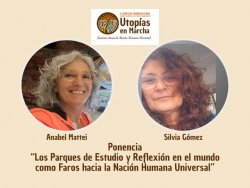 In this time of cruelty, dehumanization, disconnection, inequality, and despair, there is a need for places that can serve as spaces for psychological and spiritual recomposition. Places that are true social cohesion agents, where people feel at ease, where they can connect the best of themselves with the best of others in order to be inspired and find joint solutions to transform the current situation and experience that a more humane world is possible.
In this time of cruelty, dehumanization, disconnection, inequality, and despair, there is a need for places that can serve as spaces for psychological and spiritual recomposition. Places that are true social cohesion agents, where people feel at ease, where they can connect the best of themselves with the best of others in order to be inspired and find joint solutions to transform the current situation and experience that a more humane world is possible.
These places exist and they are the Study and Reflection Parks. From the first and historic one in Punta de Vacas, Mendoza, built in 2007, to different cultures and distant points in Africa, Europe, Asia, and America. Today there are already more than 50 Parks worldwide, and here, 35 km from Rosario, in Lucio V. López, is ours, the Carcarañá Study and Reflection Park. All Parks share common architectural elements and symbols that translate universal experiences and records that have been materialized since the most remote times in all cultures and reflect the way in which humanity listens to and interprets the echoes of the sacred.
The Study and Reflection Parks are also places of irradiation of a wise and kind teaching such as that of Master Silo, who proclaims the principles of universal humanism as a social doctrine and a commitment to action in the world while radiating a new spirituality. In these places, no one is asked about their personal beliefs, as it is not necessary to have a particular faith to feel the joy, goodness, and strength that dwells in each one, or to make contact with the best of oneself and others.
We believe and experience that these Parks are the materialization of the best intentions, they are a necessary response to the growing crisis of social dehumanization and personal destructuring. In these places, people converge who recognize the need for humanization, learning to build with others a reality worthy of love, people who seek inspiration and mobilize towards the Universal Human Nation.
As Silo said at the La Reja Study and Reflection Park: "As human beings, we are not alien to the destiny of the world... May our lives grow, overcoming contradiction and suffering. And may our lives advance, making others advance."
Anabel Alejandra Mattei. Born in Casilda, Santa Fe, Argentina, in 1965. Since her youth, she has participated in the Humanist Movement founded by Silo, and since 2012, she has promoted activities to spread Silo's Message and participates in a community. She was part of the construction of the Carcarañá Study and Reflection Park from the beginning and is a current member of its operating commission. She is president of the Pangea Foundation of the Littoral for Peace and Non-Violence, which carries out activities related to humanism and Silo's Message in this park. In 2010, she joined the School of Silo, and since then she has been researching internal experience and sharing it, while promoting activities related to the dissemination of Silo's work. She is the promoter and owner of Medita Rosario since 2018. She currently develops social and humanitarian activities in the Civil Association Alfabetización Santa Fe.
Silvia Gómez Del Corripio. Born in Rosario, where she trained in the field of visual arts and where she currently resides. Since 1981, she has participated in the current of thought and spirituality founded by the writer, thinker, and spiritual guide Silo. From the beginning, she promoted the development of the Humanist Movement with extensive political and social activism in various countries, standing out in the production of magazines and materials for the dissemination of this message. For years, she was the graphic producer of Silo's literary work in relation to various Argentine publishing houses. Since 2011, she has been a founding member of Editorial Hypatia, where she seeks to contribute new perspectives on the fundamental issues of the human being, prioritizing a humanist orientation. She is a promoter of the construction of the Carcarañá Study and Reflection Park, near Rosario, where she is dedicated to the research and deepening of the Office of Fire and practices proposed in the teachings of Silo. She is a founding member of the Pangea Foundation for Peace and Non-Violence dedicated to the development of various social activities in the field of Non-violence and non-discrimination.
49) Francy Rocío Chávarro Cardozo - Economy of Communion: Towards a Sustainable Management Against Environmental Pollution.
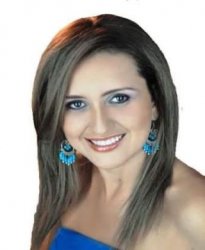 Environmental pollution represents a critical challenge for society. The Economy of Communion (EoC), as an ethical and sustainable approach, advocates for collaboration among businesses to actively address contamination. It proposes that it is possible to achieve economic benefits without harming the planet's well-being, thus promoting a fair and sustainable future.
Environmental pollution represents a critical challenge for society. The Economy of Communion (EoC), as an ethical and sustainable approach, advocates for collaboration among businesses to actively address contamination. It proposes that it is possible to achieve economic benefits without harming the planet's well-being, thus promoting a fair and sustainable future.
The objective of this study is to present the Economy of Communion as an economic approach that aims to mitigate environmental pollution through social responsibility and business collaboration. It has been identified that by adopting ethical and sustainable principles, businesses engaged in the EoC adopt ethical and sustainable principles, seeking financial benefits while mitigating environmental pollution.
Examples such as El Polo Lionello Bonfanti, Mundell & Associates, Bertola SRL, and ACEDECO PADEVI, illustrate responsible and ecological business practices, promoting collaboration, social responsibility, and sustainable products to address pollution and build a fair and sustainable future. Finally, the Economy of Communion (EoC) and environmental sustainability are intertwined in an integrated approach to addressing pollution. The EoC seeks not only economic success but also promotes sustainable business practices based on solidarity and social responsibility.
Concrete examples show how these businesses consider the social and environmental impact, promoting innovation and community participation. The EoC represents a promising perspective for a future where economic prosperity and planetary health coexist harmoniously, calling for effective and ethical solutions to contemporary environmental challenges.
Francy Rocío Chávarro Cardozo Doctorate, University of Manizales - Umanizales: Doctorate in Sustainable Development, August 2023, Contribution of the Economy of Communion in the Transformation of Corporate Social Responsibility to Corporate Ecological Responsibility.
Master's Degree, Universidad Surcolombiana: Master's Degree in Integrated Project Management, February 2018 - November 2020, Design Proposal for an Integrated Model for Project Management and Execution at Universidad Surcolombiana.
UNIR Master's Degree: Integrated Management Systems, February 2015 - April 2018, Implementation of the Quality Management System at the CUN Huila Regional University.
Incca University of Colombia Foundation Specialization: Specialization in High-Speed and Distributed Networks, August 2005 - June 2006. Incca University of Colombia Foundation Undergraduate Degree: Systems Engineering, February 2002 - June 2005, Next Generation Networks.
50) Leticia Cano Soriano - Community Social Fabric: Interaction and Strengthening for Peaceful Coexistence and Collective Agreements.
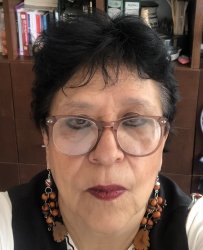 The objective is to reflect on the need to strengthen and rebuild the community social fabric, in order to foster solid, egalitarian, inclusive, and sustainable interactions and bonds that contribute to promoting relational processes based on listening, dialogue, and the construction of collective agreements that positively impact the social well-being of communities, promoting peaceful and non-violent coexistence.
The objective is to reflect on the need to strengthen and rebuild the community social fabric, in order to foster solid, egalitarian, inclusive, and sustainable interactions and bonds that contribute to promoting relational processes based on listening, dialogue, and the construction of collective agreements that positively impact the social well-being of communities, promoting peaceful and non-violent coexistence.
The proposal is to identify in this relationship some emerging problems that have had severe social impacts on communities, damaging their structure and configuration, due to social risks and serious damages that affect populations and cause community breakdowns and collective conflicts. One of the main arguments will therefore be the reconfiguration and re-signification of the community social fabric. To strengthen the community social fabric, it is essential to work in an integrated manner with families, assuming community tasks and commitments for the benefit of all.
Working with adolescents is fundamental as it contributes to opening up spaces for reflection on the new emerging social, cultural, political, and recreational scenarios in which they are called to live, grow, and dwell.
Leticia Cano Soriano. Holds a degree in Social Work from the National School of Social Work (ENTS) at the National Autonomous University of Mexico (UNAM), a Master's degree in Social Work from the Faculty of Social Work at the University of Toronto, Canada, and a Master's degree in Educational Sciences from the Institute of University Studies A.C. (IEU). She completed a doctorate in Social Work at the National School of Social Work and the Faculty of Social Work at the National University of La Plata, Argentina (UNLP).
She is a full-time tenured professor at ENTS.
Her research and study areas include social policy and poverty, gender, and community social emergency.
She served as the director of the National School of Social Work, appointed by the UNAM Governing Board for two terms (2012-2016 and 2016-April 2020). She served as president of the Special Commission on Gender Equality of the UNAM University Council from 2014 to April 2020. She is a founding member of the National Academy of Research in Social Work (ACANITS) and served as president of the National Network of Higher Education Institutions in Social Work (RENIESTS) from 2013 to 2020, and is currently the honorary president of this national network.
She is a founding member of the Association of Alumni of the National School of Social Work A.C. and an honorary member of the National College of Social Workers (CONATS).
In 2018, she was awarded the Medal for Outstanding Contributions to the Benefit of Mexico City by the city government.
On December 2, 2019, the Judiciary of Mexico City honored her by creating the "Leticia Cano Soriano" recognition for the outstanding work of social workers in the judiciary of Mexico City.
She was appointed by the Rector of the UNAM as coordinator of the Academic Council of the Area of Social Sciences (CAACS), a position she held from December 2020 to August 2024.
She currently works as a full-time tenured professor at the National School of Social Work of the UNAM, where she conducts teaching and research activities.
51) Ela Urriola - Affect and effect of breaking and sewing up utopias.
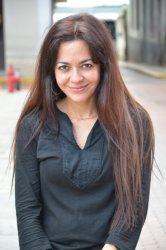 We are finite beings and we live in uncertainty. We are abyss and we fly. We are emptiness and despite all that, despite the weight of finitude, the cracks of uncertainty, the abysses we avoid on the inner sidewalks, the palpitations of our entrails and in our memory blurred by immediacy, we are capable of dreaming, of eternalizing ourselves in art and in the sport of reaching for the stars every time a verse pierces us; we are that omnipresent and necessary dust to blur the small torches and turn the function of inhabiting the world into an inexorable race of impossibilities, into that imperfect but perfectible thing, the homo who knows, who feels, who dreams and is amazed.
We are finite beings and we live in uncertainty. We are abyss and we fly. We are emptiness and despite all that, despite the weight of finitude, the cracks of uncertainty, the abysses we avoid on the inner sidewalks, the palpitations of our entrails and in our memory blurred by immediacy, we are capable of dreaming, of eternalizing ourselves in art and in the sport of reaching for the stars every time a verse pierces us; we are that omnipresent and necessary dust to blur the small torches and turn the function of inhabiting the world into an inexorable race of impossibilities, into that imperfect but perfectible thing, the homo who knows, who feels, who dreams and is amazed.
And thanks to that, to that finitude and those shadows that characterize us, humans sometimes forget, destroy, and hate; other times they eternalize themselves in the luminous moments of creation, of looking at the other as oneself, without mirrors, without screens, in solidarity and in the promise of continuing to exist for the sake of a tomorrow. And they return to forgetting.
If we understand modernity as the historical momentum in which reason emerges as a prologue and as a beacon of a new mentality, certainty, then we are faced with the dichotomy of reason/experience, thought/feeling; the unyielding truth, the only possible column; the path of certainty. If, on the other hand, we assume that modernity is that space, that doing, and that flow of events that define novelty, then we understand that novelty is part of every past era up to the present, since each era has had its own modernity, its own techné, its own new light. We will assume the modern as the novel and modernity as a concept that challenges us, and with which postmodernity, which would be the opposite of what precedes it, is truly challenged. If the modern was certainty, the postmodern is uncertainty. Faced with truth, contingency; faced with absolute reason, multiplicity.
Human beings are capable of advancing because they believe in the impossible. They dig into the invisible, they build what was once stardust, raw material for dreams. They caress galactic dust, decipher the death of a star, but forget to caress the body. They speak, they navigate the universe of bytes, terabytes, and pixels, but they do not look at the other. The effect of immediacy reaches affection, redirects it, and gives it likes. And it forgets again.
Blas Matamoro, in Literature and Commitment, tells us: "(...) The writer, the citizen, the awake and the asleep, the militant and the adventurer, the saint and the comedian, each in their characterization, remain the same subject beyond time and space. They carry their self throughout the years and across the world. That is why the artist is subject to judgments of ethical and political responsibility, the descent into the hell of the other, of the others." In the case of Jean-Paul Sartre, commitment is inherent in a literary choice. This is a liberating choice that requires, it is understood, a reader. He tells us: "One does not live the tragic tragically, nor pleasure with pleasure. In wanting to write, what one tries is a purification." One cannot write without the other. The other, that universe, origin, motor or inspiration of affections. The recipient of the work, the receptacle of the literary magic that, when successful, reaches the other, stirs them, probes their aesthesis and makes them feel alive, or remember that life that they once held, not virtually, but that experience of flavors and pains, the analog experience of being in the world.
Looking in the mirror is a merging with the reflection that returns the other's gaze, it is seeing the other. Socrates looks in the mirror, not as Narcissus did before to delight in the surface, to preen his already precious image, but to rescue and understand what is beneath the image of the other. The other, the one of flesh and bone, the other who leans in and who would confuse me with himself, because despite the distance with the mirror we are the same. Socrates delves into the abyss of classes and even gender, because both a slave and a woman could have access to knowledge. This is the most revolutionary aspect of Socratic humanism, the true force that even in later years would not be shared by those who succeeded him. In that questioning, Socrates helps the question to discover the one who is in the mirror: it is maieutics that is the tool and the weapon that he gives to his fellow man and brings him closer in an embrace of answers to find himself, because until then, we had not seen ourselves, properly speaking, in the West. The human being slipped away into an equation, in the name of a star or in the soft horizon of riches, but his existence disappeared as a problem here on Earth. Socrates discovers this void between knowledge and action, and opts for a living, human, simple discourse about the other, the fellow man.
The conviction that there could be a world where everyone had access to knowledge, where women and slaves were recognized for their right to aspire to education and knowledge, seems like a utopia not only of the 3rd century BC but also of ours. Still, in the 21st century, with all the advances and revolutions, we continue to discriminate against the human condition and value it based on its differences, not its similarities. The concept of similarity still seems unattainable in many regions of the planet. This utopia sustained by Socrates will reach us through what his contemporaries and disciples recounted about the master, but lacking the systematization as that recognized as the first utopia of the West, that of his disciple Plato. Far from full similarity and rather close to the historical and social context, this utopia leads to systematizing a space of coexistence, a Republic, one that does not exist but that is built as an ideal. Plato's Republic will thus be the first utopia of the West. What has happened since then? What summons us and what does the future hold for us, if we do not rethink ourselves? And the creative gesture, the created: dehumanized? What is the point of continuing to dream of a better world? In this talk we will review theories and problems, affections and defects, the smoothness and the dryness of the history of utopias.
Ela Urriola. Is a writer, painter, and philosopher. She is a Numerary Academic of the Panamanian Academy of Language, a member of the Bioethic Network - Unesco Advisory Committee, President of the Network of Women Philosophers of Panama (SAFO), and Vice President of the National Council of Writers of Panama (since 2023). She has won the National Literature Prize "Ricardo Miró" in 2014 and 2018 for poetry, and in 2021 for short stories. She has also won the National Short Story Prize "José María Sánchez" with "Black Holes" (2015) and the National Children's and Youth Literature Prize "Carlos Francisco Changmarín" with the poetry collection "The Things of This World" (2020). She has also received the IPEL Prize in the Essay category (2023). Her works have been translated into French, English, Portuguese, Greek, Chinese, and Czech. Website: www.elaurriola.com
52) Benoît Mangin - Couleurs d'Avenir: a model for urban social development.
Couleurs d'Avenir was founded in 2002 when Benoît Mangin was coordinating the Humanist Movement during the creation of what were then called "appareils". "Couleurs" signifies diversity, non-discrimination, creativity, and art. "D'Avenir" indicates evolution, movement towards the future, and the possibility of adaptation. Couleurs d'Avenir's programs are based on two main Siloist tools:
- Structural dynamic diagnosis
- Principles of valid actions
From these two tools, modes of acting and being called "savoir-faire" and "savoir-être" are derived. For the members of Couleurs d'Avenir, this is an attitude of constant awakening, and for the beneficiaries, it is about discovering possibilities to respond to suffering and the various forms of violence experienced daily.
For 20 years, Couleurs d'Avenir has been considered a school for young professionals graduating from university without experience. The training of these future decision-makers, alternating between field experiences (in direct contact with the population and local actors) and the theory of the urban social development methodology, provides the necessary content to ensure the subsequent development of territories.
The intervention sites (generally in the Île-de-France region) are neighborhoods classified by the State as priorities in the City policy. Social housing is managed by social housing companies whose accommodations are assigned by allocation committees composed of representatives of the State, the municipality, the department, and tenant representatives (public decision-makers).
These are therefore homes assigned to households that meet specific social needs criteria related to resources, the family's living situation, and those who cannot survive in a so-called classic housing (costs too high).
Couleurs d'Avenir's programs are built on a shared territorial diagnosis with local actors (professionals and/or local resource persons) and residents (household surveys, meetings at the foot of buildings, walking tours of the neighborhood, etc.). This diagnosis is based on the method of structural dynamic diagnosis by defining "the question"; "the point of interest" and the problem to be solved. The development of the research consists of gathering all the so-called "static" information and the so-called "dynamic" information necessary to co-construct a program after having answered the diagnostic question with a tool called a clock diagram.
The program's actions are carried out jointly by local actors, residents, and Couleurs d'Avenir professionals with the aim of training and educating the population to achieve autonomous functioning without having to rely on Couleurs d'Avenir teams.
Urban social development touches all areas of human life, although housing is often the entry point. Benoît Mangin believes that this entry point is an opportunity because housing is precisely the most appropriate place to address people's intimacy and social life.
During the presentation, he will explain in detail his methods based on research and constant application in balance with rapid social evolutions.
Benoît Mangin. Born in 1966, French national residing in Argentina. Position: Director of Couleurs d'Avenir since 2002 Activity: Urban social development Methodology: Dynamic structural method Values: Non-discrimination, non-violence, communication, and genuine solidarity Creation of Couleurs d'Avenir: Inspired by the model previously called "humanist apparatus" by the Siloists Tools used: True democracy, active non-violence, organization based on non-discrimination and genuine solidarity.
53) Pressenza - Nonviolent Journalism: A Necessary Utopia.
 The journalism and, more broadly, the communication, are creators of social common senses. The current system, marked by values at odds with human evolution, uses its widespread mechanisms of content dissemination to feed the different forms of violence.
The journalism and, more broadly, the communication, are creators of social common senses. The current system, marked by values at odds with human evolution, uses its widespread mechanisms of content dissemination to feed the different forms of violence.
The hegemonic media and digital platforms, controlled by corporate powers, spread massively hate speech and disinformation, while restricting and violating an effective practice of the Human Right to Communication.
Faced with this scenario, diverse voices arise from the grasroots demanding profound transformations in the way of informing and communicating. At this stage, a Nonviolent Journalism, that reflects the range of the best human aspirations has become has become a necessary utopia.
Pressenza. Is an international news agency with a humanist spirit and a nonviolent approach that gives visibility to news, initiatives, proposals and scenarios related to Peace, Nonviolence, Disarmament, Human Rights and the fight against all forms of Discrimination. It places the human being as a central value and concern and celebrates diversity. Thus, it proposes a lucid journalism that respects these essential premises, aiming at the resolution of social crises and conflicts in all latitudes.
In this sense, it disseminates studies, analyses and actions that contribute to world peace and to the overcoming of violence; prioritizing nuclear and conventional disarmament, the peaceful resolution of conflicts, their prevention and the withdrawal from occupied territories.
At the same time, it denounces all the facts and situations that cause pain and suffering in the suffering in the populations, trying to decipher and transform the causes of these events, encouraging the people to be actors of change. The agency also trains students, social leaders and volunteers in Nonviolent Journalism.
54) Juana Pérez Montero - The Utopia of Unity and Consensus.
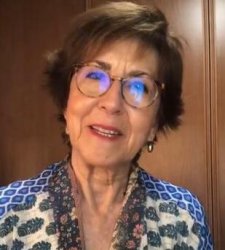 The text first clarifies what we mean and what we don't mean by consensus.
The text first clarifies what we mean and what we don't mean by consensus.
It then outlines some of the preconditions we consider necessary for both internal unity and consensus to occur: from the need to move beyond a situation of conflict or contradiction, or simply the interest in building a common project with others, to the belief that there is always a unifying path on another level that enriches us personally and collectively, through defining a common purpose that guides the process; through rebelling against what is taken for granted, against what we consider inevitable; or through the willingness to step out of our comfort zone, among other points.
Next, some common elements in the search for and experience of both internal unity and consensus are highlighted. For example, in both cases, a great intention is put into action; we focus on relationships of collaboration and solidarity, moving from "I" to "we", and our gaze is turned towards the other; we connect with the humanity within us and in others; we relate with empathy, kindness, in a horizontal, inclusive manner, without judgment or censorship. All this is accompanied by a high level of attention and active listening, which implies, as we well know, inner silence, relaxation and letting go, elimination of suffering and internal violence, etc. A silence in which we can "feel" proposals from another level.
The text continues by sharing some consequences that, in our view, derive from both experiences: they allow us to understand better, help us advance on the path of reconciliation, humanization, and liberation. They involve overcoming the culture we were born into - based on individualism, discussion, revenge, and imposition as forms of relationship and an outcome where there are always winners and losers - to build another one in which we think, feel, and act based on relationships of cooperation and solidarity, as we have emphasized. And they leave a mark on our consciousness that serves as a guide and to which we seek to return.
The text concludes by sharing reflections and proposing new ideas.
Juana Pérez Montero. A journalism graduate from the Complutense University of Madrid, chose from a very young age to develop her journalistic work from a nonviolent perspective, always seeking to give voice to the community and prioritize her voluntary work.
Her concerns led her to participate in social and spiritual organizations from a very young age. After working in various groups, at 23 she embraced the ideas of Universalist Humanism, beginning to organize groups in different countries around these ideas and practices. She began her humanist journey in the Community for Human Development and became a member of the Humanist Party, where she directed El Humanista in its initial phase. She later participated in Convergence of Cultures and is currently a writer and editor for the international news agency Pressenza, in addition to being a member of El Mensaje de Silo.
She is an activist for various causes, such as nuclear disarmament, currently a member of the Alliance for Nuclear Disarmament, and Basic Income, on which topic she has given lectures and workshops in various countries in Europe and the Americas, and is part of the Humanist Network for Universal Basic Income.
At Pressenza, she participated in the writing of the collective book "Nonviolent Journalism. Towards a Humanizing Approach to Communication" (2021) and later published her first collection of poems "Where Hope Dwells" (2023).
She is also the author of contributions such as Notes on Free Acts, Conditions and Elements Liberating Energy, Which Could Help to Establish Another Level of Consciousness (2020) and Internal Unity and Consensus, Brief Notes on Common Elements We Find in Both Experiences (2023).
56) Philippe Moal - Visceral Rejection of Violence: A Quantum Leap for Humanity! (Workshop).
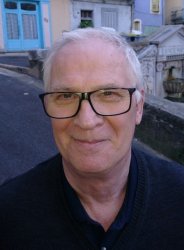 This workshop aims to explore an often overlooked aspect of current research: the visceral rejection of violence. While it may seem utopian, the widespread adoption of this attitude would represent a giant leap forward for humanity. We will see how this process is already underway.
This workshop aims to explore an often overlooked aspect of current research: the visceral rejection of violence. While it may seem utopian, the widespread adoption of this attitude would represent a giant leap forward for humanity. We will see how this process is already underway.
After clarifying the difference between hatred, anger, and disgust, we will explore through various practices how intellectual and emotional rejection differs from visceral rejection. We will then focus on internal senses, particularly cenesthesia, typical of the visceral world. We will also distinguish between innate and acquired visceral rejection, between instinctive and non-instinctive rejection.
Then we will delve into the heart of the matter, describing and sharing experiences about the manifestations of visceral rejection and its positive and negative consequences, both at the personal and social level. Indeed, just as there is a visceral rejection of violence, there is also a visceral rejection that can generate violence. It is therefore necessary, depending on the case, to activate or deactivate it.
Finally, we will share tools and methods to develop a visceral rejection that combats violence and to free ourselves from those visceral rejections that in turn generate violence.
Philippe Moal. French. Since the 1980s, he has been promoting the foundations and methods of nonviolence in France, Romania, Benin, Chile, and now Spain. He is the founder of the Nonviolence Observatory and a member of the Noesis Center for Humanistic Studies. He is the author of the books "Violence, Consciousness, Nonviolence" (2018) sponsored by UNESCO, "Tracks for Nonviolence" (2022), and "The Space of Representation and Its Context" (2024).
57) Daniel León - Ramanujan and Inspired Consciousness.
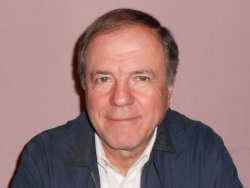 ‘Inspired consciousness is an all-embracing structure, capable of immediate intuitions of reality. On the other hand, it is apt to organise sets of experiences and to prioritize expressions that are usually transmitted through Philosophy, Science, Art and Mysticism ... inspired consciousness is more than a state, it is a global structure that passes through different states and can manifest at different levels’ (Silo, from the book “Psychology Notes”, 2006).
‘Inspired consciousness is an all-embracing structure, capable of immediate intuitions of reality. On the other hand, it is apt to organise sets of experiences and to prioritize expressions that are usually transmitted through Philosophy, Science, Art and Mysticism ... inspired consciousness is more than a state, it is a global structure that passes through different states and can manifest at different levels’ (Silo, from the book “Psychology Notes”, 2006).
If anyone can be said to have had immediate, profound and inexplicable insights into reality, it is the main protagonist of this story. Srinivasa Ramanujan Iyengar passed through this world quickly, but he left a spectacular mark. He passed away in 1920, at the young age of 32. India celebrates 22 December (the date of his birth) as National Mathematics Day, in his honour. Despite his self-taught status, he managed to rise to the highest heights in the entire history of mathematics. His ethnic, geographical and social background brought him many difficulties, but his qualities were so extraordinary that he was accepted by Cambridge University, where he graduated, and was later made a Fellow of the London Mathematical Society and a Fellow of the Royal Society (almost a noble title). According to his colleague and protector G.H. Hardy, ‘he combined a power of generalisation, an idea of form, and an ability to modify his hypotheses rapidly which were often
truly astonishing, and he did so in his own peculiar field, unrivalled in his day. He never met his equal,and could be compared only with Euler or Jacobi’.
Ramanujan developed about 4000 formulas and theorems on various aspects of his discipline, most of them without proofs, but which, over the years, proved to be correct. To formulate a theorem without being able to explain how it was arrived at, and without feeling the need to prove it, is clearly a kind of
mystical revelation. Hardy literally ‘could not believe it’.
The latter is the central motif of this essay: the way Ramanujan arrived at his ‘discoveries’. For this special mode of mental functioning seems to indicate that there is a certain ‘equipment’ in us that we use rarely and accidentally. A type of functioning that can perhaps be developed, in order to spectacularly open that path we are looking for: the one that leads us to unveil the mystery of all that exists.
Daniel León Electronic Engineer. 20 years as a professor at the National University of Rosario. 56 years as a member of the Humanist Movement. He has written over 30 essays on the development of consciousness and the possible evolution of the human being. He has written 4 books: "The Ghost in Freedom" (1995) (unpublished), "A Method for Thinking" (COAD Publishing, 2014), "A Method for Thinking and Discovering Analogies" (Hypatia Publishing, 2017), and "Akop's Legacy" (Homo Sapiens Publishing, 2022). He is currently the director of the Rosario Center for Humanistic Studies and a researcher at the Carcarañá Study and Reflection Park.
58) Haydee Venosa Figueroa, Lourdes Cuellar, Leonardo Herrera Gonzalez - Comprehensive Teacher Training Course for Language Teachers: An Ongoing Utopia from UNAM.
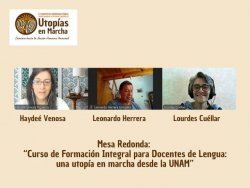 This proposal is a response to the complex personal and social crisis affecting the educational field. Current educational practices offer a space to critically observe the actions of those involved, allowing us to rethink traditional forms of interaction in teaching. In the field of languages, where a well-established and rigid teaching culture persists, a valuable opportunity arises to implement training actions based on the pedagogy of intentionality and education for non-violence.
This proposal is a response to the complex personal and social crisis affecting the educational field. Current educational practices offer a space to critically observe the actions of those involved, allowing us to rethink traditional forms of interaction in teaching. In the field of languages, where a well-established and rigid teaching culture persists, a valuable opportunity arises to implement training actions based on the pedagogy of intentionality and education for non-violence.
This course, designed for language teachers and already approved and in the process of being implemented at the National School of Languages, Linguistics and Translation of UNAM, is inspired by the principles of universal humanism and seeks to enhance ontological and socio-emotional competencies, as well as so-called 21st-century skills. We conceive it as an ongoing utopia because it breaks with traditional teacher training schemes by focusing on the teacher as a person and reaffirms the importance of the human being with an ontological approach. The course design integrates five modules (attention, generational dialogue, environment, good humor, and affectivity), addressing current challenges from a transformative and constructive perspective. It is not limited to traditional teaching techniques but seeks to train teachers as agents of social change capable of generating meaningful learning and contributing to the development of a non-violent and sustainable planetary civilization. Through a participatory methodology that includes seminars, experiential workshops, and pilot projects, it promotes an education that transcends the transmission of knowledge to build a critical and transformative consciousness in educational actors.
This educational proposal not only addresses the multidimensional crisis pointed out by the Symposium but also contributes to the construction of a new educational paradigm that promotes intergenerational dialogue and social reconciliation, generating a profound impact on teaching and learning processes. In this way, this project aligns with the ideals of the Symposium, presenting itself as a path towards a Universal Human Nation founded on respect, diversity, and non-violence.
Haydee Venosa Figueroa, Lourdes Cuellar, Leonardo Herrera Gonzalez. Professors Lourdes Cuéllar and Haydeé Venosa, along with Professor Leonardo Herrera, are language teachers, the first two at ENALLT and Haydeé Venosa at the undergraduate level of the same UNAM. Since 2011, Professors Lourdes Cuéllar and Haydeé Venosa have begun studying the pedagogy of intentionality, offering various workshops, conferences, and courses to date, both within UNAM and in other educational centers, on topics related to this pedagogical proposal (landscape of learning, keys to learning, attention, the experience of thinking, among others). Professor Leonardo Herrera has a solid background in the study of classroom interaction and its impact on meaningful learning activities, including language learning. He also promotes reflection on the role of the integral formation of individuals through artistic and interactive activities, based on critical action and respect for the particularities of individuals who share the responsibility of constructing knowledge in a plural and collaborative manner.
59) Rehuno Salud - Universal and Humanized Care and Support at the End of (physical) Life.
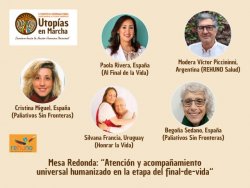 The path towards building a supportive and non-violent society inevitably requires, as its first priority, guaranteeing access to education and comprehensive healthcare services from birth to the end of life for all people on the planet.
The path towards building a supportive and non-violent society inevitably requires, as its first priority, guaranteeing access to education and comprehensive healthcare services from birth to the end of life for all people on the planet.
Within this global paradigm, healthcare based on the principles of so-called "palliative care" has the primary objective of alleviating the physical pain and mental suffering that often accompany individuals and families affected by incurable diseases and who are beginning to go through the final stages of life and subsequent bereavement. Palliative care represents a process of "humanization" of healthcare, surpassing biomedical models that, in practice, tend to neglect the emotional, mental, familial, and social aspects of people and families experiencing these situations.
Although recognized by the World Health Organization (WHO) since 1982, palliative care is still little known to the general public and is not effectively promoted by governments. According to general statistics, only 12% of the world's population is aware of its existence, and only 10% of the people who should receive it actually have access to this type of care.
Various individuals and institutions are dedicated to making the paradigm of comprehensive and humanized end-of-life care known, widespread, and established as an inalienable human right in all countries and corners of the planet.
What are the ongoing projects? What are the main challenges to overcome? What needs to be done for the sustainable growth of these paradigms?
These will be some of the topics that various organizations involved in projects in this area in different countries will address at the round table organized by REHUNO Salud at the 10th International CMEH Symposium.
Rehuno Salud (Humanitarian Health News Network). A network of news, reports, and research focused on the health sector. A group of volunteers from different countries around the world, professionals and/or users of health services, is dedicated to providing a humanized vision of health systems, highlighting both good practices and the shortcomings of the system.
Paola Rivera. Psychologist specializing in psycho-oncology, palliative care, and cognitive neuropsychology. She currently heads the Al Final de la Vida project and the Spanish Network of Resources for Palliative Care and End of Life.
Silvana Francia. Founding member and president of Honrar la Vida. She has participated in numerous training courses in the field of palliative care and non-profit organization management.
Cristina Miguel (Paliativos sin fronteras, Spain).
Begona Sedano (Paliativos sin fronteras, Spain).
Victor Julio Piccininni. Member of the World Center for Humanistic Studies and the Humanist Center of the City of Buenos Aires.
He is part of the Study and Research Groups at the Study and Reflection Park La Reja (Buenos Aires, Argentina).
Member of the Humanist Movement since 1978 and of the Communities of the Message of Silo since 2002.
Co-founder of REHuNO Salud (Humanist Network for Health News), www.rehunosalud.org.
Member of AAMyCP (Argentine Association of Medicine and Palliative Care).
Founder of the "The Art of Accompanying" project (training volunteers for personal and spiritual accompaniment in palliative care and the final moments of life).
Co-founder of "Campus Humanista" (a multidisciplinary team for research and training in the humanization of healthcare processes).
Former member of the Palliative Care Team at Dr. Tornú Hospital (Buenos Aires, Argentina).
Author of various books, articles, and contributions based on the Psychology of New Humanism and its application in specific fields such as human development, learning, spirituality, end-of-life accompaniment, and palliative care.
His research focuses on the study of the development and evolution of consciousness, attentional mechanisms, deep contact and practices with one’s inner world, spirituality, the possibility of transcendence, and the construction of new personal, cultural, and social paradigms.
60) Maite Mompò - Stop International Ecocide.
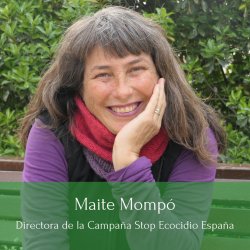 We are an international movement working towards a single goal: to have ECOCIDE recognized as the 5th Crime Against Humanity at the International Criminal Court. ECOCIDE, in the broadest sense, is the massive destruction and devastation of ecosystems, that is, serious harm to nature on a widespread or long-term basis.
We are an international movement working towards a single goal: to have ECOCIDE recognized as the 5th Crime Against Humanity at the International Criminal Court. ECOCIDE, in the broadest sense, is the massive destruction and devastation of ecosystems, that is, serious harm to nature on a widespread or long-term basis.
The path we advocate is to amend the Rome Statute of the International Criminal Court (ICC), the only global mechanism that has direct access to the existing criminal justice systems in its 123 member states.
With over 10 years of collective experience and history in this work, we collaborate with diplomats, politicians, lawyers, business leaders, NGOs, indigenous and religious groups, influential individuals, academic experts, social movements, individuals, and a wide network of allied groups towards this end.
Maite Mompò. Since 2019 she is part of the Stop Ecocide team, being Director of Stop Ecocide in Spanish.
She has dedicated her whole life to human rights, peace and the environment. She has been directly involved in different causes and with several national and international organizations, especially with Amnesty International (she was co-founder of the volunteer group in her hometown and served as spokesperson there for several years) and with Greenpeace (where she served as a volunteer, worker, activist and sailor of its international fleet). As a result of almost a decade aboard the ships of this ecopacifist organization, she became aware of the level of environmental destruction at a planetary level and wrote the book "Rainbow Warriors, Legendary stories from Greenpeace ships", which serves as a tool for dissemination and awareness of the major ecological problems of the last decades worldwide.
Maite has a degree in Law (University of Castilla-La Mancha) and a Specialization Diploma in Ecological Ethics, Sustainability and Environmental Education (Polytechnic University of Valencia). She has spent years giving monothematic lectures on environmental issues and carrying out a program of environmental awareness talks for educational and social centers.
62) Néstor Tato - The Siloist Utopia.
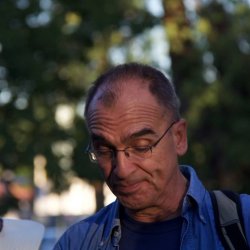 Western culture has rationality and sociability as distinctive traits of the human being, ever since Aristotle's characterization of humans as rational and political animals. However, these traits are also found in various expressions of the animal world. In recent decades, living beings have shifted from being recognized for their ability to move to being recognized for their sensitivity, for being sentient. I believe this is where we can find a distinguishing feature: not only in the complexity of human feelings, but in the fact that the product of this sensitivity, its internal configuration, can be externalized and shaped in the creation of material objects. This sensitivity has shaped and developed over the course of its action in the world, of its way of shaping the world it conceived through its imaginative capacity, the core of human creativity. However, the meaning generated in this way has always been a sense-of, treated as an attribute of the things that surround us, of the different situations in the world. At the opposite extreme was the divine, and many cultivated this mystical sensitivity, elusive in its intangibility and easily externalized, in such a way that this dimension has always been conceived as external to the individual. With his conception of the individual as a psychophysical structure, Silo provided the conceptual basis for situating in its proper place the region of meaning that philosophers of consciousness, William James and Franz Brentano in the 19th century, and Husserl and his phenomenology in the 20th century, illuminated, thus opening the way for existentialism. This region of meaning has its own sensitivity and requires a special sensitivity, which is that "something more" that develops with the Internal Work proposed by the School through the organisms of the Humanist Movement and the Message of Silo. Silo left a new horizon of experience that configures the new territories that Humanity can conquer for its full realization.
Western culture has rationality and sociability as distinctive traits of the human being, ever since Aristotle's characterization of humans as rational and political animals. However, these traits are also found in various expressions of the animal world. In recent decades, living beings have shifted from being recognized for their ability to move to being recognized for their sensitivity, for being sentient. I believe this is where we can find a distinguishing feature: not only in the complexity of human feelings, but in the fact that the product of this sensitivity, its internal configuration, can be externalized and shaped in the creation of material objects. This sensitivity has shaped and developed over the course of its action in the world, of its way of shaping the world it conceived through its imaginative capacity, the core of human creativity. However, the meaning generated in this way has always been a sense-of, treated as an attribute of the things that surround us, of the different situations in the world. At the opposite extreme was the divine, and many cultivated this mystical sensitivity, elusive in its intangibility and easily externalized, in such a way that this dimension has always been conceived as external to the individual. With his conception of the individual as a psychophysical structure, Silo provided the conceptual basis for situating in its proper place the region of meaning that philosophers of consciousness, William James and Franz Brentano in the 19th century, and Husserl and his phenomenology in the 20th century, illuminated, thus opening the way for existentialism. This region of meaning has its own sensitivity and requires a special sensitivity, which is that "something more" that develops with the Internal Work proposed by the School through the organisms of the Humanist Movement and the Message of Silo. Silo left a new horizon of experience that configures the new territories that Humanity can conquer for its full realization.
Néstor Tato. Lawyer, mediator, researcher at the Center for Humanist Studies in Buenos Aires. Author of "The Need for a Savory Ethics", and in collaboration with Clara Serfaty "Background and Guides to Non-Violence", and with Tito de Casas "Silo on Thinking and Method".
64) Alfonso Insuasty - Urban Territorial Peace: mafias, political power and exclusion in Medellín, Colombia.
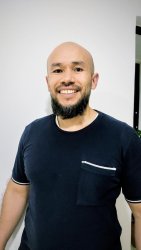 Urban Territorial Peace is an emerging concept that redefines peacebuilding in urban contexts marked by inequality, violence and exclusion.
Urban Territorial Peace is an emerging concept that redefines peacebuilding in urban contexts marked by inequality, violence and exclusion.
In Medellín, Colombia, this perspective is particularly relevant due to the deep socio-economic gaps, the control of mafias linked to political power networks and the implementation of a neoliberal urban development model that perpetuates dispossession, intra-urban displacement and marginalization.
This paper explores how urban dynamics in Medellín reproduce a system of exclusion that is functional to economic and political interests.
The city has been presented as a paradigm of urban innovation, but its urban transformations, led by projects such as the Ayacucho Tramway, the Metro de la 80, the Metro Cable Picacho, Rio Norte, Centro and Sur, among others, have favored the economic elites, while displacing and dispossessing vulnerable communities. At the same time, illegal armed groups, with a paramilitary heritage, consolidate their territorial influence through networks of informal services, extortion and social control, a broad network of criminal services that includes human trafficking, sexual exploitation, "touristification" and even gentrification, integrating themselves into the business model that benefits political and business sectors.
The study combines documentary review, jurisprudential analysis and case studies in Medellín. Three key aspects are highlighted:
* The deepening of urban inequalities by a neoliberal model that prioritizes profitability over citizens' rights.
* Territorial control by mafias and illegal armed actors, which limit effective citizen participation in urban planning.
* The disconnection between peace policies and the real needs of the affected communities.
Medellín represents a paradigmatic case to analyze how Latin American cities face the challenge of building a peace that is not functional to capital, but transformative and participatory.
Alternatives based on the right to the city, social justice and the democratization of the urban model are proposed.
The debate raised seeks to challenge academics, decision-makers and activists interested in dismantling the logics of exclusion and urban dispossession, which consolidate a "development" linked to criminal networks, and in building an urban future based on social justice and territorial equity.
Alfonso Insuasty. PhD and Master's Degree in Thought and Culture for Latin America (IPECAL – Mexico). Professor-Researcher at San Buenaventura University, Medellín; director of the GIDPAD - USB Research Group, Editor of El Ágora USB Journal. Professor in the Master's Degree in Science, Technology and Innovation (ITM). Member of the coordinating team of the Inter-University Network for PEACE REDIPAZ, part of the National Participation Committee of the academic sector, an entity created to promote the participation of society in the ELN Government negotiation.
65) Omar García Sierra Cordero - Life stories. Two adolescents detained in Morelos at the Center for the Execution of Deprivation of Liberty Measures for Adolescents (CEMPLA): Analysis of the social determinants associated with the construction of their life paths.
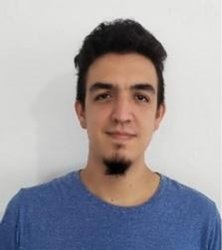 This research focuses on the life stories of two young people who were detained at the Center for the Execution of Deprivation of Liberty Measures for Adolescents (CEMPLA) in Morelos. The main objective is to analyze how social determinants influence the construction of their life paths. For this, a qualitative approach is adopted that includes in-depth interviews and document analysis. This study seeks not only to understand the circumstances that led these young people to detention, but also how their social context, characterized by factors such as violence, poverty and lack of access to education, affects their opportunities for social reintegration and personal development. The findings are expected to provide valuable information to design interventions that address the needs of these adolescents and contribute to their rehabilitation.
This research focuses on the life stories of two young people who were detained at the Center for the Execution of Deprivation of Liberty Measures for Adolescents (CEMPLA) in Morelos. The main objective is to analyze how social determinants influence the construction of their life paths. For this, a qualitative approach is adopted that includes in-depth interviews and document analysis. This study seeks not only to understand the circumstances that led these young people to detention, but also how their social context, characterized by factors such as violence, poverty and lack of access to education, affects their opportunities for social reintegration and personal development. The findings are expected to provide valuable information to design interventions that address the needs of these adolescents and contribute to their rehabilitation.
Omar García Sierra Cordero. He is a professional committed to research and social development. Born in Cuernavaca, Morelos, on 28 February 1988, he has dedicated his career to working on projects related to youth, human rights and community development.
He holds a degree in Psychology from the Universidad Autónoma del Estado de Morelos and is currently pursuing a Master's degree in Regional Studies at the same institution. His academic training is complemented by various diploma courses in areas such as Childhood, Adolescence and Youth, Social Theory for Social Action, Institutional Strengthening and Addictions, Urban Development and Municipal Land Management, among others.
In his professional career, he has worked as Project Coordinator at ACCIONA Transformando Caminos para Ser y Hacer A.C. from 2014 to date. He has coordinated programmes such as Construye-T, teaching-learning workshops, Futbol. Schools of Life. Glorias del Deporte, monitoring projects for defendants released under precautionary measures, and community development projects such as Transformando mi entorno.
In addition to his field experience, he has participated in numerous conferences, symposiums, seminars and workshops, both nationally and internationally. She has presented papers at academic events and has participated in research projects and programme design.
His commitment to society is reflected in his participation in initiatives such as the XI Summer School on Social Mobility, the IX International School of the Ibero-American Network of Postgraduate Studies in Childhood and Youth, and his training as a Human Rights Defender at the Fray Francisco de Vitoria O.P. A.C. Human Rights Centre.
66) Salvador Alvarado Garibaldi - For a just, humane, and civic social integration.
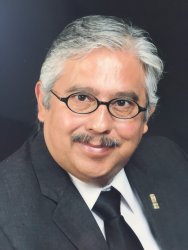 We are a country with unacceptable levels of violence: on average, 83 people are killed every day; in some regions, children are armed as community guards; in the age groups from 15 to 24 years old, from 25 to 34, and from 35 to 44, homicides are the leading cause of death; in the case of children from 5 to 9 years old and adolescents from 10 to 14 years old, sadly, assassinations are the fifth cause of death; and the news daily is a torrent of violence that, sometimes repeatedly, also includes our schools, where in many of them, violence, abuse, and bullying are a common practice. How did we get here? Why? What are we doing wrong? This situation is yet another manifestation of the failure of our education system because the school should be a space for enhancing talent and social commitment, as well as one of the main preventive instruments against violence, ignorance, indifference, boredom, and hedonism. And yet, now in many cases, it is just another vehicle for its reproduction. Why?
We are a country with unacceptable levels of violence: on average, 83 people are killed every day; in some regions, children are armed as community guards; in the age groups from 15 to 24 years old, from 25 to 34, and from 35 to 44, homicides are the leading cause of death; in the case of children from 5 to 9 years old and adolescents from 10 to 14 years old, sadly, assassinations are the fifth cause of death; and the news daily is a torrent of violence that, sometimes repeatedly, also includes our schools, where in many of them, violence, abuse, and bullying are a common practice. How did we get here? Why? What are we doing wrong? This situation is yet another manifestation of the failure of our education system because the school should be a space for enhancing talent and social commitment, as well as one of the main preventive instruments against violence, ignorance, indifference, boredom, and hedonism. And yet, now in many cases, it is just another vehicle for its reproduction. Why?
In this context, we reflect on the basic mechanisms of social integration: education and employment, to which the cultural element is added, to propose a reconfiguration of the social order starting from thinking of the school as a space not only formative, but also and mainly, humanizing and citizen-building (where the teacher plays an essential role in awakening the desire to know of the student and he/she achieves the internalization of the spirit of the law), which in turn is linked to the productive sector in order to harmonize the preparation of labor talent and its prompt, timely, and fair employability.
Salvador Alvarado Garibaldi. Bachelor's and Master's degree in Sociology. PhD in Public Administration. Diploma in Political Ideas and Institutions and in Youth Policies from the Ministry of Education and Culture and the Youth Institute of Spain.
Visiting Professor at the University of Murcia, Spain. He is currently a tenured professor C at ENTS-UNAM, was a University Counselor and is a member of the National System of Researchers (SNI). He has served as advisor to the Secretary General of UNAM; Head of the Youth Studies Center of SEP-CONADE; Secretary of School Support and Development and Secretary General of ENTS-UNAM; as well as Secretary of Institutional Services of CONALEP, among others.
Author of the books: Jóvenes y Drogas (Published by UNAM and PGR), Apuntes para el Análisis de Estado (Ed. Miguel Ángel Porrúa), Desarrollo Ciudadano (high school text, Ediciones BT), Apuntes para una política de juventud (Ed. Orfila) and La “huelga universitaria del milenio”. Elementos para comprender los comportamientos radicales (Ed. Orfila). He is coordinator and co-author of the collective books: Revolución y Estado Mexicano; las promesas del pasado, las deudas del presente (Ed. Miguel Ángel Porrúa) and Garantías individuales y Derechos sociales en el Centenario de la Constitución (Ed. Orfila). He has published several chapters in collective books and articles in various journals on the topics of youth, public policy, political participation and state analysis. Recently (Nov. 2024), he coordinated the book El tiempo de Salvador Alvarado. El ideólogo, legislador y creador de instituciones: 100 años después…, published by Orfila.
67) Cecilia Umaña Cruz, Cecilia Flores Avaria, Douglas Cardoso - Sowing peace and non-violence.
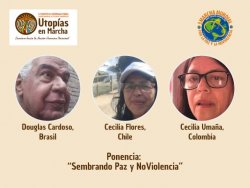 Events such as the 3rd World March for Peace and Non-Violence, in addition to the impact they produce by traveling the planet carrying a message of an open future and a new sensitivity that prioritizes the human being who is supportive and non-violent, have as a consequence networks that are formed around the commitment to good relations between people of different cultures and with actions that point to the continuous development of new social paradigms based on good knowledge for the benefit of life and the joy of fraternal coexistence.
Events such as the 3rd World March for Peace and Non-Violence, in addition to the impact they produce by traveling the planet carrying a message of an open future and a new sensitivity that prioritizes the human being who is supportive and non-violent, have as a consequence networks that are formed around the commitment to good relations between people of different cultures and with actions that point to the continuous development of new social paradigms based on good knowledge for the benefit of life and the joy of fraternal coexistence.
Parallel to the pilgrimage made by the marchers of the base team, a podcast-style radio was organized on YouTube, which transmits much more than news about the march, being a monthly program with content as varied as guided meditations, testimonies of volunteers and, of course, good music.
From the humanist organization World Without Wars and Without Violence also arose an initiative of dialogue between representatives of universities on actions towards a culture of peace and non-violence in the communities within the scope of these universities. This allowed the emergence of networks of universities that worked together to produce psycho-social changes.
The march has a starting point and an endpoint, but the process of building Peace and nonviolent action is a process that will continue from now on.
Cecilia Umaña Cruz. Colombian, she discovered humanism in 1977 and, since she was very young, has dedicated herself to working with neighborhood communities, schools and universities, ancestral peoples and vulnerable communities through workshops and seminars on the culture of non-violence. General Coordinator for Colombia of the World Marches for Peace and Non-Violence 2009-2020, she is currently leading the 2024 March, promoted by the World Without Wars and Without Violence Foundation of which she is a full member. In 2023, the Humanist University Foundation awarded her a recognition for her work in achieving and preserving peace. She obtained a diploma in Philosophy and Humanism at the Technological Corporation of Bogotá. She participated in the workshop presenting Non-Violence to the honorable Members of the Senate of the Republic of Colombia, certified by the University of Rhode Island, Kingston, RI and The Center for Nonviolence and Peace Studies in 2008.
Cecilia Flores Avaria. Chilean, humanist activist who promotes Peace and Non-Violence, by profession an Advisor in Human and Family Relations with a specialization in Prevention and treatment of drugs and alcohol, in recent years has been part of the World coordinating team of the International Association World Without Wars and Without Violence.
Douglas Cardoso. Brazilian, 66 years old. Retired systems analyst. He resides in Itamonte, MG – Brazil. Humanist militant for 42 years. Coordinating activist of the 3MM in Brazil.
68) Federica Fratini, Roberto Kohanoff - The Economy of Giving Towards the Universal Human Nation.
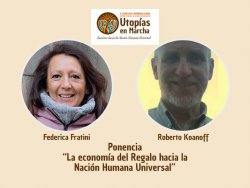 The barter economy does not replace the monetary economy. It is a variant of the myth of money, which maintains the value of products and services within the economistic, capitalist, or socialist system. We propose the "economy of giving," of "giving" our time. It is said that "time is money," but the monetary value assigned to time distorts it. The economy of giving places "our time," our life, not money, at the center. Donating time, which we volunteers practice, is a form of non-economistic personal and social development. It is one of the approaches of Siloism in over 50 years of voluntary social, cultural, political, and spiritual action that completely modifies the perspective of economics because its axis is the meaning of life. The economy of giving is the opposite of the market economy.
The barter economy does not replace the monetary economy. It is a variant of the myth of money, which maintains the value of products and services within the economistic, capitalist, or socialist system. We propose the "economy of giving," of "giving" our time. It is said that "time is money," but the monetary value assigned to time distorts it. The economy of giving places "our time," our life, not money, at the center. Donating time, which we volunteers practice, is a form of non-economistic personal and social development. It is one of the approaches of Siloism in over 50 years of voluntary social, cultural, political, and spiritual action that completely modifies the perspective of economics because its axis is the meaning of life. The economy of giving is the opposite of the market economy.
The "universal human nation" is an intentional construction of a spirituality that includes "reciprocal giving," which grows as an economy of giving in the "proto-nation" that is expressed through non-violent treatment based on the Golden Rule, which says: "When you treat others as you want to be treated, you liberate yourself," by giving what you have learned.
Universalist humanists and Messengers "donate" a philosophy and spirituality in the time we dedicate to learning to "give peace" to others and ourselves.
The economy of giving is the experience of giving Meaning to Life through reciprocal and supportive relationships, counting on the support of those around us with records of peace that money does not provide.
We investigate "concentrating and distributing time" nodes, donating for the well-being of those who want to learn to donate. It is a path from voluntary action in sustainable and healthy communities on the physical, emotional, mental, social, and spiritual levels. With these nodes, we will attempt advanced forms of the economy of giving for the universal human nation, an expression of a supportive and non-violent psychic people, integrating the differences of our landscapes into a common horizon under construction that is underway with the "co-formation of givers" and will take time for the model to develop.
We share this experience of a transforming model from utopia to reality.
One learns to "give" non-violent treatment at www.comunidadesnoviolentas.net, which includes the book "The Golden Rule of Non-violence" for free and a list of time donors.
Topics of our "donation" are meditation, the Principles of Valid Action, well-being ceremonies, ways of connecting with the Internal Force, assistance to the sick and loved ones, protection of children, guidance on the internal path in the Message of Silo.
The volunteer and activist "givers" offer their experience for non-violent and anti-discriminatory education on the political, social, cultural, gender, ethnic, and family levels, including Self-Liberation and the mental, energetic, material, and morphological disciplines.
"We give" the first steps of the economy of giving, anticipating the economy of the psychic people.
Federica Fratini. Doctor in Chemistry, PhD in Cellular and Molecular Biology and Master's in Scientific Communication and Journalism with the thesis « Construction of scientific citizenship ». Researcher at the Italian National Institute of Health since 2006, she has worked in the identification of diagnostic markers and in intercellular communication through extracellular vesicles. In 2024, she moved to the Department of Neurosciences to work in the promotion of integral health in schools through interventions and courses on education in non-violence, and in the implementation of European projects on the prevention and promotion of mental health in children and young people. She participates in the Policy Makers Advisory Board of the European Project Let's Care. Activist of Universalist Humanism since 2001. She has carried out health education and prevention campaigns in Senegal, collaborating with the association Energia per i Diritti Umani and with the Health Commission of the European Humanist Region. She participated in the organization of World Without Wars and Without Violence, organizing courses of active non-violence for adults and in schools and contributing to the organization of each World March for Peace and Non-violence and of the campaign Europe for Peace. In 2011, she created the Center for Humanist Studies « Science and Spirituality » and organizes cycles of conferences entitled « InspiradaMente »; she participates in the association Cortonafriends, which organizes summer camps for international doctoral students on Science, Art, Spirituality, promoting multidisciplinarity and the complex systemic approach, contributes to the Symposia of the World Center of Humanist Studies. Since 2020, she has collaborated with the international organization La Comunidad para el Desarrollo Humano, promoting Education for Non-Violence in schools and throughout the educational community, organizing experiential workshops dedicated to students, teachers and parents, through the projects sponsored by the Municipality of Rome « La estantería de la no violencia », Scuoleinmarcia.it and « Aprender la no violencia para la salud personal y el bienestar social ». Member of the promoting committee of Eirenefest - Book Festival for Peace and Non-Violence, she is mainly involved in the active involvement of schools and educational institutions and is the author of the book « Aprendamos la No Violencia - La práctica de la regla de oro para todas las edades » ed. Multimage 2023.
Roberto Kohanoff. 1945, Argentinian, architect and siloist since 1967. He built an Experimental Meditation Room in 1975 and numerous Study and Reflection Parks since 2005. Master of the Formal discipline. He chairs the Association for Non-Violence. Co-author of books on the subject and participates in the formation of non-violent communities. Promoter of the websites www.espaciosnoviolentos.net and www.comunidadesnoviolentas.net.
69) Juan Porras Pulido - Image: veracity, congruence and depth in social representation.
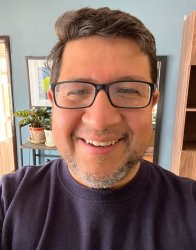 "A picture is worth a thousand words" is a phrase we hear frequently. The image says more than many words, but its function is not strictly communicative: it does not carry with it a literal and translatable message because it is symbolic. In reality, the image powerfully unleashes a series of representations, concepts and interpretations shared socially and crossed by individual experience.
"A picture is worth a thousand words" is a phrase we hear frequently. The image says more than many words, but its function is not strictly communicative: it does not carry with it a literal and translatable message because it is symbolic. In reality, the image powerfully unleashes a series of representations, concepts and interpretations shared socially and crossed by individual experience.
The image, moreover, has communicative and symbolic potential in its formation (in which myths and ideologies can be integrated), but also a dispersive potential, that is, of contradiction, if its intervention in the social environment is inadequate or if the historical conjuncture calls it into question.
In imagining a new panorama of reconciliation, in addition to recognizing the importance of myth for the generation of images, we must ask ourselves about the importance of the emitters, in a program of principles and in action, to generate new congruent and far-reaching symbols. Likewise, we must question ourselves about the forms of textuality in circulation and their appropriation, adaptation or displacement to generate new forms of coexistence, more significant and profound.
In this presentation, I will address some cases of image use that, elaborated with specific purposes, is questioned or enhanced for different objectives. I will place special emphasis on the use of the image in interaction with the text present in social networks, because it is necessary to understand how this form of textuality is directed, from its origins and its communicative logic, to polarization and binary thinking. This understanding is necessary if we wish to generate more authentic communicative forms.
Juan Porras Pulido. He is a Full-Time Tenured Professor A at the National School of Languages, Linguistics and Translation (ENALLT, UNAM) and a member of the National System of Researchers (candidate level). He holds a degree in Graphic Design from the National School of Visual Arts, now the Faculty of Arts and Design; a Master's in Applied Linguistics from the Postgraduate Program in Linguistics and a Doctorate in Political and Social Sciences from the respective postgraduate program of UNAM, in all cases with honorable mention.
He has completed various programs related to curriculum design, use of technologies in education and discourse analysis from a hermeneutic perspective. He has coordinated departmental and institutional projects at ENALLT, in addition to being part of the Semiotics research line at the same school. He has participated in PAPIIT projects of the National University, such as: Analysis and interpretation of power relations in sociocultural manifestations, through the application of hermeneutic methodology and Politics and affections in contexts of violence.
In each of his projects he has published articles and book chapters.
70) Roberto Kohanoff - Golden Rule Workshop: Shaping Non-violent Communities.
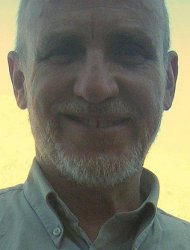 We are humanist teams building with the Golden Rule enthusiastic, kind and non-violent atmospheres from a vision of the human process opposed to the paradigm of the system that proposes to end violence: With more violence!
We are humanist teams building with the Golden Rule enthusiastic, kind and non-violent atmospheres from a vision of the human process opposed to the paradigm of the system that proposes to end violence: With more violence!
The new paradigm says "let's learn to treat others as we want to be treated". The record of the sacred in others and in ourselves guides us to humanize the Earth, discarding violence as a tool and working against all forms of discrimination, inequality and injustice. With the Golden Rule we build networks of intentional communities that, starting with a few, by resonance will overcome violence building a universal human nation.
We seek to generate networks of intentional non-violent communities reconciling and integrating diversity of ages, cultures, beliefs and socioeconomic strata from a consciousness inspired by the Golden Rule.
Roberto Kohanoff. Born in Argentina in 1945, he has been an architect and siloist since 1967. He built the Experimental Meditation Room and numerous Parks of Study and Reflection. He is a Master of the Formal discipline. He chairs the Association for Non-Violence. He is co-author of books on the subject and participates in the formation of non-violent communities. He is co-author of www.espaciosnoviolentos.net and www.comunidadesnoviolentas.net
71) Valerio Colombo, Humanist Party Italy - The "Coordinating State", a Humanist Revolution.
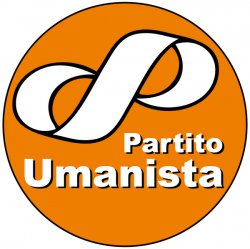 The current situation of neoliberal economicist totalitarianism is bringing back to the forefront the issue of the sovereignty of national states, as opposed to the cosmopolitanism of globalization.
The current situation of neoliberal economicist totalitarianism is bringing back to the forefront the issue of the sovereignty of national states, as opposed to the cosmopolitanism of globalization.
From a humanist point of view, obviously, what must be claimed is popular sovereignty, which at the present time has the possibility of manifesting itself legally exclusively within states.
But is it a "return to something that existed before" or, on the contrary, is the question that of claiming the aspiration to a true sovereignty of the people that has never been fully achieved?
There is no doubt that in the second half of the 20th century great strides forward were made in this direction, above all from the juridical-institutional point of view, with the appearance of Constitutions like the Italian one that have revolutionized, at least at the level of principle, the relationship between the People and the State.
However, it is evident that the momentum of that change which, immediately after the Second World War, also led to the promulgation of the Universal Declaration of Human Rights, was almost immediately curbed, to stop completely towards the end of the 1970s.
The end of the 20th century was marked by a process of apparent triumph of neoliberalism as the most extreme manifestation of that capitalism which, after having fought for almost two centuries with the socialist antagonist, ended, at least apparently, by prevailing definitively.
Moreover, the beginning of the new millennium has been characterized by increasing waves of "crises" that have explicitly shown how false was the promise of well-being and freedom for all with which the triumphant faction tried to legitimize its reasons.
Inequality is exceeding the levels prior to the start of the industrial revolution, financial speculation out of control dominates the international apparatuses constituting itself as a dictatorial para-state and the productive economic forces, moved only by the increase of profit, push towards the ecological collapse of the planet... Not to mention the social impact that the technological revolution of artificial intelligence may have, if it is left only in the hands of the market.
It is evident that a form of organization of the collectivity that can take back the legal and executive reins is more necessary than ever. If it is true that there seem to be no alternatives other than to start again from the sovereignty of the national states, which are currently the only entity with democratic characteristics that can contrast the globalist para-state, it is opportune to reflect on what are the elements suitable to the situation of the 21st century that must be injected as soon as possible into these organizations to make them a starting point for obtaining, for the first time in history, true popular sovereignty.
Surely we can find in the Constitutions of the second half of the 20th century, first and foremost in the Italian one, and in the Universal Declaration of Human Rights the seeds which, if developed appropriately, can start this process of revolt of the collectivity.
Our aspiration is to arrive at a "Coordinating State" that can be configured as a true collective intelligence directly participated in by all, in a real democracy articulated in a complex way with mechanisms of direct, participatory and representative democracy.
It is a model in which the State, as an instrument of self-regulation of the community at its various levels, can coordinate the market and its actors, eliminating information asymmetries and, above all, defining and regulating a diffuse articulation of the concept of property, which does not exclude forms of private property and not even capital as an element of the economy, but which regulates them in such a way that they are not prevalent with respect to the common interest.
Valerio Colombo - Humanist Party Italy. Valerio Colombo is member of the Humanist Party, Italy. Since 1984, the Humanist Party has participated in many local elections, within electoral coalitions with other progressive forces or directly with its own lists. It participated with its own symbol in the European Elections of 1999 and the Regional Elections of 2000, as well as in countless initiatives (referendums, proposals for laws of popular initiative, committees and coordination, etc.).
In the last decade, it has deepened the study of issues such as money, sovereignty, direct democracy and has privileged the activity of relations with different political realities, but united by the radical criticism of the ordoliberal and authoritarian imprint of the European Union, encouraging dialogue and convergence between them and giving impetus to the birth of a political and cultural sphere that promotes a profound change of paradigms as an evolutionary response to today's global crisis.
72) Silvia Nocera, Zaira Zafarana, Marco Billeci - What if the army was abolished?
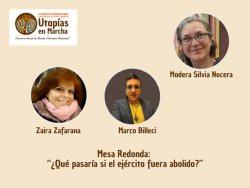 The current situation floods us with war bulletins. In addition to the wars that are under the spotlight of the Western media, such as the conflict between Russia and Ukraine and the now indefinable bloodbath in Gaza, there are other active battlegrounds in the world, such as in Myanmar or Sudan, but much less documented. Not to mention the latent ones like the one between Kosovo and Serbia, always ready to return "hot", like the case of Syria in recent times. It does not seem that the human being on this planet is able to escape the logic of war: according to the January 2024 data from ACLED (Armed Conflict Location & Event Data) in the last 5 years there was an increase of 22% of violent conflicts, of 40% compared to 2020. We are witnessing the rise in spending by countries dedicated to armaments, the invocation of the creation of a European army, the return of the idea of compulsory conscription.
The current situation floods us with war bulletins. In addition to the wars that are under the spotlight of the Western media, such as the conflict between Russia and Ukraine and the now indefinable bloodbath in Gaza, there are other active battlegrounds in the world, such as in Myanmar or Sudan, but much less documented. Not to mention the latent ones like the one between Kosovo and Serbia, always ready to return "hot", like the case of Syria in recent times. It does not seem that the human being on this planet is able to escape the logic of war: according to the January 2024 data from ACLED (Armed Conflict Location & Event Data) in the last 5 years there was an increase of 22% of violent conflicts, of 40% compared to 2020. We are witnessing the rise in spending by countries dedicated to armaments, the invocation of the creation of a European army, the return of the idea of compulsory conscription.
But there is not only this scenario. Against every belligerent tendency stands Costa Rica, a country that has renounced even armed defense since the 1940s of the last century, and another twenty countries, including Andorra and Iceland in Europe, albeit with very different motivations and situations. The number of conscientious objectors and deserters fleeing their own countries at war is also growing, seeking protection and asylum because they do not want to take up arms and for this they risk persecution and imprisonment in their countries of origin.
Is a world without wars and without armies a childish utopia or a north star that can still guide humans of the twenty-first century?
Silo, an Argentine thinker and spiritual guide for many contemporary humanists, in his famous text "Letters to my friends" written between the end of the 80s and the beginning of the 90s of the 1900s, foresaw the collapse of the Western democratic system with a wealth of detail. While the collapse of the Soviet bloc outlined a new geopolitical structure in which the absolute victory seemed to be assigned to the West, Silo wondered about the role of the armed forces in moments of social and cultural change, about the root of sovereignty and the legitimacy of governments and the obedience owed to them.
He foresaw what we are already experiencing, the accelerated destructuring of all the organizations that from the social sphere has already reached that of the relations between people and up to the internal world of each human being to whom today is asked to redefine himself in a convincing way, or to disappear. According to his vision, only two forces would remain standing with their human and technological structures: the banks (finance) and the armies. With whom to dialogue to project a future of peace?
Zaira Zafarana. Currently works for the International Fellowship of Reconciliation (IFOR) - an international peace movement founded in 1914 - coordinating IFOR's work at the United Nations and a specific research and reporting project on the right to conscientious objection to military service worldwide. She collaborates with the European Bureau for Conscientious Objection for which she contributed to the drafting of the 2021 report on conscientious objection and is a member of an international advisory group for a project on conscientious objection in Turkey together with War Resisters' International and the Quaker office at the United Nations. She was a member of the bureau of the International Coordination for a Culture of Peace and Nonviolence. She has coordinated various international projects on peace issues, including "2014 Sarajevo Peace event", "Discover Peace in Europe", creating the Turin Peace Itinerary together with the MIR Turin office working group. Over the years she has collaborated in projects of education for peace and non-violence, workshops on non-violence and cooperative games at MIr and Mn and the Centro Studi Sereno Regis in Turin. She studied International Sciences and Human Rights at the University of Turin, with a thesis on the UN Decade for a Culture of Peace and Non-Violence and subsequently a specialization on reconciliation processes and case studies drawn from the history of IFOR. She approached MIR Italia through a Civil Service project on "The power of active non-violence"; years later she joined the National Council of MIR, serving in various roles including head of international relations and national vice president.
Marco Billeci. Married and father of two children, is a Chief Marshal of the CC, since July 2022 in absolute retirement for health reasons, due to the after-effects of Covid-19 contracted in the exercise of his profession. Born in Palermo on July 27, 1985, he grew up in Capaci (PA) until his enlistment in the Carabinieri Corps, a career that lasted almost 18 years. Animated by a deep sense of justice in which honesty, dignity, ethics and morality are lived as invaluable values, he continued to be involved in social issues even after his absolute retirement, being among the founding members of two APS: the Coordinamento 15 Ottobre - C15O and CulturAzione. Graduated in 2008 in Florence in Political Science, a lifelong lover of reading and writing, he published in 2023 for the publishing house Il cuscino di stelle, his first work ZONA ROSSA: Usi obbedir tacendo, which recounts the events experienced firsthand at the outbreak of the pandemic in 2020. Finally, he manages and curates his own Telegram channel.
Silvia Nocera. Born in Florence in 1968. Freelance writer and translator. Always committed to overcoming personal and social suffering. Head of Italian development of the association Centro delle Culture until 2007, since 2009 Messenger of Silo. She is the author of some texts published by Multimage APS from 2018 to the present, she manages and curates her own blog silvianocera.net.
73) Javier E. Belda Olleta - About Singularity.
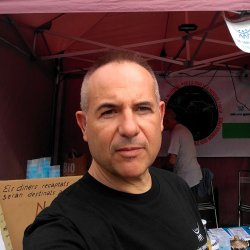 The consumer press is echoing the idea of Singularity. The theme is usually treated as a merely technological issue, based on AI that, apparently, will end up dominating and surpassing human capabilities.
The consumer press is echoing the idea of Singularity. The theme is usually treated as a merely technological issue, based on AI that, apparently, will end up dominating and surpassing human capabilities.
In our humanist studies on the matter, we consider that Singularity will be a stage of human history, which arises from a paradox consisting of the fact that great evolutionary, or involutionary, leaps happen all together at the same temporal instant. This is undoubtedly something very disconcerting.
Several analysts have set a date: between 2027 and 2045, based on the equations of statistical mathematics.
At first glance, what we see is that we are already in the time of Singularity. Everyone perceives that everything is uncertain, unstable and changing in an increasingly accelerated way.
However, a perception of uncertainty about the future does not necessarily represent the translation of the statement of Megahistory scholars, which says: Singularity is the total crisis of an evolutionary path of 4,000 million years.
Such magnitude puts us in difficulty. Either it is an exaggeration, or it belongs to a scale that we cannot understand. Not for this reason are we going to disregard the affirmation, knowing that it is based on well-elaborated studies and validated interdisciplinarily. In its favor we will say that this type of scale - unrepresentable - we often see it in the sciences. In the physics of our time, for example, we find an infinity of dimensional concepts that escape our representation and, nevertheless, we know them to be true. The criterion of certainty is given by experimentation and because many of them are compatible with other postulates of physics. No human being with an extraordinary capacity is needed to have an internal record of scientific theories.
But it is not our interest to exclude the human from the representation on the developments of Singularity. On the contrary, we focus the issue by granting the human a universal protagonism.
To this end, we imagine a great leap comparable to thousands of years (but not millions), so that we can feel ourselves protagonists of our historical time. This position distances us from the uncertain magnitude of Singularity, but allows us the comparison with our vital and historical scale, avoiding alienating ourselves with respect to the great processes.
In favor of this look, we maintain that it will be necessary to carry out the same trick in multiple aspects that surpass human capabilities. If we do not do it, the future could present itself as something foreign to the human. In that future there would be no more beauty, mystery or identity, since empirically they would not be substantial questions, since there would always be some explanation to fragment the forms of being of consciousness. But the question is: Would this be correct? Do we have a complete measure of human functioning and capabilities? Evidently not, therefore, it is a mistake to self-exclude ourselves. Moreover, we appeal to the structural form consciousness-world to go on constructing a new look.
This leads us to a propositional question related to the meaning of life. If we do not want to remain confused, we must assume the protagonism in the midst of the great change.
Javier E. Belda Olleta. 58 years old, born in Barcelona, Spain. Member of the Humanist Institute for Systemic Forecasting. Independent columnist for various alternative media on issues of geopolitical analysis. Currently directs the communication project Nuevos Paradigmas (New Paradigms), which she disseminates through the Telegram platform.
75) Marcela Rosana Dìaz - The Inclusive School, as a Social Necessity.
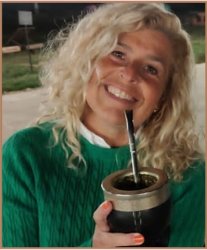 Currently, schools of different levels and modalities receive students with different disabilities, which creates a challenge for the entire school community. This reality calls on each member to care for diversity, but, nevertheless, answers are not given to students with or without disabilities by the traditional common school, and not even in the special school do all enrollees receive an answer. This leads to a significant problem, since, despite the professional reflection of teachers on their own practices and the training to achieve real and effective inclusion, it is not possible for students to reach the certifiable learning necessary to guarantee their autonomy and social performance. In this way, the inclusive school is transformed into a utopia, but in progress, because although the school today only integrates, revealing everything that still needs to be learned, daily all its actors work to achieve true inclusion.
Currently, schools of different levels and modalities receive students with different disabilities, which creates a challenge for the entire school community. This reality calls on each member to care for diversity, but, nevertheless, answers are not given to students with or without disabilities by the traditional common school, and not even in the special school do all enrollees receive an answer. This leads to a significant problem, since, despite the professional reflection of teachers on their own practices and the training to achieve real and effective inclusion, it is not possible for students to reach the certifiable learning necessary to guarantee their autonomy and social performance. In this way, the inclusive school is transformed into a utopia, but in progress, because although the school today only integrates, revealing everything that still needs to be learned, daily all its actors work to achieve true inclusion.
It is necessary, in the face of this statement, a national, provincial and municipal government, which work in close collaboration with the school reality, firstly, recognizing and making visible that there is a diversity in the school, in which people with and without disabilities are found who have difficulties in achieving as a fundamental tool for life, education, but a quality education, an essential right of every inhabitant of our country. In this current socio-cultural context, where neoliberal policies, far from guaranteeing rights, violate them, THE SCHOOL must be broader and more plural, for all and everyone, without segregation or exclusion, on the contrary, it must work to be INCLUSIVE and guarantor of rights from this transformation.
In this framework, from my role as an educator, with a trajectory of more than thirty years in teaching and today in a role of hierarchy, having a deep clarity in the National Education Law (2006) and its solid postulates of sustaining an inclusive education for all and everyone, it is that I work daily so that students receive attention to diversity, applying the Universal Design for Learning, guaranteeing accessibility, eliminating the barriers that society itself sets, thus and only thus the school prepares for the autonomy and independence of girls, boys and adolescents, allowing society to see itself enriched and evolve.
The inclusive school is not a postulation, but a necessity, in which we have worked for many years, we are in full work and evolution, in which all of us are part. our utopia is in progress.
Marcela Rosana Dìaz. Primary School Teacher with a 34-year trajectory in teaching, 18 years in Directorial Management and 2 years as a Sectional Technical Inspector of Primary Education. Resilient, Revolutionary, Supportive, Fighter of life, Defender of social and educational justice, where the other is the key to individual and social liberation. Defender of Humanizing Education, where inclusion is the key to the development of values, focusing on the formation of the heart, reason and spirit.
"Education is a right and the school must be open - Inclusive and guarantee the same".
76) Public Opinion Commission PH Chile - Workshop Experience in Public Communication Work (Collective Format).
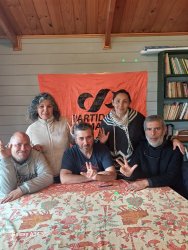 We consider this collective initiative as a concrete attempt to move towards a Utopia, in the way of placement and management of the necessary humanist opinion on current social, economic, and political issues, both at the local, national, and international levels.
We consider this collective initiative as a concrete attempt to move towards a Utopia, in the way of placement and management of the necessary humanist opinion on current social, economic, and political issues, both at the local, national, and international levels.
The initiative affirms the possibility of collective work, joint intelligence, and collaboration in these commented tasks.
In such affirmation, the participants, the organization, the means and channels of dissemination, and by extension society, are placed in a work situation that addresses the possibility of work between different people with their diversities, converging in a common direction. In this sense, we recognize it as a practical effort to overcome discrimination, intolerance, including tolerance, to explore the experiences of valuing diversity, associated with exalting collectivism, parity, and horizontality, through the differentiation of functions in the tasks specific to the initiative.
The collaborative initiative has achieved a permanence of 120 weeks publishing current affairs articles (a little over 2 years since 2022) and is working to achieve a support team to improve reach by opening contacts with media editors. We have occasional requests to comment on relevant events in Chile from the TV RT newsroom in Spanish. And we seek support to translate the production into other formats for digital media and social networks.
Our proposal is to set up an online workshop, which allows interested participants to experience this experience during the CMEH symposium.
The general scheme of the dynamics is as follows: An open space is convened to which any participant who wants to contribute is welcome. They analyze the contingency (from a previous list taken from the press) with the themes on which they want to pronounce themselves (one or more work groups can be activated), they set the point of interest that derives from agreeing on a general outline of the article (Title, subtitles and conclusion), they distribute the research of concrete data that support the opinion (from a compilation available for each theme), they define a way out of the denounced situation and each participant writes a part (subtitle) in a Drive Word document. Finally, they carry out the articulation of the article (it can be an advanced or ready draft). In plenary, they are read and their approval or rejection is voted on, by simple majority. The image or photograph to present the article is selected (from free bases). And the future submission for its publication in Pressenza is committed.
77) Tino Prieto Aguilar - Rádio Guiniguada: "Voices that Transform: For a Universal Human Nation".
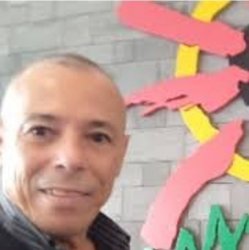 Introduction. The program opens with a captivating melody and a warm, stimulating voice that invites reflection: "Welcome to Voices that Transform, the space where words open paths to a just, supportive, and diverse society. Today, as part of the 10th Symposium Utopias in Motion, we gather from all corners of the world to build a Universal Human Nation."
Introduction. The program opens with a captivating melody and a warm, stimulating voice that invites reflection: "Welcome to Voices that Transform, the space where words open paths to a just, supportive, and diverse society. Today, as part of the 10th Symposium Utopias in Motion, we gather from all corners of the world to build a Universal Human Nation."
Theme 1: Free and Supportive Communities. The first segment will focus on the stories of communities that have taken charge of transforming their environment. Through interviews, we will explore how grassroots initiatives are promoting equity, participation, and the defense of fundamental rights.
Theme 2: Communication as a Tool for Transformation. Starting with the history of Rádio Guiniguada, we will explore how alternative and community media are a pillar for building new realities. We will include archival audio that shows how radio can be a voice for the voiceless, especially in contexts of exclusion.
Utopian Stories: First-Person Accounts. This space will include testimonies from people from different parts of the world who, through local actions, contribute to a global vision. In an intimate tone, inspiring stories will be presented, from farmers defending their land to young people leading movements against climate change.
Participatory Panel: Building the Universal Human Nation. Through digital platforms, we will open the microphones to the public, present or virtual, so that they can share ideas, questions, and proposals for the construction of this collective utopia. This will be an interactive space where all voices count.
Inspiring Closing. The program will conclude with reflections from all participants and a clear invitation: "Let us continue to dream and act. Because the Universal Human Nation begins with each step, with each voice, with each act of solidarity."
This program will be broadcast live and will be available online for download. In this way, we seek to reach all corners of the world with ideas and proposals, amplifying the spirit of transformation that drives this Symposium.
This proposal combines reflection, participation, and action, in line with the ethical and transformative commitment that characterizes Rádio Guiniguada Onda Libre y Comunitaria.
Tino Prieto Aguilar. Las Palmas de Gran Canaria (1956). Siloist, universalist humanist, social communicator, radio producer and broadcaster and amateur poet on blogs and social networks.
In the early 1980s, he took part in La Comunidad para el Desarrollo Humano (The Community for Human Development) and since ‘84 in the Humanist Party, in “86 in Futuro Verde (Green Future), since ”87 in the opening and development of Communication Centres in the neighbourhoods of Las Palmas de Gran Canaria and in the activities of Los Verdes Ecologistas (The Green Ecologists) in Albacete and Valencia.
He took part in the 1st Humanist International in Florence (1989), in Operatives in Paris and in the Humanist Centre of Cultures in Morocco and Senegal.
He took part in the Beñesmer Commission (2007) to study the Amazigh people of North Africa, originally from the Canary Islands.
He travelled to the Days of Spiritual Inspiration with the presence of Silo (2007) and to the end of the first final of the First World March for Peace and Non-Violence (2010), both at the Park of Study and Reflection in Punta de Vacas (Argentina).
He is vice-president of the Humanist Centre of Cultures (Federation of the Convergence of Cultures).
Member of the Parque de Estudio y Reflexión Gran Canaria Association (2018).
He joined the Centre for Humanist Studies of the Americas (CEHA) in the summer of 2022, studying the sacredness of the ‘Amazigh Culture’ and in December 2024 she will present the ‘Saharawi Culture’.In the field of media, he develops a programme on Radio Guiniguada, Onda Libre y Comunitaria (1994), a radio workshop at the Suárez Naranjo Civic Centre (2013), the radio station ‘Con Convivencia’ (2013), the station ‘Contigo Somos Radio’ on Zeno(punto)fm, collaborates with ArenalEs Tu Radio and Radio Humanista CEHA.
78) Luís Filipe Guerra - Towards Political Spirituality.
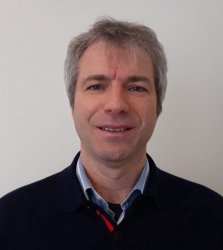 In 1978, the French philosopher Michel Foucault, commenting on the Iranian revolution, spoke of the political spirituality that inspired it, defining it as the will to be someone different from who one is.
In 1978, the French philosopher Michel Foucault, commenting on the Iranian revolution, spoke of the political spirituality that inspired it, defining it as the will to be someone different from who one is.
Since then, numerous attempts to affirm a political project based on spirituality, albeit religious in nature, have been occurring not only in the Muslim world, both Shia and Sunni, but also in the West and other cultural regions.
In all these cases, the spirituality that ends up being imposed is a dogmatic spirituality, based on old moral codes, of a conservative matrix, which ends up hindering the initial transformative impulse.
However, this does not negate the need that peoples currently feel for a civilizational refoundation, which breaks with the dominant political and economic model, and which seeks to be nourished by a new spirituality.
This relationship between spirituality and civilizational model was already identified by Arnold Toynbee in his historiography.
What will be the civilizational project that is being developed at this moment?
What characteristics will this new spirituality have?
How can this spirituality nurture and guide social construction?
What political and economic model can be erected based on this transformative impulse?
Luís Filipe Guerra. 58 years old, he was born in S. João da Madeira and resides in Vila Nova de Gaia (Portugal). He is the father of two children. He has a degree in Law, a postgraduate degree in Legal-Business Sciences and in Human Rights, and currently works as a judge in the Administrative and Tax Courts, after previous professional experiences as a lawyer, conflict mediator and peace judge. He has participated in the Humanist Movement since 1986, and is currently a member of its organization World Center of Humanist Studies. In that capacity, he is one of the promoters of the Minho Study and Reflection Park, in Póvoa de Lanhoso, and helped found the non-governmental organization Observatory of Human Rights, based in Porto, which he chaired until the end of last year.
79) Diego Geng Montoya, Doris Balvin Diaz - Water Management in Basins with Mining Presence: Committing to a Relationship of Respect for Life
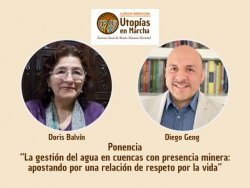 This presentation analyzes the experiences of water governance in mining contexts in southern Peru, specifically in the regions of Tacna and Moquegua, proposing a territorial management model that transcends the current dynamics of conflict and prioritizes processes of dialogue and reconciliation between the various actors. Based on a historical analysis of mining settlements in the region and their impacts on water management, key elements are identified for building a new relationship between mining and local communities that responds to the urgency of the climate and ecological crises.
This presentation analyzes the experiences of water governance in mining contexts in southern Peru, specifically in the regions of Tacna and Moquegua, proposing a territorial management model that transcends the current dynamics of conflict and prioritizes processes of dialogue and reconciliation between the various actors. Based on a historical analysis of mining settlements in the region and their impacts on water management, key elements are identified for building a new relationship between mining and local communities that responds to the urgency of the climate and ecological crises.
A strategy is proposed to scale up the lessons learned implemented in mining-community relations in Ilo at the local level and Arequipa at the regional level to apply them simultaneously in the territorial space of the Tacna and Moquegua regions, given the existing dispute between the regional community and the mining companies located in the headwaters of the watersheds in these regions.
Diego Geng Montoya. Holds a PhD in Sociology and a Master's degree in Water Resources Management from the Pontifical Catholic University of Peru. Professor in the Department of Social Sciences - Sociology Section of the Pontifical Catholic University of Peru.
With experience and interest in topics related to natural resource management, particularly watershed management. My background includes work on research and development projects related to urban and rural poverty, agriculture, water management, and risk.Doris Balvin Diaz. Lawyer, graduate of the Pontifical Catholic University of Peru. She holds a Master's degree in Urban Environmental Management from the Wageningen University of Agriculture and the Institute for Housing and Urban Development Studies – Netherlands. She is a specialist in environmental management with extensive experience in managing sustainable local development in areas with a mining presence.
80) Francisco Calzada Lemus - Suicidal Ideation in Female University Students.
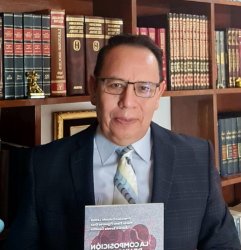 Addressing suicide in young people, particularly women, requires a comprehensive approach that combines public awareness, education, the availability of mental health resources, but above all, it must be addressed from a gender perspective, considering the complex intersections of social, psychological, and cultural factors that impact women's mental health.
Addressing suicide in young people, particularly women, requires a comprehensive approach that combines public awareness, education, the availability of mental health resources, but above all, it must be addressed from a gender perspective, considering the complex intersections of social, psychological, and cultural factors that impact women's mental health.
Social expectations, the pressure to meet certain standards of academic, professional, or personal success can generate stress, as well as anxiety. Constant comparison on social media platforms can affect self-esteem and contribute to feelings of inadequacy. Experiences of bullying, whether in person or online, can have a profound impact on the mental health of young people. Similarly, moments of transition, such as starting university or entering the workforce, can generate uncertainty, so high academic expectations and competition can create significant stress among young people.
Therefore, it is important to address these challenges from a comprehensive perspective to provide young people with adequate resources and support to strengthen their emotional resilience, as it is essential that society, educational institutions, and health services collaborate to create safe and supportive environments. Early identification of signs of emotional distress and appropriate intervention can make a difference in the lives of those facing these struggles.
This justification is based on the recognition that women often face unique pressures, from expectations of traditional roles to experiences of gender-based violence, that contribute to their emotional vulnerability. By recognizing and addressing the unique pressures faced by women, from role expectations to gender-based violence, we can not only save lives but also build a more equitable and understanding environment that promotes long-term mental health and well-being for young women.
This approach aims not only to address the obvious symptoms but also to tackle the deep roots of economic, educational, and health inequalities that can influence women's mental health. By considering the specificity of these experiences, we seek to create preventive strategies that not only save lives but also promote a more equitable and understanding environment for women, seeking to prevent suicide and cultivating a future where women feel supported, empowered, and free from the unfair burdens that affect their mental health.
Francisco Calzada Lemus. Graduate in Social Work, Professor at the National School of Social Work at the National Autonomous University of Mexico ENTS-UNAM, with a Master's and Doctoral studies in Public Administration and a PhD candidate in Social Work.
81) Roccio Vila, Jacky Mera, Marcela Latorre, Tatiana De Barelli, Isabelle Comte - Educational Utopias in Action.
Many of us are critical of the educational system that mistreats the entire community.
There are utopian alternatives that are beginning to emerge with a new sensitivity.
From a universal humanistic perspective, each of the speakers invites us to open our eyes and hearts to original practices and meaningful experiences.
Let's talk about reconciliation, with Roccio Vila.
Reconciliation is a necessary path that we must travel in all areas of human development. Considering reconciliation as a learning process, and therefore, as a deep knowledge, transforms it into an instrument capable of transforming difficult experiences into meaningful learning. In this way, it opens the future towards unifying and integrating actions. In this sense, focusing education from a perspective of reconciliation poses new challenges for us. It is necessary to discuss these challenges considering the personal, social, and cultural experiences related to this process.
Let's talk about presence, consciousness, and learning, based on Gattegno's pedagogical approach, with Isabelle Comte.
Let's talk about handwriting as a trace of identity and culture, an expression of our deep humanity, with Tatiana De Barelli.
Let's talk about the care of educators, as people who fulfill the role of being links in the human process, with Marcela Latorre.
Let's talk about the Right to a non-violent education. Human beings are curious by nature, knowing how the psyche and the "human team" in general work from the point of view of learning allows us to understand and design humanizing educational programs that respect the process of each stage and its needs, with Jacky Mera.
From Peru, Chile, France, Belgium, or Italy, we will see that the perspective is common and convergent: towards a universal human nation.
Roccio Vila, Jacky Mera, Marcela Latorre, Tatiana De Barelli, Isabelle Comte.
82) Centro Cultural Comunitario Espacio Ailanto - The Future is Today.
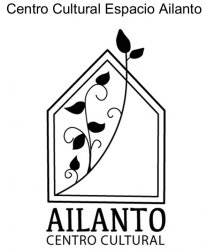 Five-voice presentation with audiovisual projection
Five-voice presentation with audiovisual projection
Introduction. "How can a housing project be transformed into an engine of social change through the active promotion of community culture?"
Speaker 1: Presents the context of Spazio Ailanto (origin, mission, vision), highlighting the 11 years of community work.
Video projection: Video of the space, its transformation, activities, and events that represent the diversity of the community.
Testimony Block. Interactive format: "How can a community transform and influence a neighborhood, a city, a country, and the world?"
This question is given to the audience, and they are given a few minutes to answer. The answers are collected.
Speaker 2: Comments on how a housing project not only has an impact and promotes the self-management of a need, such as housing, but also transforms the social, cultural, and artistic life of those who choose to organize themselves and be managers of a project like Spazio Ailanto.
Speaker 3: Explains how community culture and the arts act as vehicles for social change, citing specific examples of the space's influence on the lives of residents of Barrio Yungay, artists, and other communities.
Speaker 4: Practical examples of how horizontality and self-management are built, promoting inclusion, the convergence of perspectives, and agreements.
Connection with the audience.
Speaker 5: "How do you think your lifestyle would change if you were an active part of a cultural project that promotes community?"
Group dynamics: Divides the audience into small groups to discuss how a cultural project can change the way we live, sharing ideas for action or examples of positive community experiences. After 5 minutes, the groups briefly share with the rest of the audience.
Symbolic closure. We listen to an audio that portrays Ailanto, and the speakers hang many photographs that depict fragments of the project's memory and the answers that the audience gave at the beginning of the testimony block.
Centro Cultural Comunitario Espacio Ailanto.
83) Redes Universitarias - Graphic workshop.
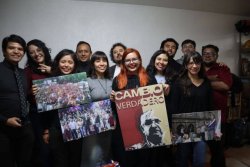 In the context of the Symposium "Utopias in March: Paths Towards the Universal Human Nation", we propose the development of three workshops focused on graphic and artistic expressions: a) stencil, b) stickers and c) engraving, each designed to explore the possibilities of graphic art as a vehicle to build alternatives of peace, hope and utopia.
In the context of the Symposium "Utopias in March: Paths Towards the Universal Human Nation", we propose the development of three workshops focused on graphic and artistic expressions: a) stencil, b) stickers and c) engraving, each designed to explore the possibilities of graphic art as a vehicle to build alternatives of peace, hope and utopia.
The purpose of these workshops is not only technical but also deeply symbolic. Through art, we seek to reconstruct collective narratives that transcend the crisis of inequality, violence and dehumanization we are experiencing. Each activity will encourage reflection on the central values of humanism, such as equality, solidarity and non-violence, inviting participants to project their highest aspirations in tangible and meaningful ways. In general, the workshops aim to generate a transformative experience where art becomes a bridge to utopia.
In particular, through the stencil workshop, participants will learn from conceptual design to the printing technique on different surfaces such as walls, textiles and paper, generating direct messages through pieces that can be replicated and expand their reach. Through the stickers workshop, participants will be able to conceptualize and produce stickers that carry messages to everyday spaces, so that micro-interventions of public space are generated. Finally, in the engraving workshop, due to its artisanal and detailed character, attendees will be able to reflect on memory and permanence.
At the end of the activities, the attendees will have collectively produced a series of messages that will be a visual expression of the construction of utopias in progress. These works will reflect both the concerns and the aspirations of the participants.
We firmly believe that art and culture are powerful means to imagine and build new worlds, transforming what seems impossible into an achievable reality. These workshops seek to foster collective creativity and dialogue through graphic expression and serve as a bridge between critical reflection and creative action.
Redes Universitarias. The team was founded in 2006 during the so-called "Plantón de Reforma", in which the social movement legitimately demonstrated with the slogan, "Vote for Vote, Ballot Box by Ballot Box", which demanded transparency in the presidential elections, against the electoral fraud that occurred that year and which ended up imposing Felipe Calderon Hinojosa.
Since its origin, Redes Universitarias has identified itself as a left-wing group, always consistent with the peaceful struggle and the construction of a better country for the people of Mexico.
Redes Universitarias was founded by Karina Mendoza and Manuel Otero, academics and researchers at UNAM; it is a group that over 18 years has been formed by young high school, undergraduate and graduate students.
One of the main tasks of Redes Universitarias has been to promote the critical analysis of issues of national interest within educational centers, considering that these spaces should not be disconnected from the reality of the country.
Redes Universitarias has been present in the struggle for the defense of national sovereignty, against the privatization of natural resources such as oil.
It has also walked the streets brigading, doing cultural activities, promoting the creation of study circles and marching for the just causes of our country because it has a deep commitment to national transformation.
85) Erika Anselin Avila, Edith Barrera Chavira - Operational Problems Faced by High Schools in Dealing with Cases of Sexual Violence.
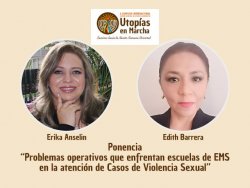 Sexual violence in high schools represents an alarming problem that seriously affects the safety, well-being, and integral development of students and educational communities. This article examines, from an interdisciplinary perspective, the operational limitations that schools face when managing these cases. Critical obstacles are identified, such as the combination of the superior right of adolescents to education and the safeguarding of educational communities, delays in the resolution of legal proceedings, the normalization of violence in homes, and the prolonged emotional impact on victims and their families. Furthermore, the consequences of inaction or late intervention are analyzed, which perpetuate impunity and undermine trust in the school environment. Finally, strategies aimed at strengthening the response capacity of schools are proposed, prioritizing the comprehensive protection of victims, the implementation of effective protocols, and the promotion of efficient inter-institutional collaboration. The objective is to guarantee safe educational environments, free of violence and committed to human rights through a process of peace and active non-violence.
Sexual violence in high schools represents an alarming problem that seriously affects the safety, well-being, and integral development of students and educational communities. This article examines, from an interdisciplinary perspective, the operational limitations that schools face when managing these cases. Critical obstacles are identified, such as the combination of the superior right of adolescents to education and the safeguarding of educational communities, delays in the resolution of legal proceedings, the normalization of violence in homes, and the prolonged emotional impact on victims and their families. Furthermore, the consequences of inaction or late intervention are analyzed, which perpetuate impunity and undermine trust in the school environment. Finally, strategies aimed at strengthening the response capacity of schools are proposed, prioritizing the comprehensive protection of victims, the implementation of effective protocols, and the promotion of efficient inter-institutional collaboration. The objective is to guarantee safe educational environments, free of violence and committed to human rights through a process of peace and active non-violence.
Erika Anselin Avila. Public Accountant from UNAM, with postgraduate studies in Barcelona, Spain. With more than 10 years of management experience at DGETI, including Director and Academic Subdirector at CETIS No. 5. Writer of articles in National and International journals and congresses. Certified by Conocer in First Contact Face-to-Face Care for Women Victims of Gender Violence. With more than two years of experience in projects related to sexual violence in DGETI. Currently a member of the Sexual Violence Victims Assistance Unit at CETIS No. 2 of CDMX and a member of REDIPAL.
Edith Barrera Chavira. Member of REDIPAL. Public Administrator from UNAM. Master's Degree in Innovation Management of Information and Communication Technologies from INFOTEC; certified professor at DGETI, with Master's Degree and Specializations in: Virtual Learning Environments from OEA/Virtual Educa/University of Panama, Republic of Panama and Teaching Competencies from UPN. She was a researcher at the Center for Social and Opinion Studies CESOP of the Chamber of Deputies of Mexico.
86) Mesias Antonio Guevara Amasifuen - How Cajamarca faced the fearsome COVID-19.
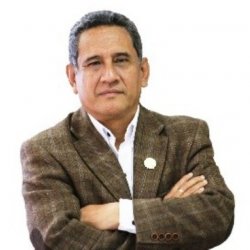 At the end of 2019, from Wuhan, a Chinese province, a dark shadow moved worldwide generating death and pain. The news media reported a virus called Covid-19 that was causing a pandemic. The political debate and suspicion were immediate, some said that Covid-19 was created in a laboratory as part of a biological war, others, that it was part of a strategy of certain power groups to control population growth.
At the end of 2019, from Wuhan, a Chinese province, a dark shadow moved worldwide generating death and pain. The news media reported a virus called Covid-19 that was causing a pandemic. The political debate and suspicion were immediate, some said that Covid-19 was created in a laboratory as part of a biological war, others, that it was part of a strategy of certain power groups to control population growth.
Whatever the reason or circumstances that gave rise to this dark apparition, humanity was not prepared to face it, there was uncertainty and ignorance. The most advanced health systems in Europe, Asia and the USA collapsed, becoming precarious and insufficient. The arrival in our country was imminent, therefore, it was not long before the president of the republic Martín Vizcarra through national chains announced the arrival in our country of Covid-19.
Our public and private health systems became more precarious than they were. In November 2019, President Vizcarra had dissolved the Congress of the Republic after the president of the Council of Ministers, Salvador Del Solar, had raised a vote of confidence. This generated deep wounds in a political sector especially in those who have always considered themselves "umus sumus" of Peruvian politics, this led to the holding of complementary elections to elect congressmen whose objective was to conclude the mandate of the dissolved ones, this electoral process was carried out in January 2020.
The majority of the elected congressmen arrived very spirited and emboldened agitated by their personal appetites and by the narrowness of their mandate. Even with a thirst for revenge, to such an extent that they caused the dismissal of Vizcarra. This unheard-of action was registered a few months before the holding of the General Elections, the presidential change in an irresponsible way aggravated the control of the health crisis. The complementary congressmen took office in the fortnight of March, they assumed their position in an uncertain scenario caused by the pandemic, they had to change face-to-face meetings for virtual ones. The sessions in the Hemicycle had to be postponed.
This is how we began the odyssey to face the pandemic in our region, a region with about one and a half million inhabitants, with 13 provinces with very different and dissimilar customs, defined by their geographical space.
In this document we seek to capture what we experienced and the actions we took during the pandemic, especially in the first wave as the formation of the regional fence and the strengthening of our health system. We pay a fair tribute to the people of Cajamarca for having acted with stoicism and courage, who, despite the misfortune caused by the pandemic and the deep political crisis, were never demoralized, on the contrary, they worked with strength and conviction, to such an extent that during the period 2019 - 2022, the Cajamarca region ceased to be among the five least competitive regions, being the one that most improved its position in competitiveness, was the one that grew the most in export and in the region with less anemia.
There are peoples who in their DNA have the energy, the drive, the spirituality and the conviction to build their own historical destiny, evoking their glorious past, feeling proud of their traditions, customs and natural resources. That people is the Cajamarca region, to whom I express my sincere gratitude for allowing me to work for its engrandizement. I invoke the Almighty to fill them with blessings and never allow the flame of hope they harbor in their hearts to be extinguished.
Mesias Antonio Guevara Amasifuen. Peruvian Senior Executive. With solid experience in leading multinational companies in technological solutions. Extensive knowledge of the structure of the State and public policies. Teaching experience in public and private universities. Focused on obtaining successful results through managerial leadership, motivation and goal setting. Ability to analyse, make decisions and manage personnel.
87) Ana Paula Otero Campo, Sergio Centeno García, Nadxielli Morales Siller, Jacqueline Zapata - Education, Poetics of the Spirit (of Divine Love).
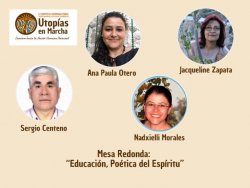 This Proposal brings together a set of papers that derive from educational-poetic-contemplative investi-creations (woven in the DOCTORATE IN POETIC EDUCATION of HUNAB KU, Center for Poetic-Educational Studies, Querétaro, Mx). Investi-creations from which possibilities -educational- open up that paint a horizon from which it can be glimpsed that corresponding to the dignity of the goodness of life of those who give meaning to the task of educating -children, young people, teachers, is possible. And this, by poetic-cosmic justice, through an education that is wisdom that is born from the heart (from the clean, transparent, pure heart; full of peace, of the protagonists of the task), a poetic-contemplative education that is in tune with the Spirit of the Earth -in which we walk, we move, we exist, we live. An education cultivated in and for the flourishing of the Spirit -of A/more (the eternally real) the in/visible, in/audible, im/palpable; the indescribable, that which has no name -the unnameable-, the principle of heaven and earth, the ineffable.
This Proposal brings together a set of papers that derive from educational-poetic-contemplative investi-creations (woven in the DOCTORATE IN POETIC EDUCATION of HUNAB KU, Center for Poetic-Educational Studies, Querétaro, Mx). Investi-creations from which possibilities -educational- open up that paint a horizon from which it can be glimpsed that corresponding to the dignity of the goodness of life of those who give meaning to the task of educating -children, young people, teachers, is possible. And this, by poetic-cosmic justice, through an education that is wisdom that is born from the heart (from the clean, transparent, pure heart; full of peace, of the protagonists of the task), a poetic-contemplative education that is in tune with the Spirit of the Earth -in which we walk, we move, we exist, we live. An education cultivated in and for the flourishing of the Spirit -of A/more (the eternally real) the in/visible, in/audible, im/palpable; the indescribable, that which has no name -the unnameable-, the principle of heaven and earth, the ineffable.
Ana Paula Otero Campo. Psychologist, Master in Educational Creation and Doctor in Poetic Education. Creator of the Pedagogy of Awakening. Co-Founder of the Human Horizon project. Master in topics of consciousness and human flourishing. Co-creator of community projects.
Sergio Centeno García. Doctor in Poetic Education (by HUNAB KU, Centro de Estudios Poético-Educativos, Querétaro, Mx.), Master's Degree and Bachelor's Degree in Philosophy (UAQ), Specialist in Formal Logic. Professor at the Univ. Aut. de Querétaro, Mx.
Nadxielli Morales Siller. Doctor in Poetic Education, Master in Communication and Bachelor's Degree in Journalism and Communication. She worked for more than 10 years as a journalist and producer in local news media; since 2005 she has been a professor in different public and private spaces. She is currently a teacher, project collaborator and coordinator of an educational program at the Amazcala Campus of the Autonomous University of Querétaro.
Jacqueline Zapata.
88) Haim Omer - Nonviolent Resistance: an Approach to Positive Authority for Teachers and Parents.
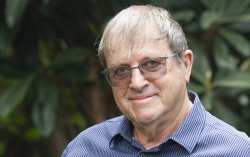 We know that today parents and teachers have an authority crisis. The authority of the past is no longer pleasing to us. We do not want an authority based on force, distance and an absolute hierarchy between educators and students. Therefore, it is necessary to define an authority acceptable to us and our educational values. The new authority is based on nonviolent resistance and is characterized by presence, self-control and the support of family, friends and teachers.
We know that today parents and teachers have an authority crisis. The authority of the past is no longer pleasing to us. We do not want an authority based on force, distance and an absolute hierarchy between educators and students. Therefore, it is necessary to define an authority acceptable to us and our educational values. The new authority is based on nonviolent resistance and is characterized by presence, self-control and the support of family, friends and teachers.
This approach has proven effective in reducing violence, chaos, self-destructive behaviors and escalation processes in the family and at school. Also symptoms of anxiety, obsessive-compulsive disorder, attention deficit and hyperactivity disorder, screen addiction and others are alleviated through parental therapy with this approach. In recent years, our program for the prevention of adolescent suicide has won national awards in the Netherlands and Israel.
Haim Omer. Founder of NVR (non-violent resistance), as an approach to parents, schools and communities. Emeritus professor at the School of Psychological Sciences at Tel-Aviv University. His parents survived the Holocaust and emigrated to Brazil, where Haim was born in 1949. He lives in Israel since 1967.
Author of eleven books (translated into 12 languages) and over eighty academic articles. His best known books are:
"Non-violent resistance: A new approach to violent and self-destructive children" (Cambridge University Press, 2004)
"The new authority: Family, school and community" (Cambridge University Press, 2011)
"Parental vigilant care: A guide for clinicians and caretakers" (Routledge, 2017)
"The psychology of demonization" (with Nahi Alon, Lawrence Erlbaum 2006 – the book was graced with a preface by the Dalai Lama)
"Treating child and adolescent anxiety: A guide for caregivers" (with Eli Lebowitz, Wiley, 2013).
He has developed the model of Non-Violent Resistance and The New Authority in its application to families, schools and communities. The model aims at strengthening parents and teachers by strictly non-violent and non-escalating means. He has published many studies on the method and its applications with parents of children with externalizing disorders, anxiety disorders, juvenile delinquency, teen-drivers, violence against siblings, prevention of computer and smartphone abuse, child-to-parent violence, foster parents and school refusal. There have been five international conferences devoted to the method (Greenwich, Antwerp, Munich, Malmo and Tel-Aviv; the sixth will be Held at Linz, Austria, in 2020). Haim is married and has five children: Anat, Yonatan, the author Mike Omer, the painter Noam Omer and Yael. He dedicated one of his books to "my five children, who taught me all I know about parental helplessness".
90) Massimo S. Russo - From the Utopia of Artificial Intelligence: Towards a New Vision of the Future.
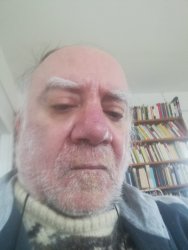 The communication considers the tool of Artificial Intelligence as a potential opportunity capable of proposing a new social system. The affirmation of the generative potential of AI is analyzed in perspective in relation to the possibilities of developing interventions capable of revolutionizing the way of life and the quality of life itself. We reflect in particular on how the affirmation of AI constitutes a real challenge in a utopian perspective. The focus is particularly on how AI requires the need to redefine human values, starting from the meaning to be assigned to the human being itself and its role, in a world increasingly "governed" by the presence of the artificial in the form of an "infinite" intelligence that goes beyond the human and tends to surpass it.
The communication considers the tool of Artificial Intelligence as a potential opportunity capable of proposing a new social system. The affirmation of the generative potential of AI is analyzed in perspective in relation to the possibilities of developing interventions capable of revolutionizing the way of life and the quality of life itself. We reflect in particular on how the affirmation of AI constitutes a real challenge in a utopian perspective. The focus is particularly on how AI requires the need to redefine human values, starting from the meaning to be assigned to the human being itself and its role, in a world increasingly "governed" by the presence of the artificial in the form of an "infinite" intelligence that goes beyond the human and tends to surpass it.
The reflection will focus above all on how to use AI ethically and responsibly, in its capacity to develop advanced knowledge, capable of accelerating scientific discoveries and technological applications. The questions concern the relationship with AI for what it represents and will represent in the possibility of improving the quality of life at various levels, from the ability to optimize the use of natural resources and reduce human impact on the environment. In this context, the need for a multidisciplinary reflection is stimulated to prepare society to live with AI and be able to share it on the plane of inclusion. If Utopia is historically configured as the representation of a perfect ideal system to which one aspires, AI - in proposing to make it concrete - must be understood and proposed starting from educational practice, in the form of inclusive learning.
In the conclusions, it is underlined how it must be taken into account that AI, in increasingly constituting an opportunity and an added value, must be governed with extreme wisdom to avoid that it can escape control and end up supporting disturbing dystopian scenarios and endanger nature and the human species.
Massimo S. Russo He has been a researcher at the University of Urbino Carlo Bo since 2000, where he teaches sociology of leisure and sociology of education. He deals with the institutionalization of sociology, with a specific interest in young people and new technologies in relation to leisure time. He has published numerous essays and articles on topics such as the soundscape, leisure and education, as well as editing volumes on food literacy and applied sociology. He collaborates with the online magazine "Giro di vite" where he has a column on leisure time.
91) Andrea Billau, Olivier Turquet - A Spirituality Suited to the Times.
Andrea Billau and Olivier Turquet, respectively author and postfator of the essay "The New Creators. Our Destiny of Liberation from Tragicity", starting from Silo's writings on the human being's need for transcendence, to give full meaning to one's existence, will propose a metaphysical description of the divine figure suited to the times we live in: times in which, having failed the twentieth-century search for ideologies of paradise on earth, atheism is configured as the prevalence of scientism and the search for only economic well-being that "throw the baby out with the bathwater" and that is, in addition to rejecting the theocratic dimension of classical Western religions, exclude from our vital dimension the presence of spirituality.
This situation is the daughter, albeit degenerate, of a secular culture that in modernity has interpreted human reality in a restrictive way, even if the theoretical motivations of the critique of pre-modern theology took as a starting point valid reasons for indignation about the presence of evil in the world, which, not being able to be attributed to a good God, questioned the fundamental premises.
In the book you can find regarding these arguments the proposal of a metaphysical answer different from that of the so-called Theodicy of revealed religion, which does not hold up to an examination of critical reason, which can allow the same secular culture to reconcile with spirituality, for a comprehensive humanistic culture that offers an alternative to the lack of common value references, which leads to the absolute subjectivization of one's own truths opposed to those of others and therefore to the inevitable conflict that always takes on more violent forms of affirmation, where war is cleared as a possible solution to human disputes.
In the conclusions it is underlined how it must be taken into account that AI, in increasingly constituting an opportunity and an added value, must be governed with extreme wisdom to avoid that it can escape control and end up supporting disturbing dystopian scenarios and endanger nature and the human species.
Andrea Billau. A journalist for Radio Radicale, rhe eceived the “Acquaformosa che accoglie” award in 2020 for his journalistic commitment to issues of immigration and anti-racism. In the philosophical-religious field he has written: Searching for Another God. The Tragic Condition of Existence and Open Religion, Apollo edizioni, 2020 and For a New Universalism. The Contribution of Religiosity to Secular Culture, edited by Andrea Billau, Castelvecchi, 2023. The New Creators. Our Destiny of Liberation from Tragicity, Multimage 2024.
Olivier Turquet. Coordinator of the editorial area of Multimage, journalist for Pressenza and educator writes prefaces and postfaces, entries for Humanipedia, the Humanist Encyclopedia. He has published with Multimage The Great Ones Never Understand Anything on Their Own, Interviews to Change the World, Communicating Nonviolence with Nonviolence and, under the pseudonym of Gandalf Il viola, Diverse, an Anthology in Movement.
92) Ricardo Arias - The TERA local development project.
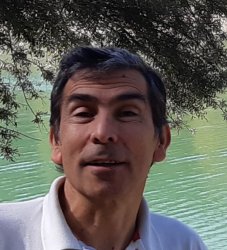 THE QUESTION: In a context of climate crisis and nuclear crisis, what can we do? What response, applied to a territory, to give at this moment?
THE QUESTION: In a context of climate crisis and nuclear crisis, what can we do? What response, applied to a territory, to give at this moment?
This experimentation and this presentation are part of my journey of Reconciliation with the theme of economy and with the theme of Non-violence. And it is to verify, once again, that the problem is not in the knife, but in how it is used.
The association TERA 'Tous Ensemble vers un Revenu d’Autonomie' (All together towards an Autonomy Income) exists for 10 years.
TERA is a project of territorial development that intends to create a cooperative ecosystem to relocate 85% of the vital production (food, housing, energy, water, transport) for its inhabitants, reducing their ecological footprint, and valuing this production in local citizen currency, issued through an autonomy income.
Each one will receive an autonomy income,
… this autonomy income materializes 85% in Local Citizen Currency - the wealth irrigates the territory and supports local development and collectivities;
… this autonomy income is guaranteed in a sustainable way by a wealth produced locally and that satisfies the primarily local necessities, respecting Nature and Humans.
For it to work, a key element of this experimentation is the Local Citizen Currency. The quantity of local currency in circulation is backed by the same quantity in euros in a savings account at an ethical bank, thus guaranteeing the value that the local currency and/or the exchange 1 euro = 1 bee. Moreover, for each euro saved, the ethical bank invests in projects of ecological production. The local currency is intended to circulate and not to be kept.
The local currency is conceived as a ballot, a distributed vote. But as money is rare you cannot vote much because there are not many ballots, and then they put people to work to get ballots. With money, I can vote for the company that I choose. There is no limit in quantity. So, the meaning of the circulation of the local currency is to materialize that the wealth remains in the territory for the maximum time possible.
The TERA action zone is the region of a radius of 30 kilometers around the village of Tournon d’Agenais, France. It is a Rural Revitalization Zone ZRR: municipalities with economic, social and demographic difficulties.
Ricardo Arias. He lives in France. For more than 25 years he has been a militant of New Humanism. A citizen journalist, Ricardo coordinates the French-speaking office of Pressenza, striving to contribute to overcoming violence through a journalism focused on peace and non-violence.
93) Roberto Innocenti - Geopolitical, Psychosocial Impact on the Exploitation of the Human Being and the Environment of the "Artificial Intelligence" Industry and How to Change Course.
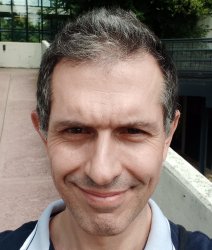 We will delve into how, when we talk about AI, we must necessarily not only consider the part that concerns machine learning, statistics, the algorithmic and mathematical side, but we must necessarily "realize" its material base, that is, the immense data centers that compose it, the entire chain, that is, a huge Industry, with all its compartments and strategic sectors of application, from mining, energy supply, water consumption, poorly paid and alienating work to make it function, up to the objectives of intelligence, control, military and geopolitical. We will reveal how the Artificial Intelligence industry reflects and reinforces existing systems of power and inequality.
We will delve into how, when we talk about AI, we must necessarily not only consider the part that concerns machine learning, statistics, the algorithmic and mathematical side, but we must necessarily "realize" its material base, that is, the immense data centers that compose it, the entire chain, that is, a huge Industry, with all its compartments and strategic sectors of application, from mining, energy supply, water consumption, poorly paid and alienating work to make it function, up to the objectives of intelligence, control, military and geopolitical. We will reveal how the Artificial Intelligence industry reflects and reinforces existing systems of power and inequality.
We will deal with demystifying the marketing of AI by delving into the theme of intelligence, consciousness, intentionality and the mechanisms of AI.
We will retrace the various phases of development of this technology which is fueled by the privatization of the commons, continuing on an old political and economic trend of extraction and exploitation to obtain profit, control and power.
We will retrace how, for example, in the field of image recognition, the formation of the database for AI has necessarily been arbitrary classification activities which is intrinsically a political act that reproduces a moral and a scale of values, often corresponding to Western colonialism. We will retrace how the databases have often been extracted from people with videos, photos, audio recordings and other without their consent, without these extractive processes being examined by ethical committees that have assessed the impact on the communities and human beings source of such extraction. Furthermore, we will see how this data contains biases and classified arbitrarily and that without scientific basis feed AI that are sold highly reliable for intelligence purposes or other and instead lead to discriminate certain human groups and to serious and fallacious consequences.
We will also delve into the ideological and mythological basis that pervades the financiers and champions of this industry.
We will talk about the commodification of the capacity of thought and the need for a new critique of technology, which is currently conveyed as something that has taken this turn and could not take another path, as something that does not start from interests and political choices, something to which it is inevitable to adapt, when in fact it is "informatics of the domain".
We will talk about experiences in the world of rejection and disobedience to this informatics of the domain. We will share various critical and propositional contributions from various authors and experts in the sector, as well as the experiences of critical militancy of various organizations ranging from those that for decades have been dealing with "free software" to those of Research Institutes on AI independent of the AI industry.
We will explore some proposals for democratization of informatics and so-called "Artificial Intelligence" and on the basis of what values and myths.
Roberto Innocenti. Responsible for the theme “Technology for improving the living conditions of mankind” at the European Humanist Forum in 2008 in Milan and 2018 in Madrid, scholar of ethics in technology and AI in a study group of the Humanist Party, activist and ambassador of Open Hardware and free software. Professionally mentor and IT tech leader expert in Cloud infrastructures, DevOps and software design. Student of Philosophy.
94) Loredana Cici - Is Restorative Justice a Cultural Revolution?
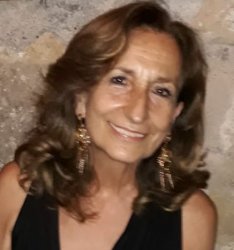 With the recent reform of the criminal procedure, the so-called "Cartabia Reform", restorative justice has also been regulated in Italy (Legislative Decree No. 150/2022), following numerous experiments carried out over the past thirty years and partial national and European regulatory interventions that have taken place in the meantime.
With the recent reform of the criminal procedure, the so-called "Cartabia Reform", restorative justice has also been regulated in Italy (Legislative Decree No. 150/2022), following numerous experiments carried out over the past thirty years and partial national and European regulatory interventions that have taken place in the meantime.
This is an innovative procedure complementary to the criminal procedure but based on requirements diametrically opposed to those of the retributive penalty, the central axis of the penal code. The restorative justice program - which is accessed by the will of the victim and the perpetrator of the crime - aims in fact to promote the meeting and dialogue between the victim and the perpetrator of the crime, overcoming the logic of retaliation, with the intention of removing the suffering, the feeling of injustice, the desire for revenge, which accompany the crime.
The debate aroused by this innovation has been intense and lively, interspersed with voices of applause and criticism, and has highlighted the difficulties of implementation, corroborated moreover by the low recourse to the institute detected by statistics.
Without going into the technicalities of the new legislation, we focus on the capacity of the institute to contribute to overcoming revenge, a connotation not only of the penal discipline, but of the institutional, social and individual structures in general, at least in the West.
The difficulty of justice operators to resort to a procedure that escapes the experience and legal culture in which they have been trained and with which they continue to have to operate in all cases other than restorative justice, and therefore the need for specific training, seems evident.
But deepening the analysis to the very roots of revenge, which clearly inspires the penal system, one comes to recognize that it permeates the culture and, consequently, the very structure of the entire Western system, as well as the mental form of the individuals who are part of it. The "overcoming" of revenge requires the recognition of one's own "revengeful" mental form, an arduous task because it calls into question one's entire culture, but essential.
In conclusion, restorative justice is or aims to be effectively a cultural revolution, but overcoming revenge requires a "psychological" revolution. The current world situation, with the intensification of acts of retaliation capable of shaking consciences, could foster a deeper reflection on violence and revenge, as a stimulus to the "psychological" revolution.
Loredana Cici. Born in Rome in 1950, she currently lives between Naples and Attigliano. With a legal background, she has held numerous positions of responsibility in the public administration, including: Head of the Studies Office of the Ministry of Industry, Head of the Documentation Office of the Presidency of the Council of Ministers, Head of the Legislative Office of the President of the Campania Region, Administrative Director of the National Cancer Institute Foundation Pascale. She has collaborated in parallel with the chair of Administrative Law of the University La Sapienza in Rome, publishing numerous essays and monographs in legal journals.
She has adhered since her beginnings in Italy (1973) to the ideas of Universalist Humanism, actively contributing to the development of the Humanist Movement in Italy and abroad. Among the founders of the Italian Humanist Party, she has been a candidate in numerous elections of the Italian Parliament and the Municipality of Rome and has held the position of President of the Humanist International.
Since 2002, the year in which Silo (Mario Rodríguez Cobos, Spanish-Argentine, founder of universalist humanism) entrusted "The Message of Silo" to his disciples, she has dedicated herself to its diffusion, also forming a Message Community in the Spanish Quarters of Naples.
She was responsible for the construction of the Park of Study and Reflection of Attigliano, coordinating the team of volunteers who, starting to work in 2005, overcoming technical, legal and economic difficulties, managed to inaugurate the Park on May 4, 2008.
She continues to deal with the Park, actively participating in the Commission that takes care of its maintenance and development.
96) Rodrigo Parada Romero - Non-violence: A Path Towards Social Transformation. The Case of the Colombia Non-violent Corporation.
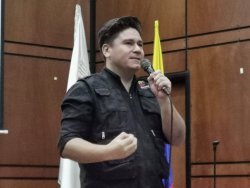 Non-violence, far from being passivity, is an active philosophy that seeks to transform society through peaceful means. This presentation will explore the philosophical foundations of Non-violence, from its historical roots to its development as a powerful instrument for social change.
Non-violence, far from being passivity, is an active philosophy that seeks to transform society through peaceful means. This presentation will explore the philosophical foundations of Non-violence, from its historical roots to its development as a powerful instrument for social change.
We will take a journey through the main thinkers and movements that have contributed to the construction of this philosophy, highlighting the legacy of figures such as Mahatma Gandhi and Martin Luther King Jr. We will analyze how these leaders managed to mobilize the masses and challenge oppressive systems without resorting to violence.
In the second part of the presentation, we will focus on the experience of Colombia Non-violent in Colombia. Through a retrospective look at its 24-year history, we will show how the corporation has applied the principles of Non-violence in its daily work, contributing to the construction of a more just and equitable social fabric.
We will present concrete cases that illustrate how non-violence has been an effective tool to resolve conflicts, promote reconciliation and build relationships based on respect and dignity.
Finally, we will reflect on the role of Non-violence in the contemporary world and on the challenges that this philosophy faces in a globalized and violence-marked context.
Rodrigo Parada Romero. He holds a degree in Philosophy and Pedagogy from the Pontificia Bolivariana University and is the founder of the Colombia Noviolenta Corporation, established in 2000. He has worked as a speaker on Non-violence at the national and international level in various educational, social and business contexts. He has been an advisor to mayors and international institutions on issues of Non-violence and peace. He has led national projects on this philosophy of life. He created and developed the Non-violence schools in the 20 districts of Bogotá and developed the Youth and School Network of Non-violence in the city of Medellín. Creator of the Triptych Methodology for training in Non-violence. Creator and singer of the musical group Kerajú with which he performs Non-violence concerts in the country. As an activist on issues of Non-violence and Peace, he was part of the coordinating team of the World March of Non-violence and Peace that traveled from Colombia to Argentina through 5 Latin American countries carrying the message of Non-violence.
97) Gonzalo García-Huidobro - Foundations and Necessity of a Psychology for All.
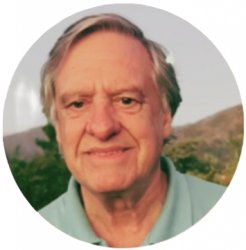 In the world for over 50 years, more food and medicine has been produced than is necessary for the entire world population, what we need across the planet, we all want peace and there are wars everywhere, we love nature but we destroy it, and so with almost everything that is important. Our incoherence is almost total. It is evident that something substantial is failing in us, in our psyche.
In the world for over 50 years, more food and medicine has been produced than is necessary for the entire world population, what we need across the planet, we all want peace and there are wars everywhere, we love nature but we destroy it, and so with almost everything that is important. Our incoherence is almost total. It is evident that something substantial is failing in us, in our psyche.
Starting with a brief history of psychology, which integrates all of human history and not just so-called scientific psychology, which is recent, it is interesting to show how this history is finely tied to the evolutionary possibilities of the species.
The current moment presents us with at least three situations of need for a response that can provide new perspectives, conceptions, criteria and techniques that a Psychology for All would intend to embody.
On the one hand, the current moment sees people overloaded with stimuli that have to do with their survival, but also with an infinity of irrelevant and stupefying information, as part of a sinister design of social control. In this situation, having a look and a tool that allows to "escape" from this alienating network, is of great interest to these individuals and to the species.
On the other hand, psychology has become part of the available resources, but only for a few, being inaccessible to the majority. And for the minority that can access it, it has been transformed into a tool for specialists, leaving practically the entire population outside its sphere of influence. Even worse, the psychology that this minority accesses is restricted to the therapeutic field, of problems or mental illnesses.
Finally, if we consider the evolutionary moment of humanity, of its psyche and consciousness, we will see that it is in a moment of procedural crisis, a moment where consciousness must make a qualitative leap to generate the behaviors that distance the species from all present and future danger and straighten the trajectory towards an evolutionary direction.
In these circumstances, the need for a psychology that is transformed into a look and a tool accessible to all, is fundamental for the individual development of each person and of the social whole, in the context in which each individual life develops in a social whole on which these individual lives depend.
Therefore, if the psyche is in charge of the relations between the individual and his environment - today mostly social - the existence or creation of a psychology that watches over both the individuals and the environment of these people is indispensable.
We have then a psychology that deals with the physical and social environment, the space where these lives develop, but also a temporal dimension, which places these lives at the point of the human process and the issues that are at stake for the species.
A Psychology for all could not start from a theory, because that would imply an adherence to the principles of that theory, and would no longer be for all, imposing an ideological discrimination.
Therefore, a Psychology for all would be fundamentally existential, starting from the own experience of the "existents", "practitioners", from the experiential records and their phenomenological description.
A first difficulty that would arise for this Psychology, would be that of the training on the look that prevails today, accustomed to looking at the world but not the "internal world", what happens inside the human psyche. A clear example of this is that the psychologies of greater diffusion, only recently have discovered the internal senses of the psyche, while only now they begin to conceive the response centers in humans, and are surprised to discover that humans have emotions and emotional intelligence. The confusion between sensation and perception, or between sensation and emotion, is common in psychological descriptions, since the responses of the psychism are not yet studied, except in its illness or difficulty.
The nonexistence of a model or schema of the psychism is a greater difficulty, since it responds to partial conceptions of life, of the psyche and of consciousness, based on theories about these, all in frank failure and questioning.
98) Julieta N. Aranibar - How Can Science and Technology Contribute to Building a More Just, Peaceful, and Sustainable World?
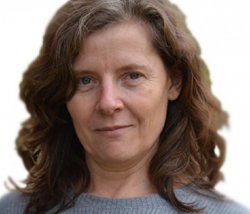 On behalf of the Faculty of Exact and Natural Sciences, I will address how science and technology can contribute to building a more just, peaceful, and sustainable world. However, if the production of knowledge and technological development are not accompanied by humanistic values, science itself can achieve opposite goals, as history has shown. I will present examples of scientific advances, which can be included in the curricular spaces of the FCEN's degree courses, and their uses for peace or for war, for equity or segregation, for human well-being or dependence. From nuclear weapons, whose development led to an era of fear and mass destruction, to surveillance technologies that violate human rights, we see how scientific progress can be distorted when humanistic principles are neglected.
On behalf of the Faculty of Exact and Natural Sciences, I will address how science and technology can contribute to building a more just, peaceful, and sustainable world. However, if the production of knowledge and technological development are not accompanied by humanistic values, science itself can achieve opposite goals, as history has shown. I will present examples of scientific advances, which can be included in the curricular spaces of the FCEN's degree courses, and their uses for peace or for war, for equity or segregation, for human well-being or dependence. From nuclear weapons, whose development led to an era of fear and mass destruction, to surveillance technologies that violate human rights, we see how scientific progress can be distorted when humanistic principles are neglected.
So, we ask ourselves, how can we guide the development of science and technology towards human dignity, mutual respect, and commitment to the common good? How do we train researchers, teachers, who put their knowledge at the service of the good of our planet and our species? And, on the other hand, should we do it?
How, we who have the enormous responsibility of leading institutions, do we promote altruism, tolerance, empathy, cooperation, towards all members of our species, and others who inhabit the planet, instead of competition, the differentiation of restricted groups that generate segregation and indifference towards others? What strategies can we develop to broaden the scope of cooperative behaviors, which generate all kinds of positive responses among those who practice it?
I hope to be able to provide ideas and examples of strategies that I have implemented to strengthen these values within the framework of the FCEN's science degree courses, and generate exchanges and discussions. It is my ongoing utopia, our challenge consists in training scientists, scientists and teachers with a strong humanistic sensibility, committed and capable of putting their knowledge at the service of peace, justice and the care of our planet.
Julieta N. Aranibar. Biologist, with a PhD in Environmental Sciences and post-doc expertise in interactions between the atmosphere and biosphere using stable isotopes, ecophysiological models, and data from "eddy" flux towers. Assistant Researcher at CONICET-IANIGLA since August 2007. Adjunct Professor at Instituto de Ciencias Básicas, Universidad Nacional de Cuyo, since November 2008. Her areas of expertise cover Environmental Sciences, Isotopic Ecology, Ecophysiology, Biogeochemistry, Ecology of arid and humid zones, Nutrient cycles.
99) Annabella Coiro - Nonviolence and Dialogue in School Practice to Overcome the Punitive Paradigm.
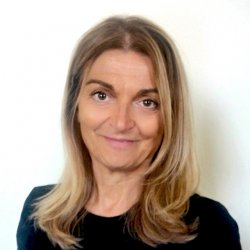 The Educational System as an Agent of Change.
The Educational System as an Agent of Change.
Is it possible to dismantle the violent, individualistic, dichotomous, vengeful, patriarchal paradigm and foster transformation towards a universalist humanism through nonviolent education?
This paper explores the possibility of transforming the prevailing social paradigm, rooted in violent, punitive, dichotomous, and authoritarian logics, through the adoption of a systemic and nonviolent approach to education.
The interest is to promote a transition towards a planetary and universalist humanism (Morin, 2020; Silo, 2000), which values interdependence, connection, and dialogue, drawing inspiration from concepts of ancient cultures, such as UBUNTU, which guided Mandela in the nonviolent exit from apartheid, "I am because we are".
The school is considered a privileged context for such transformation, both for the central role it plays in the daily lives of children and adolescents, and for its ability to intercept early forms of psychosocial distress, such as isolation, self-harm, and antisocial behavior. Traditional responses based on fragmented interventions or punitive approaches have shown limited effectiveness with high rates of recurrence of distress. The study presented, still ongoing, proposes a holistic and participatory educational approach, involving the entire school and territorial community. In particular, it aims to facilitate the transition from:
- fragmented interventions to a systemic model;
- punitive logics to nonviolent generative dialogic practices;
- transmissive educational models to greater active participation of students.
Through the pilot intervention conducted in six classrooms, this study aims to generate reflections and some qualitative data useful for structuring a first approach in secondary schools. The project is inspired by restorative justice practices, integrating them with recently experimented generative models (Restore Project) and relational approaches inspired by Danilo Dolci's maieutics. The intent is not only to repair the damage, but to promote sustainable relationships that prevent conflict and encourage personal and community reconciliation. The schools involved are actively participating in the co-design of replicable guidelines, which could provide a basis for further implementations on a larger scale. The research aims to contribute to the debate on education as a tool for cultural and social transformation, with the goal of fostering more equitable and nonviolent coexistence.
Annabella Coiro. With over 25 years of experience in communication and non-violence studies, she designs and facilitates training and research programs on interpersonal relationships and non-violent education in schools. She gives conferences and experiential workshops. Graduated in Education Sciences, she is involved in national and international projects for the promotion of peace and non-violence. She co-founded the Women's House, the Municipal Table for Non-Violence of the Municipality of Milan, the Active Non-Violence Center and the ED.UMA.NA. school network, where she is also responsible for training. She is co-author of several publications on education, including "Boundless School. A Proposal for an Educational Revolution", published by the G. Feltrinelli Foundation and "Educating with Dialogue in Primary School" published by the Erickson Study Center. Activist for a World Without War and Violence.
100) Nadia Magali Robaldo Fittipaldi - Realism or Subjectivism in Science? Alternative Paths for Today's Science.
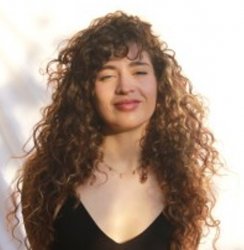 Contemporary science faces significant epistemological challenges stemming from the rapid advances in technology and scientific knowledge. In the case of biology, a discipline that studies living organisms, the relationships between them, and their environment, these challenges are particularly relevant due to the constant transformation of ecosystems. These changes affect both the organisms and the interactions between the actors that make up these ecosystems. Added to this new era are factors such as climate change and its consequences for life on the planet, as well as the increasingly influential role of technology, particularly artificial intelligence, which has brought with it new possibilities and challenges.
Contemporary science faces significant epistemological challenges stemming from the rapid advances in technology and scientific knowledge. In the case of biology, a discipline that studies living organisms, the relationships between them, and their environment, these challenges are particularly relevant due to the constant transformation of ecosystems. These changes affect both the organisms and the interactions between the actors that make up these ecosystems. Added to this new era are factors such as climate change and its consequences for life on the planet, as well as the increasingly influential role of technology, particularly artificial intelligence, which has brought with it new possibilities and challenges.
The scientific and technological advances of our time are reshaping both ontology—what is life, what does it mean to be human, what are the mind or consciousness—and gnoseology, that is, the ways in which we access knowledge and the optimal tools for current science. In biology, integrative approaches are increasingly being adopted that efficiently address the multiple significant variables of research problems, with a focus on complex systems and phenomena. This approach constitutes a challenge and, at the same time, an invitation for scientists and philosophers to agree on and adopt new paradigms that promote interdisciplinary dialogue, collaborative work, constant updating, and flexibility in scientific positions.
Although integrative models are gaining ground in the study of natural phenomena, specialization and reductionism remain fundamental and effective tools in the analysis of different levels of detail. However, dialogue between disciplines, both internally and externally, is more necessary than ever. This exchange is essential to avoid the generation of an ocean of disconnected or decontextualized data and to prioritize the construction of meaningful scientific knowledge. This construction requires historicity, communication, and social cooperation.
Throughout history, science has faced dual debates between currents such as empiricism and rationalism, objectivism and subjectivism, realism and constructivism, dualism and monism. These debates have not lost their validity, especially in the face of the need to adopt positions that integrate the developments of the exact and natural sciences with those of the social and human sciences. A key example comes from neuroscience, which has shown that perception is an active process and that the brain constructs our understanding of reality. In this context, reviewing the perspectives of the most representative authors on the construction of knowledge is not only interesting, but also necessary to design new models of thought that allow us to address the complexity of natural phenomena and our own existence as a species.
In this context, the idea of a philosophical "utopia" emerges as a necessary horizon: an integrative framework that allows us to address the complexity of natural phenomena from a perspective that transcends disciplinary divisions and traditional paradigms. This utopia is not an unattainable ideal, but an invitation to build a philosophy of biology that combines the rigor of scientific analysis with openness towards complex systems, historicity, and interdisciplinary collaboration. It is a call to imagine and design epistemological and methodological tools capable of articulating technological advances, the social and natural sciences, and the understanding of our species in the world, to face the challenges of the present and chart a sustainable path towards the future.
Rethinking research in biology epistemologically, in this context, implies abandoning rigid perspectives and adopting dynamic approaches that integrate multiple dimensions of knowledge. Biology, as a science that studies life in all its complexity, requires an epistemology that recognizes the interaction between natural and social systems, as well as the influence of technology and historical contexts in the construction of knowledge. This demands moving from fragmented paradigms to models that combine reductionist analysis with systemic perspectives, considering both the emergence of global patterns and the importance of local details.
Furthermore, interdisciplinary dialogue, the recognition of the historicity of biological concepts, and the incorporation of tools such as artificial intelligence or neuroscience open up new possibilities for understanding complex phenomena. In this framework, rethinking biology implies not only a methodological change, but also an ontological and ethical revision, addressing fundamental questions about what life is, how reality is defined, and what is the role of science in a constantly changing world.
Nadia Magali Robaldo Fittipaldi. Biologist and multidisciplinary artist, guided by curiosity, has created innovative projects that merge her scientific and sensitive perspectives in a creative way, while proposing to understand the human being through neuroscientific tools. She has completed practical internships at the Neurobiology Lab, IHEM U and a research stay at the "El Rayo" Laboratory, Universidad de Chile. Scientific communicator. She has carried out projects where the intersection between Art and Science occurs. She is currently working on a theoretical thesis related to her activity at the Faculty of Exact and Natural Sciences, Universidad Nacional de Cuyo.
101) Lía Méndez, Gabriel Bulgach, Jorge Pardés - The Full Force of Human Rights in the Construction of the Universal Human Nation.
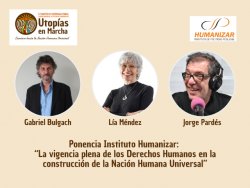 In an increasingly unequal world, where access to fundamental rights is conditioned by economic power, it becomes imperative to rethink our political and social structures. Is a model of society that truly guarantees the well-being of all human beings possible? In this collective production of the Humanizar Institute, we will explore the proposal to build a humanist society as a new horizon for a real democracy with the full force of human rights.
In an increasingly unequal world, where access to fundamental rights is conditioned by economic power, it becomes imperative to rethink our political and social structures. Is a model of society that truly guarantees the well-being of all human beings possible? In this collective production of the Humanizar Institute, we will explore the proposal to build a humanist society as a new horizon for a real democracy with the full force of human rights.
Within the framework of the crisis of representativeness in current democracies - far from being the means through which the people govern - these have stopped responding to the needs of the majority. Elected representatives, once in power, distance themselves from those who elected them and end up acting in terms of particular interests, unrelated to the common good.
This model, which grants a "blank check" to rulers during their terms, perpetuates the disconnection between political decisions and true social demands. To reverse this situation, it is necessary to implement mechanisms of direct participation, such as popular consultations and binding referendums, which grant the people a real voice in the decisions that affect their present and future.
Access to fundamental rights, such as health, education, housing and work, is conditioned by a market system that favors profit over human life. This commodification of life perpetuates inequalities, condemning broad sectors of the population to poverty and social exclusion.
The proposal of a humanizing social organization seeks to reverse this situation through the implementation of public policies that prioritize the well-being of the population over economic gains. The universal basic income, the nationalization of strategic sectors and investment in health and education are some of the key measures to ensure that all human beings can enjoy a dignified life.
Another of the great challenges of our time is the control that large corporations exert over the media. These media, dominated by financial capital, play a crucial role in the construction of meanings. The narratives they promote legitimize the status quo and hinder the social organization necessary for change.
The path towards the Universal Human Nation requires the democratization of communication. This implies regulating the use of algorithms and artificial intelligence to put them at the service of human development and not the interests of those who hold power, ensuring that all peoples have access to truthful and plural information and in which freedom of expression is not only a prerogative of the media.
The path towards the Universal Human Nation implies a model of society in which progress is for all, without exclusions. In this model, human rights are not mere aspirations, but effective realities that guide social and economic development. Only through a model of humanist society, which truly prioritizes human life over the interests of the market, can we build a future where all human beings live in conditions of equality and dignity.
The current crisis offers us a unique opportunity to reimagine our political and social structures, putting them at the service of human rights, where democracy is real and the well-being of all is the center of public policies. This ongoing utopia is a concrete possibility that can transform the world and open the way to a fairer and more equitable future.
Lía Méndez. Lawyer (UBA), Member of Parliament of the City of Buenos Aires, (MC) member of the Institute of Public Policies ‘Humanizar’. Author of ‘Violence and Non-violence, reflections on personal and social action. Co-author of ‘Dialogues, a humanist contribution to real democracy’.
Gabriel Bulgach. Graduate in Social Work (UBA), member of the Institute of Public Policies ‘Humanizar’. Co-author of ‘Dialogues, a humanist contribution to real democracy’. Journalistic publications in different media.
Jorge Pardés. BA in Communication (UNMA), member of the Institute of Public Policies ‘Humanizar’. Collaboration in ‘El mundo es un pañuelo: viajes al exterior de las Madres de Plaza de Mayo’, coordinated by Luis Zarranz. Journalistic publications in different media.
102) Guillermo Sullings - Towards a Humanist Planetary Economy.
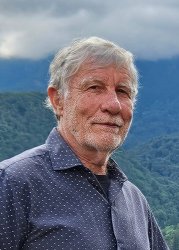 Faced with a global problem, the solution must be global or it will not exist. If we think that, at this moment in history, the acceleration of the planetary crisis can generate a vacuum from which the need for a humanist planetary civilization arises, then, from an economic point of view, we should think in terms of a Humanist Planetary Economy.
Faced with a global problem, the solution must be global or it will not exist. If we think that, at this moment in history, the acceleration of the planetary crisis can generate a vacuum from which the need for a humanist planetary civilization arises, then, from an economic point of view, we should think in terms of a Humanist Planetary Economy.
But an economic system is not defined only by its production methods, but fundamentally by the social organization that sustains it, based on a system of values that motivate and order the population. Today we see how little by little the God Money has taken center stage and become the central value of societies. The capitalist mechanism of wealth accumulation has placed a new "nobility" in power, and democracies have been transformed into true plutocracies.
What will be the terminal crisis of this system that will accelerate the awakening of the populations? Will it be a nuclear conflict, an unprecedented financial crisis, unmanageable social chaos, or an ecological disaster of immense proportions? Perhaps all together?
We find ourselves at a crossroads, we cannot continue to grow at the expense of planetary depredation, but on the other hand there are vast sectors of the world population that need to develop, and the only possible solution (unless we accept the extermination of half of humanity) is to redistribute resources at a global level. It will only be possible to get out of this crossroads through a true leap of humanity towards a cultural change that puts the human being in contact with his highest values and his deepest aspirations.)
Guillermo Sullings. Argentinian, Public Accountant, militant of Universalist Humanism, writer, and lecturer.
In May 2000, he published the book "Más allá del Capitalismo, Economía Mixta" (Beyond Capitalism, Mixed Economy), which was presented in several Latin American countries. In 2014, it was translated and published in Italy.
In 2001, he published the essay "El Derecho a la Rebelión y la Lucha No Violenta" (The Right to Rebellion and Non-Violent Struggle), published in Argentina, Peru, and Chile.
In the 2003 Argentine elections, he was a candidate for President of the Nation for the Humanist Party.
From 2003 to date, he has written several essays on social, political, and economic issues, included in books published by the University of Córdoba (Argentina), UNED of Madrid, the University of Panama, the Autonomous University of Costa Rica, and Editorial Tabla Rasa (Spain). He has also participated as a lecturer and panelist in various forums held in Latin America and Europe.
From May 2010 to May 2012, he served as Secretary General of the International Humanist Party.
In 2017, "Encrucijada y Futuro del Ser Humano" (Crossroads and Future of the Human Being) was published, a book that was edited in Chile, Argentina, Peru, Bolivia, USA, Italy, France, and Spain.
In 2024, the story "Contacto con Balderrama" (Contact with Balderrama) was published, an interpretation of the Message of Silo.
104) Rosa Montecinos Molina - RedENS: promoting non-sexist education in Chile.
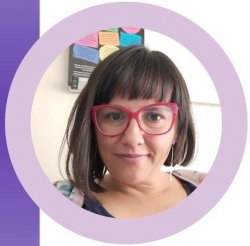 Analysis of non-sexist education, in relation to the right to education and the construction of the school as safe spaces free from discrimination.
Analysis of non-sexist education, in relation to the right to education and the construction of the school as safe spaces free from discrimination.
Analysis of the violence present in the educational system. The importance of the gender perspective in education and its possible applications in school communities will be addressed.
The interest is to share the experience of RedENS (Network of Non-Sexist Education) in Chile https://www.redens.cl
RedENS is a space for collaboration and joint work between education professionals, organizations, institutions and people interested in promoting a Non-Sexist Education free of gender stereotypes. Our main objective is to promote the gender perspective in the educational field, in order to eliminate discrimination and inequalities based on gender.
We consider it fundamental to raise awareness about the importance of an education that values diversity and Non-violence.
In RedENS we share experiences, good practices, resources and strategies to implement in the educational field, in order to ensure that classrooms are safe, inclusive and discrimination-free spaces.
In addition, we organize training activities, talks, workshops, debates, awareness campaigns and other actions aimed at promoting an educational culture based on the appreciation of diversity and the protection of Human Rights.
We seek to generate a cultural change in educational communities and in society in general, to build a world with social justice.
We promote spaces for meeting and collective action to transform education.
Rosa Montecinos Molina. She is a professional with a background in visual arts and a focus on non-sexist education. Her career focuses on research, teaching and activism in gender and education.
In the academic field, she holds a Bachelor of Arts, mention in Visual Arts (University of Chile, 2003) and a Master's Degree in Advanced Studies in Art History (University of Barcelona, 2014). Her academic production includes publications on gender transformations in education, pedagogical experiences in non-sexist education networks and social representations of sexism in the Chilean education system.
In terms of her work experience, she has held prominent roles as Metropolitan Regional Secretary General of the Colegio de Profesoras y Profesores A.G. (2024-present) and Executive Coordinator of the Diploma in Non-Sexist Education at the Universidad Metropolitana de Ciencias de la Educación (UMCE) (2023-present). She has taught in various educational institutions and has participated in research projects on gender, school violence and family representations in education.
Montecinos has also dabbled in artistic creation, with illustrations for the book ‘Cuarentena’ (2020). Her commitment to non-sexist education is reflected in her participation in the Non-Sexist Education Network (RedENS), where she has served as Coordinator since 2022.
Her complementary training includes courses on storytelling and jewellery making. She has participated in presentations on representations of sexism in teachers and pedagogy of diversity. She has received awards such as the ‘Seed Capital for Entrepreneurs’ CORFO prize in 2008.
105) Raul de Obaldia Henríquez - CANOPUS: a proposal for a humanist city instead of Nüwa on Mars.
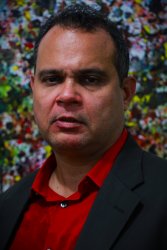 This utopian proposal imagines a city that harmoniously combines nature and technology, based on the humanist ideal of a just and sustainable society. The city is built on a living coral structure, partially submerged in the ocean, creating a unique environment that promotes connection with nature and the community.
This utopian proposal imagines a city that harmoniously combines nature and technology, based on the humanist ideal of a just and sustainable society. The city is built on a living coral structure, partially submerged in the ocean, creating a unique environment that promotes connection with nature and the community.
The use of hydrogen as fuel to create oxygen and manage to inhabit the depths and take advantage of our resources, to manage to survive the greenhouse effect that will produce a drop in temperature leading to the freezing of three quarters of the planet. To achieve this goal, it must have the following characteristics:
Organic Architecture: The city integrates with the marine environment, using cultivated coral structures and natural materials. The buildings are designed to adapt to ocean currents and harness solar and tidal energy.
Environmental Sustainability: The city is self-sufficient in terms of energy and resources. Clean technologies are used, such as solar, wind and tidal energy. In addition, an efficient waste management system is implemented and hydroponic agriculture is promoted.
Connection with Nature: Inhabitants have direct access to the ocean, promoting recreational and educational activities related to the sea. Green spaces and vertical gardens are created to promote biodiversity and improve air quality.
Equitable Community: The city is organized based on principles of equality and cooperation. Citizen participation in decision-making is promoted and solidarity among inhabitants is encouraged.
Technology at the Service of Humans: Advanced technologies are used to improve quality of life, such as intelligent transportation systems, high-speed communication networks and medical diagnostic tools.
In the first stage, as the temperature continues to drop, the city must create the first structures under the ocean to ensure the survival of the species. The Benefits:
Reduction of environmental impact: By using renewable energies and sustainable materials, the city contributes to mitigating climate change and protecting marine ecosystems.
Improvement of quality of life: Inhabitants enjoy a healthy and beautiful environment, with access to green spaces and recreational activities.
Model for a sustainable future: This proposal offers a vision of a future where technology and nature coexist in harmony, creating more just and equitable societies.
Adaptation to climate change: It is necessary to design the city to resist the effects of climate change, such as rising sea levels and extreme weather events.
Changing the blue of our planet for the red of Mars invites us to think of a society controlled by chips to avoid the depressive effect of the absence of the golden light of the sun and the blue effect of the atmosphere that regenerates us as children of this planet. To think that an elite can only travel to found a new humanity when we can rethink our planet.
Raul de Obaldia Henríquez. Professional with training in architecture, law and political science, with more than 20 years of experience in design, inspection of urban planning and landscaping projects. Professor at the University of Panama and the Technological University. As a lawyer specializing in civil and agrarian/environmental law. Law professor at the American University. Researcher and currently pursuing a doctorate in International Law. Columnist in La Estrella de Panamá.
106) Sasha Volkoff - Ending poverty: Universal Basic Income.
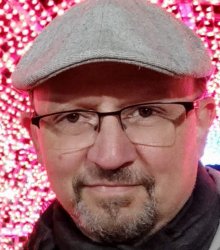 What is UBI? It is a monthly income that is given to all people, without any conditions, to cover the basic needs to live with dignity. This proposal, by itself, could end poverty, although it is complementary to other social measures that cover other basic needs such as health, education and housing. In other words, a UBI is not money that is given at the same time as people are told that with it they will have to pay for their health care, education and housing, but it is a complement to these other social benefits, which in some places of the planet are already covered by society as a whole.
What is UBI? It is a monthly income that is given to all people, without any conditions, to cover the basic needs to live with dignity. This proposal, by itself, could end poverty, although it is complementary to other social measures that cover other basic needs such as health, education and housing. In other words, a UBI is not money that is given at the same time as people are told that with it they will have to pay for their health care, education and housing, but it is a complement to these other social benefits, which in some places of the planet are already covered by society as a whole.
This is the historic moment to implement UBI across the planet, because it is a moment when it can already be done. Until relatively recently, this was an impossible dream, because there were not enough resources. Today, on the other hand, there are more than enough resources to be able to turn this dream into reality, the only thing that is missing is to change the distribution of these resources, which today are very badly distributed.
So, if this is so good and so easy, why is it not already implemented? There are two main problems: the first is that those who hoard the economic resources of the planet, that richest 1%, do not want to lose their privileges. The second is the cultural prejudice that says that you have to earn your bread by the sweat of your brow, or in other words, that it is inconceivable that people can live without having to work.
Of course, a UBI will not prevent those who want to work from continuing to do so, since there will be many people who will not be satisfied with covering their basic needs, but no one will have to accept jobs with undignified conditions, because it will not be necessary.
Sasha Volkoff. Born in Argentina, he resides in Barcelona. He has been an activist with the Humanist Movement since 1984, being part of the team that promoted the refounding of the World Center of Humanist Studies in this century. He is currently a member of the Noesis Center for Humanist Studies and collaborates with the International Press Agency Pressenza, where he has published, among other articles, a series on the Unconditional Universal Basic Income (UUBI).
107) Leticia García Farías - The Study and Reflection Parks as Social Cohesion. The attempt of the El Remanso Park.
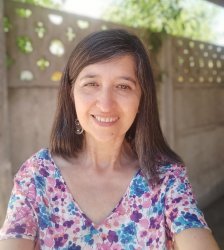 Regarding the Study and Reflection Parks, Silo said on September 9, 2010:
Regarding the Study and Reflection Parks, Silo said on September 9, 2010:
"We need social links that are places of relationship. The main thing about these places is that people feel comfortable there. ... The Parks are nooks where people can go. Many must be created in the world. Today it is not understood, but it will be understood tomorrow. Parks all over the world, but distant from each other. They must continue to grow, decentralized and autonomous. This is not easy because there must be a lot of strength in the place. A single Park with sufficient strength and imagination can do what an entire country does. Many Parks with real strength, with people who make the effort, who do things and not with photos of 'weeds'. Several nooks in different places where people go. In a situation of destructuring, when people scatter in all directions, we need those nooks where people can get together, connect with others, recompose themselves psychologically. The Parks are social links."
In this Presentation, we intend to describe the attempt of the Study and Reflection Park El Remanso. A Park located in a rural place in the Maule region, in a southern area in the south of Chile.
Starting from a methodical study of this Utopia in progress, we will recount the birth and development of the experience of starting up and expanding this corner located in the south of the world, by a small group of people who have contributed, from their diversity, application, inspiration and good treatment, to develop a space of irradiation of values, contents and practices, which progressively has constituted it in a physical and psychological domain of social cohesion.
The methodology we will use is the presentation of a brief video summary of the 2024 experience, a presentation of the conclusions of the study carried out, projections and expansions and a subsequent dialogue with those present.
Leticia García Farías. She has been part of the Humanist Movement since 1985. She participates in the Park of Study and Reflection El Remanso.
She is part of the Centre for Humanist Studies CEHUM-Alétheia since 2006, a federated organism of the World Centre for Humanist Studies (WCHS). On its behalf, she has given conferences in various universities in Chile, Argentina, Ecuador, Peru, Bolivia and Mexico, and has participated as an organizer and speaker in 9 International Symposiums of the WCHS.
She has been a regular panellist on the radio programme ‘Escaparate’ since 1997, currently broadcast on Radio Universidad de Chile and Spotify.
She has extensive experience in the formation of grassroots social networks and in the coordination of professional teams for the development of applied knowledge.
Academically and professionally, she studied Psychology at the Pontificia Universidad Católica de Chile. She has worked as a consultant and trainer for the Corporación Futuro Humano, as Project Director, Senior Consultant and Speaker at Conferences, Courses and Training Workshops in companies, public institutions, schools and high schools and in the health area, both in Chile and in other Latin American countries. Between 2017 and 2023, she was General Administrator of the Chilean Teachers' Association.
108) Amire Romina Ortiz Arica - Socio-political Obstacles to the Legalization of Voluntary Termination of Pregnancy in Peru.
Through this presentation proposal, I seek to reflect on what concerns the guarantee of human rights (HR), specifically the termination of pregnancy as part of sexual and reproductive rights (SRR), in social contexts such as those that Peru is going through.
Faced with this, the structure to be developed is presented:
Guarantee of women's HR in the construction of democracy.
Analysis of patriarchy and capitalism as a social construction. Reflections on the guarantee of SRR as a relevant social aspect of public interest. Conservatisms and anti-rights positions in the current social context as a limit to progress in the regulation of HR.
Reflections on religion and its approach by the organization of the State Importance of the secularity of the State Deficient institutional management and its impact on the guarantee of HR.
Patriarchal dynamics in the justice administration system Corruption and weakening of institutions and their impact on the legislative function in fundamental rights Challenges still open to society regarding the guarantee of women's HR in Peru and their importance.
Although it is true that what concerns VTP is constantly addressed, the topic is reflected on as a matter of lesser relevance compared to other contexts of social crises and the integrality of the problem is not connected, which has an implication on the relationship of power dynamics exerted from the patriarchal construct that is closely linked to the capitalist economic and social model.
In this presentation proposal, the visibility of relevant events that have been of social interest and the inconsistency of the positions of conservative groups in the face of them is considered important. For this, regarding the examples to be considered, an analysis will be carried out from the legal approach, but also reflection based on gender theory with an intersectional perspective, in accordance with the reality of our country.
Finally, the proposal aims to strengthen the discourses of defense of SRR with legal tools, disseminated in simple language for non-jurists.
Amire Romina Ortiz Arica. A cisgender woman, feminist, and human rights activist with over 10 years of experience in citizen advocacy. She is a lawyer from the Pontifical Catholic University of Peru, holds a Master's degree in Gender Studies and a second specialization in consumer protection law from the same institution. She also has complementary academic training in gender violence, administrative law, and public administration.
She is originally from the province of Huancayo, in central Peru, and her work is associated with the construction of an intersectional feminism, with an anti-racist and anti-discriminatory perspective. She has participated in various social spaces within the framework of the feminist struggle and the defense of democracy.
In 2018, as part of her civic work, she voluntarily participated in the collaboration of drafting the bill for the reform of the classification of sexual crimes in Peru, through the opening managed by then Congresswoman Tania Pariona. Similarly, she promoted legal guidance on issues of gender violence and the promotion of information with a legal perspective for activists who did not have such knowledge.
In that same year, after a selection process, she was part of the Advocacy School of the Intelligent Citizenship Foundation, a training space for collaborative leadership in Latin America that took place in Peru in 2019, whose outstanding participation led her to be included in COLECTIVA and to represent the country in joint work with more than one hundred activists from the region. In that year she founded the organization Acción Por Igualdad, as a social space to promote the fight against gender violence and promote the visibility of women's leadership.
In 2020 she created the free legal clinic of Acción Por Igualdad and together with volunteer lawyers, she provides, to this day, free legal advice on various legal issues to people who cannot afford legal services. In that same year, the Women of Law team was created, bringing together more than 100 women between lawyers and law students to give visibility to the legal practice of women and conspire in citizen advocacy actions with a legal and anti-discriminatory perspective.
In 2021 she received the Heroínas Toledo award from the Provincial Municipality of Huancayo, for her contribution to social development, within the framework of March 8, International Women's Day. In 2022 with Acción Por Igualdad she started the Acción Verde project that works in the defense and promotion of sexual and reproductive rights, through the service of free legal advice, legal school and radio program, with the purpose of democratizing legal knowledge in this area. Additionally, since 2022 she has been part of the legal network of CLACAI, Latin American Consortium against Unsafe Abortion.
In 2024 the Acción Verde project, under her leadership, had two achievements recognized, both by the Organization of Ibero-American States for the Legal School as part of the Óscar Arnulfo Romero Award that recognizes citizen proposals of non-formal education in human rights education, and by the organization Digital Democracy that recognizes the contribution of the legal clinic in sex education in Peru, for its contribution in the publication of free legal guides of easy understanding.
She is also a columnist in independent press media such as Mano Alzada, Portal Central and Huanca York Times. She also had the program Aguaitando, via streaming and social networks, whose purpose was to address gender and human rights issues, according to the social context in which it is also proposed to give visibility to various social leaders.
With broad participation in presentations, training spaces, workshops, training, interviews in the press and other advocacy actions with articulation with public, private and civil society organizations.
109) Vito Correddu - Reflections on a World Without Revenge.
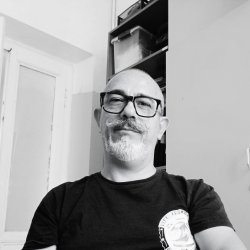 Thomas More, in his celebrated tale Utopia, tells us about the punishment reserved for thieves by an imaginary people of Persia whom he calls the Polileriti. He tells us that among these people, those found guilty of theft are not subjected to the death penalty, as was the custom in 16th-century England. Instead, while remaining at liberty, they were compelled to perform hard labor. In addition to this punishment, a small portion of the ear was removed, and they were required to wear specific clothing and a distinctive haircut that left the ears exposed, so they could be recognized and distinguished from the rest of the honest Polileriti.
Thomas More, in his celebrated tale Utopia, tells us about the punishment reserved for thieves by an imaginary people of Persia whom he calls the Polileriti. He tells us that among these people, those found guilty of theft are not subjected to the death penalty, as was the custom in 16th-century England. Instead, while remaining at liberty, they were compelled to perform hard labor. In addition to this punishment, a small portion of the ear was removed, and they were required to wear specific clothing and a distinctive haircut that left the ears exposed, so they could be recognized and distinguished from the rest of the honest Polileriti.
In this story, he also tells us about the penal justice in that ideal state and people found on the imaginary island of Utopia. The penalty on this island for serious crimes, among which we might imagine murder and theft, is generally life-long slavery.
The range of feelings aroused by re-reading More's 16th-century ideals can be extremely varied. This variety is manifested in relation to each person's conception of the punitive mechanism of revenge as an ideal of justice. The stronger the belief that the guilty deserve a form of punishment, the more the ideas of justice of the Polileriti and the Utopians seem not only unachievable but also wholly ineffective and perhaps even unjust and immoral.
Conversely, the less we believe in revenge, the more More's ideas seem not only cruel and profoundly inhuman but belonging to conceptions already embedded in the past of that specific historical and social context. And yet, if we look around us, there are nations in which penal justice is still administered today by applying the death penalty, forced labor, and slavery.
It is understood from all this that the exercise of imagining a new Utopia in the field of justice is intrinsically linked to our ability to question our deepest beliefs in the face of harm, offense, and all that we perceive as injustice.
Taking inspiration from Thomas More's story, we will try to reflect on what a world without revenge means.
What would the world be like without revenge and punishment for the offense received? Would we be willing to live in a world in which the mechanism that stipulates that the guilty should be inflicted with a dose of suffering for the damage caused has been eradicated? Are we capable of reconciling ourselves for the wrong suffered? But above all, what would prevent us from accepting a world without revenge, retribution, rancor, and resentment? What other changes would be necessary and to which should we adapt to live in a world where justice would see its meaning transformed?
Why should we aspire to this ideal?
Vito Correddu. Served as president of the Salvatore Puledda Center for Humanist Studies. From 1998 to 2010, he worked on development project creation in Togo and Ghana. From 2009 to 2012, he helped create the Italian anti-racist coordination Stop Razzismo. With the Salvatore Puledda Center for Humanist Studies, he organized the last six editions of the International Symposium of the World Center for Humanist Studies. He promoted a research group on religiosity in social phenomena and another on the roots of revenge in modern society. In his professional life, he is a socio-pedagogical educator in a community for minors. He likes to define himself as a humanist, anarchist, non-violent, choosy, lazy, and prone to happiness.
111) Gherardo Colombo - Does evil eliminate evil?
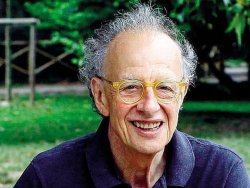 This is a reflection on three levels regarding how it would be appropriate to respond to evil. The first level is speculative and starts with this question: does evil eliminate itself by acting against the one who committed it? The second is the constitutional level according to the indications of the Italian Constitution: "punishments cannot consist of treatments contrary to the sense of humanity and must aim at the re-education of the condemned"; "any physical and moral violence against people subjected to restrictions of liberty is punished". The third is the practical level: prison generates almost 70% recidivism.
This is a reflection on three levels regarding how it would be appropriate to respond to evil. The first level is speculative and starts with this question: does evil eliminate itself by acting against the one who committed it? The second is the constitutional level according to the indications of the Italian Constitution: "punishments cannot consist of treatments contrary to the sense of humanity and must aim at the re-education of the condemned"; "any physical and moral violence against people subjected to restrictions of liberty is punished". The third is the practical level: prison generates almost 70% recidivism.
Gherardo Colombo Born in Briosco (MB, Italy) in 1946, Gherardo Colombo entered the judiciary in 1974.
He served as a judge, then as an investigating judge, a public prosecutor, and finally as a judge at the Court of Cassation.
From 1989 to 1992, he was a consultant to the Parliamentary Commission of Inquiry into Terrorism in Italy and, subsequently, a consultant to the Parliamentary Commission of Inquiry into the Mafia.
From his entry into the judiciary until 2005, he led or collaborated in famous investigations such as the discovery of the P2 Lodge, the murder of lawyer Giorgio Ambrosoli, the so-called black funds of IRI, Clean Hands, the IMI-SIR trials, the Mondadori Lawsuit, and the SME case.
In 2007, he left the judiciary. Since then, he has dedicated himself to public reflection on justice and legal education. For this activity, he received the National Prize "Culture of Peace 2008".
He is the president of Garzanti Libri.
From 2015 to 2016, he was the coordinator of roundtable 12 of the General States of Penal Execution.
Since July 2016, he has been the coordinator of the Committee on Legality of the city of Milan; he is a member of the advisory board of Transparency International and the board of directors of the Roberto Franceschi Foundation.
From 2018 to 2023, he was president of the European Union of Cooperatives (Ue.Coop).
He was a member of the ethics committee of the Veronesi Foundation.
From July 2017 to early 2018, he was part of the commission for the reform of the penitentiary system and, since October 2017, he has been appointed president of the Cassa delle Ammende. He has published several books in which he uses his experience as a magistrate to provide a careful and scrupulous dissemination of the concepts of democracy, justice, and citizenship. Among the best known are "Sulle regole" (Feltrinelli, 2008), "Il vizio della memoria" (Feltrinelli, 1998), "Sei stato tu? La costituzione attraverso le domande dei bambini" (Salani, 2009), "Il legno storto della giustizia" (Garzanti 2017, with Gustavo Zagrebelsky) and "Il perdono responsabile. Perché la prigione non serve a nulla" (Ponte alle Grazie, 2011). "Democrazia" (2011) inaugurates the Bollati Boringhieri "I sampietrini" collection. He is co-author with Licia di Blasi and Anna Sarfatti of "Sono stato io!" (Salani, 2016). In 2021, he wrote with Liliana Segre "La sola colpa di essere nati" (Garzanti). In 2023, "Who did it? How to become responsible citizens" was published by Salani. Also in 2023, Garzanti published "Anticostituzione (How we have rewritten - for the worse - the principles of our society)".
112) Marcello Bortolato - What has the prison become today? In Italy, it has transformed into a "Public Vengeance".
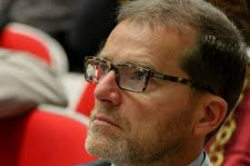 Punishment can only be traced back to the function indicated by Article 27 of the Constitution: that is, a re-educational purpose understood in a larger design of social reintegration. This means, first of all, that no one is irrecoverable and not even the life sentence - which, in general, is in contradiction with the re-educational principle - can be excluded from a purpose of social reintegration. If it is true that the prison is born as a form of monopoly of revenge, limiting the private one of the victims against the offender, over time, it has been transformed into a state revenge.
Punishment can only be traced back to the function indicated by Article 27 of the Constitution: that is, a re-educational purpose understood in a larger design of social reintegration. This means, first of all, that no one is irrecoverable and not even the life sentence - which, in general, is in contradiction with the re-educational principle - can be excluded from a purpose of social reintegration. If it is true that the prison is born as a form of monopoly of revenge, limiting the private one of the victims against the offender, over time, it has been transformed into a state revenge.
The prison is seen as a wall against our fears, but it is only an emotional reaction that must be learned to dominate and which, on the contrary, is often exploited by a policy in search of easy consensus. The prison sentence cannot be the total solution to all problems, also because, sooner or later, the sentences end and the detainee leaves the prison. The Constitution wants the convicted person to leave better than he entered. The prison, for society, is the simplest answer: the guilty are far from our sight and that problem is no longer important for the common destiny of all of us.
From public revenge it is necessary to go "beyond revenge" and here is that, also in Italy, the "restorative justice" is emerging, which today has an organic normative discipline. It is an alternative or complementary justice paradigm to the classic one, for which it is hypothesized that the response to the crime should not only be prison. The crime must be conceived as a wound, a social laceration. It has no "goody-goody" objectives, it does not foresee either the forgiveness of the victim or the repentance of the perpetrator of the crime. It is a justice that wants to sew up again the relationship between those who have suffered and those who have caused harm. In a more extensive way, between society and the offender. The objective is also to "restore" the victim who today, in court, has a voice only to tell the facts, never to express what she feels and never to ask: "Why me?"
Marcello Bortolato. Born in Venice on June 24, 1962. Graduated in Law from the University of Padua. Appointed magistrate by DM 8.03.90, obtained the VII^ professional evaluation and qualified for Senior Executive Functions by resolution of the CSM of April 5, 2017 at the time of the conferral of the executive assignment of President of the Surveillance Court of Florence. Formerly Magistrate in Mantua and in Castiglione delle Stiviere (from 1991 to 2001), Judge of the Court of Mantua with criminal functions (from 2001 to 2008) and Surveillance Magistrate of Padua (from 2008 to 2017), he currently presides over the Surveillance Court of Florence.
He was a member of the Commission for the examination of the judiciary in the years 2006-2007 (Grillo Commission).
He has been part of two Study Commissions established at the Ministry of Justice for the reform of the penitentiary system, both chaired by Prof. Glauco Giostra, the first in 2013 (Minister Cancellieri) and the second in 2017 (Minister Orlando).
Within the framework of the initiatives of the States General of penal execution promoted by the Minister of Justice Orlando, he coordinated Table II on 'Detentive life, security and penitentiary circuits' during which he made trips to European countries aimed at the knowledge of the respective penitentiary systems.
He was Secretary of CONAMS (National Coordination of Surveillance Magistrates) from 2016 to 2021.
He is the author of numerous publications on the execution of the sentence, penitentiary law and prison in journals such as Criminal Law and Procedure, Italian Journal of Law and Criminal Procedure, Italian Jurisprudence, Criminal Cassation, Criminal Archive, Antigone: quarterly review of the penal and penitentiary system and Question Justice.
He is among the authors of the following works: "Manual of Penitentiary Law" ed. Giappichelli edited by Franco Della Casa and Glauco Giostra, 2020; "Proposals for the implementation of the penitentiary delegation", edited by G. Giostra-P.Bronzo, ed. Sapienza Università, 2017; Code "Penitentiary System commented" edited by F.Della Casa-G.Giostra, WoltersKluver-Cedam, 2019 (commentary to articles 4 and 35-bis); 5th edition of the "Penal Code commented" edited by Emilio Dolcini and Gian Luigi Gatta (commentary to articles 176 and 177 cod. pen.) participation in the Commentary of the "Cartabia" reform, Giappichelli, 2024, edited by Gianluigi Gatta and Mitja Gialuz (of which he wrote chapters 3 and 5, Part III of vol. 4 "The organic discipline of restorative justice") and participation as author in the volume "Restorative Justice", Giappichelli, 2024, edited by Valentina Bonini, of which he wrote the chapter "Restorative justice and penal execution". Finally, he was a member of the Commission appointed in 2021 by Minister Marta Cartabia and chaired by Prof. Adolfo Cerretti for the elaboration of the draft legislative decree on the organic discipline of restorative justice.
He is co-author, together with the journalist of Corriere della sera Edoardo Vigna, of "Public Vendetta. The prison in Italy", Ed. Laterza, 2020, and "Beyond Revenge. Restorative justice in Italy", Ed. Laterza, 2025, both in the "Pocket Essays" series.
113) EDUHRED - Alternative and humanizing educational methodologies (round table).
From EDUHRED (Humanist Educators in Network), we invite humanist educators, who have studied and also worked in Montessori and Waldorf educational centers, to exchange the advanced contributions or progressive elements of these alternative educational models that have been in operation for more than 100 years on the planet. These friends, inspired by the new humanism, will be able to glimpse the elements that can provide a basis on which to build pedagogical foundations, especially for the construction of a future education inspired by the new humanism. Each specialist will bring their point of view and their evaluation of the various foundations that make up Montessori pedagogy on the one hand, on the other hand we will have the contributions of Waldorf pedagogy and we will review the elements or principles that the New Humanism brings to the paths that will lead to a new pedagogy.
Susana Córdova Rodríguez. Master and Diploma in Emotional Education, Universidad Mayor. Teacher of Basic General Education (NB1 NB2), Universidad Católica del Norte.
Experienced consultant in research on education and health problems of the population and implementation of autonomous and self-managed responses.
Expert consultant in school coexistence through the methodology of peaceful conflict resolution.
Implemented programmes in Education Chile Qualification and Free Examinations for the validation and levelling of studies developed in the territories aimed at young people, adults and the elderly.
We are also implementing the Laura Rodríguez Alternative School for children, which provides a non-sexist and humanising approach to methodologies.
Programme implemented in the area of School Coexistence Education through transformative methodologies that seek to develop coherence in human beings through attention to thought, feeling and action.
Programmes implemented in the health field: Prevention of teenage pregnancy, Central Metropolitan Health Ministry. For a drug-free culture, Peñalolén district, CONACE Metropolitano.
Roberto Pérez Cristiá. Professor of Basic General Education - PUC. Degree in History and Geography. Diploma in School Management and Leadership.
Work experience in personalised education and Montessori education schools. Taught courses, workshops and seminars on the topics proposed by New Humanism. Teacher of Personal and Professional Development - IP Chile. Member of the Board of Directors of the Humanist Studies Centre of Chile (CEHUM-Alètheia) Coordinator of the Education Commission from 2006 to 2012 and editor of the Humanist Education Proposal of CEHUM-Alètheia Chile. Together with CORFHU consultants, he developed plans to improve school coexistence for the municipalities of La Granja (2009-2010), San Bernardo (2011-2012) and La Pintana (2016 and 2017).
Promoter of EDUHRED (network of humanist educators) and alternative educational communities, Waldorf-inspired, and promoter of new paradigms for education and society, in the construction of the Universal Human Nation.
Maria Eugenia Pirolo. Graduate and lecturer in social communication (UBA). Humanist educator with extensive experience in alternative educational environments. With training and experience in Montessori Pedagogy as classroom assistant from 3 to 6 years and with international training (AMI) as classroom assistant from 6 to 12 years.
114) Stefano Tomelleri - Evolution of the scapegoat in contemporary society.
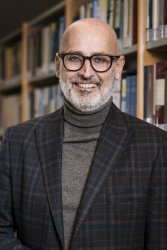 The concept of scapegoating has deep roots in human history, serving as a mechanism to maintain social order through violence and persecution. However, in contemporary society, this phenomenon has undergone a significant evolution. The scapegoat has been transformed from a traditional sacrificial figure into an instrument of political and social manipulation.
The concept of scapegoating has deep roots in human history, serving as a mechanism to maintain social order through violence and persecution. However, in contemporary society, this phenomenon has undergone a significant evolution. The scapegoat has been transformed from a traditional sacrificial figure into an instrument of political and social manipulation.
Starting from a historical analysis, examining its origins and its role in ancient communities, it is possible to highlight the modern dynamics that characterise the use of scapegoating. In particular, the specificity of the current mimetic crisis and the fear of change are leading to the search for new scapegoats. The mimetic crisis, a concept introduced by René Girard, refers to the rivalry and conflict that emerge when individuals imitate the desires of others, leading to destructive competition. In this context, scapegoating becomes a means of channelling violence and restoring order.
The case of Donald Trump illustrates how victimhood and scapegoat rhetoric have been used to consolidate political power. Trump has skilfully exploited the fear and resentment of large sections of the population, presenting himself as a victim of a corrupt system and identifying common enemies on whom to place the blame for social and economic difficulties. This approach allowed them to mobilise consensus and strengthen their leadership position.
The risk of becoming trapped in an apocalyptic vision of the future is real. The hunt for the enemy takes on obscene and trashy forms, reflecting the existential condition of a society that has lost hope in a better future. Contemporary manifestations of scapegoating, such as obscenity and trash, are indicative of a society that has lost the sense of the sacred and replaced it with the ridiculous and the monstrous. This cultural degradation is emblematic of a deeper crisis, in which symbolic and real violence becomes a means to deal with the fears and uncertainties of the present.
In this context, the zombie apocalypse emerges as a powerful metaphor for the contemporary human condition. The zombies, devoid of consciousness and driven by a destructive impulse, represent the dehumanisation and alienation that characterise our age. Zombie hunting, similar to scapegoat hunting, becomes a way to exorcise collective fears and to find a sense of cohesion in a fragmented society. However, this apocalyptic vision risks perpetuating a cycle of violence and exclusion, preventing the construction of a more just and inclusive future.
Stefano Tomelleri. Is Full Professor of General Sociology at the Department of Business Sciences of the University of Bergamo, where he is Vice Rector for Participatory Planning of the University. Author of over one hundred publications, he has published in prestigious national and international journals. Among his publications are: Ressentiment. Reflection on Mimetic Desire and Society, Michigan State University Press, 2015; with Martino Doni, Playing Sociology: Theory and Games for Coping with Mimetic Crisis and Social Conflict, Michigan State University Press, 2024. He is currently president of the Italian Sociological Association for the three-year period 2023-2025.
115) Luciano Eusebi - Subverting the terms of right action in the name of the Future.
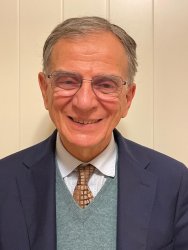 The future risks vanishing if we do not revisit the category of just relations towards the conduct of others: a category that, starting from the Pythagoreans and with different nuances, has universally imposed itself, attributing the chrism of justice to the practice of reciprocity. This latter concept, of a formal nature, as it derives its contents, by analogy, from the characteristics of that to which it is intended to respond. Good, perhaps, for commercial traffic, but extremely dangerous beyond its borders. It presupposes, in effect, a judgment about the other, which, if negative, entails an equally negative reaction. Which, under the Aristotelian appearance of restoring equality, multiplies the negative: given that there will always be something censurable, in another, that serves as an alibi to act against him. That judgment, indeed, has easily depended on the fact that the very existence of the other did not correspond to the interests, or visions, of the one who judges. And the biunivocal configuration of such an approach has led to discerning in conflict an ordinary profile of human vicissitudes: in which the good of oneself is identified in the defeat, in the submission or even in the annihilation of whoever travels a path that in some way intersects with one's own.
The future risks vanishing if we do not revisit the category of just relations towards the conduct of others: a category that, starting from the Pythagoreans and with different nuances, has universally imposed itself, attributing the chrism of justice to the practice of reciprocity. This latter concept, of a formal nature, as it derives its contents, by analogy, from the characteristics of that to which it is intended to respond. Good, perhaps, for commercial traffic, but extremely dangerous beyond its borders. It presupposes, in effect, a judgment about the other, which, if negative, entails an equally negative reaction. Which, under the Aristotelian appearance of restoring equality, multiplies the negative: given that there will always be something censurable, in another, that serves as an alibi to act against him. That judgment, indeed, has easily depended on the fact that the very existence of the other did not correspond to the interests, or visions, of the one who judges. And the biunivocal configuration of such an approach has led to discerning in conflict an ordinary profile of human vicissitudes: in which the good of oneself is identified in the defeat, in the submission or even in the annihilation of whoever travels a path that in some way intersects with one's own.
It is a perspective that has always emerged when understanding punishment as retaliation. But which is manifested, equally, in the traditional justifications of war. Which, however, makes that perspective - given the weapons available today, as well as the risks to the environment and health associated with competition between states - destined, already, to produce catastrophe.
It appears necessary, then, to redefine at the root the concept of justice, freeing it from the image of the scales. To do justice consists in opposing to the negative that we approach projects of the opposite sign: in trying to make just, for all, relations that have not been so. This is the core of restorative justice, which, therefore, does not only concern procedures of reconciliation after misdeeds, but a different way of establishing human relations ab initio.
It is no coincidence that penal prevention itself depends, firmly contrasting the profits and criminal apparatuses, on strategies of motivation, rather than retaliation. And who knows if from the progress of the idea of a universal fraternity may come the message by which peoples no longer recognize the pursuit of their own good through dynamics of rivalry or domination.
Luciano Eusebi. Is Full Professor of Criminal Law at the Catholic University of the Sacred Heart of Milan. He was among the first supporters, in our country, of an evolution of justice in a restorative sense, which goes beyond the traditional scheme of retribution: seeing in this a requirement that goes far beyond the penal context. He has participated in ministerial commissions for reform in criminal matters and has been a member of the National Bioethics Committee.
116) Antonio Carvallo - Our Utopia in March: The Humanizing Project.
It is formulated as Humanizing the Earth by advancing towards the Universal Human Nation, extended throughout the world and sharing talents, resources, knowledge, races, cultures, affections, solidarity, non-violence, faith, and compassion... The utopia does not lie in the formulation, but in the inertias and deficiencies of the functioning of the human psyche. In its increasing difficulty of adapting to new conditions. The obstacle is not nature, since its resources are abundant and we have technology that is advancing at an exponential rate to protect it, regenerate it, and make it more productive. Neither are communications, distances, and connectivities of all kinds, as they are increasingly abundant, fast, and efficient. Science and technology, also advancing exponentially, offer the possibility of extending the human life cycle by doubling the average lifespan towards the end of the century. The problem lies in the human being, in their archaic conduct, their habits, and resistance to change. In living trapped in an inexorable structure of contradiction, fear, suffering, and violence that perpetuates itself by contaminating the world around it. Science recreates and potentiates itself, ever faster, now with AI, which accelerates its qualitative and quantitative progress. What would human talent not be with a growth similar to that of science? In this very current and relevant discussion, some of these ideas, deep, powerful, and challenging, are explored...
Antonio Carvallo. He studied law at the University of Chile in Valparaíso and Santiago from 1964 to 1968. In 1968, he joined the first groups of followers of Silo's ideas in Santiago. He participated in all available trainings while helping their growth. With many other Chilean friends and members of his family, he was present at the public launch of the teaching in Punta de Vacas, with the address given by Silo known as The Healing of Suffering.
After the preparatory years and the start-up of the movement in Chile, he settled in Peru from the beginning of 1973 with the aim of forming the nascent movement in that country. He participated in the work center in Córdoba, Argentina in 1974. In 1976, he lived in Venezuela where he reproduced the works of Corfu '75 and Canary Islands '76. He formed the Movement in Sri Lanka between 1979 and 1984, where Siloism developed in universities and in the Gandhian agricultural communities of "Sarvodaya". He participated in the events of the 1980 mission in Sri Lanka and India. He returned to Chile in 1984 for the launch of the Humanist Party in that country. In 1985, he settled in Australia, supporting from that country the local groups and the rest of the direct council in Asia. In the parliamentary elections for the senate for New South Wales in Australia in 1987, the PH candidate obtained 42,000 votes. In the same year, he took charge of the first administrative function of Silo's council and supported the formation and development of the function in all councils, settling in London. In January 1989, after the formation of the Humanist International in Florence, he took over the communications secretariat. In the same year, he accompanied Silo on his visit to Zambia as a guest of President K. Kaunda.
He represented the Humanist International on a visit to Moscow by a delegation of Humanists from Chile and Argentina to learn firsthand about the Perestroika process, after the fall of Pinochet's dictatorship in Chile. Subsequently, as Secretary General of the International, he supported the organization of the Humanist Club of Moscow with academics and representatives of the new thinking in Russia. That fruitful relationship led to the launch of the first World Humanist Forum with the participation of Silo in 1993. The World Center for Humanist Studies was established at the School of Latin American Studies of the Russian Academy of Sciences, which produced various publications on New Humanism and exerted a significant influence on academic circles. In 1993, the Academy of Sciences awarded Silo an Honorary Doctorate in recognition of his contributions in the fields of philosophy and social sciences. On that occasion, Silo presented his thesis "On the Conditions of Dialogue."
He supported the humanist forums of Santiago and Mexico City in subsequent years with the active participation of members of the Russian Academy of Sciences. At the beginning of the new century, he participated in the formation of the School, doing mental discipline and accompanying disciples. He is a member of the Committee of the Punta de Vacas Park.
The School in the Punta de Vacas Park invited him to give the celebratory speech for the fiftieth anniversary of the Address on the Healing of Suffering on May 4, 2019.
Currently, Antonio collaborates with the international news agency Pressenza, the 3rd World March for Peace and Nonviolence, and in the formation of regional Forums of Universalist Humanism in the regions of Asia and Africa, and the Permanent World Forum of Universalist Humanism.
Professionally, he works as a conference interpreter specializing in commercial arbitrations, public administration matters, and international relations. His regular clients include UK government offices and other public and private entities.
Antonio is the father of four children: Felipe, Ana, Lucas, and León.
117) Giuliano Carnaghi - Towards a new club model needed by working-class neighborhoods in the 21st century.
This symposium convenes us to discuss utopias in progress and the challenge of building a more humane and just world. In the city of Santa Fe, since 2013, a utopia is underway that seeks to build "the new club model needed by working-class neighborhoods in the 21st century": clubs that seek the happiness of their members by guaranteeing the right to sports, recreation, health, and culture, guided by the paradigm of care. This utopia in progress is called Liga Infantil de los Barrios (LIB), a social and sports movement that brings together more than 30 clubs born in working-class neighborhoods where more than 8,000 boys and girls play daily and that seeks to create clubs in neighborhoods where there are none and to bring the new club model to reality. But how is this utopia born? In what context? How is it explained? We embark on an explanatory journey about the Liga Infantil de los Barrios and set out to walk towards this utopia. This paper arises as a reflective and practical proposal to imagine and design a new club model that responds to the needs of working-class neighborhoods in the 21st century. Through an analysis that intertwines historical memory, the diagnosis of current social problems, and a projective vision towards the future, the text seeks to position clubs as fundamental tools for integration, care, and community transformation.
Giuliano Carnaghi. Is 32 years old and is from the city of Santa Fe. He completed secondary school at a Jesuit college, which meant understanding Christianity and life from the Ignatian perspective. He is currently finishing his Bachelor's degree in Sociology at the National University of the Litoral, and his research field is related to studies of Popular Politicity and Social Integration. He is a social activist in the Liga Infantil de los Barrios (LIB), a social and sports movement in the city of Santa Fe composed of more than 30 clubs born in working-class neighborhoods during the 21st century. LIB's mission is to create clubs in neighborhoods where there are none, and through them, guarantee the right to sports, recreation, health, and culture.
118) Pascale Oster Raimbault, Marie-Laurence Sapin - Corporate Social Responsibility.
Corporate Social Responsibility (CSR) and sustainable development are today at the heart of societal and economic concerns. What began as a voluntary approach, focused on ethics and positive impact, is rapidly evolving under the effect of increasing stakeholder expectations and regulatory requirements. Companies no longer simply "do good" by choice: they must now respond to legal, environmental, and social constraints. This transition reflects a collective awareness of the urgency for a more respectful and sustainable development model.
Pascale Oster Raimbault. CSR Manager and humanist activist at the Centre d'Etude Humaniste du Lion Ailé (formerly the Paris Center for Humanist Studies).
Marie-Laurence Sapin. Trained as a designer of women's ready-to-wear clothing, she has always placed crafts and textile know-how at the heart of her career. Today, she is dedicated to the preservation, transmission and promotion of Living Heritage and Intangible Cultural Heritage in the textile and fashion sectors. As an expert in textiles and sustainable fashion, she puts her skills at the service of committed projects, reconciling responsible innovation, excellence in craftsmanship and sustainable development. With its long-standing commitment to human rights and active non-violence, it takes an ethical and socially responsible approach to its work.
119) Eric Gadoullet, Laurence Dubost - The concept of Convivencia
In the south-west of France, a group of friends taking part in Silo's Message organised spiritual walks in their immediate environment. They proposed meditation, mutual aid and exchanges as they walked through the inner and outer landscapes: walks for body, soul and spirit.
In the process, these spiritual walks led to the construction of a project on learning how to live together better, linked to a humanist value specific to the Occitan, Catalan and Castilian cultures called Convivencia.
First, Laurence and Eric, the group's spokespeople, will define the contemporary concept of Convivencia and briefly put it into cultural and historical context.
Secondly, they will discuss Convivencia as a social and spiritual experience linked to Silo's Message. Convivencia is a humanist value, a state of mind that is part of the evolution of consciousness and on which we can build a Universal Human Nation: a utopia open to the future.
Eric Gadoullet. Lives in Toulouse. He has been involved and active in the Humanist Movement since the early 1980s, playing an active part in its various bodies.
Laurence Dubost. Lives in Toulouse. She has been active in the Humanist Movement since 1990. Since 2024, she has been a volunteer in an Association d'Education Populaire which works in the field of child protection and combats violence against children. She is currently taking part in a Restorative Justice scheme in Toulouse.
120) Pía Figueroa Edwards, Rosita Ergas Benmayor - Dreams. An Entrance to Other Worlds (Book Presentation).
Pía Figueroa Edwards invites us to explore a fascinating universe where dreams become portals to profound dimensions of consciousness, self-knowledge, and connection with the transcendental.
This book is a guide for those who wish to go beyond the obvious, deciphering the messages that reach us in the dream state and finding within them keys to better understanding ourselves and transforming our lives. With a captivating and thoughtful style, drawing on developments in New Humanist psychology, the author combines personal stories, philosophical perspectives, and practical tools for interpreting the language of dreams, leading us toward a renewed understanding of dreams as bridges that connect our everyday reality with other possible worlds, where new forms of meaning and inspiration reside.
An excellent text for those interested in personal growth, spirituality, and the mystery of the human mind. Dreams: An Entrance to Other Worlds takes us on a path of discovery that expands the boundaries of our knowledge of our inner world.
Pía Figueroa Edwards. Seventy-two years old, married with two children, she has been a Siloist since she was fifteen, and her life has followed the ups and downs of the development of this teaching across different continents.
Living in Chile, she assumed political positions in the 1990s. She currently promotes several projects, among which the Pressenza International News Agency stands out. Her publications include the books The Inner Guide, testimonies, published in Spanish and Italian; Silo, the Master of Our Time, published in Spanish, English, French, Portuguese, Italian, and Russian; The Transcendental Experience, an asceticism supported by a sensory suppression chamber, by 10 authors, published in Spanish, English, and Italian; Nonviolent Journalism, a humanizing approach to communication, by 5 authors, published in Spanish, English, French, and Italian; Dreams, an entrance to other worlds. And the monographs Dream Research (2007-2008); References to the states of consciousness inspired by Plato (2010) and Study on Phidias, the example of the sculptor (2010), from the Punta de Vacas Study and Reflection Park.Rosita Ergas Benmayor. I was born in 1961, the youngest daughter of two Jewish immigrants who escaped World War II. I have been married to Roberto Blueh for 40 years, and I have two children and one granddaughter. Since the age of 22, I have dedicated myself to trying to contribute to overcoming personal and social suffering, as a humanist and disciple of Silo.
I am a psychologist from the Catholic University; director of the Laura Rodríguez Foundation, and a Master of Mental Discipline located in the Los Manantiales Park of Studies and Reflection. I am part of the New Humanist Psychology movement, which studies the human being's potential to expand consciousness, eradicate violence, overcome suffering, and connect with profound experiences that modify beliefs about death and transcendence.
I have written three books: "Light on the Threshold: Guide and Guidelines for a Good Death" and "Flight in the Attempt: Reflections for Growing Happiness" and "Peace in the Heart: Beyond Revenge, Forgetting, or Forgiveness." These are books that serve as self-help and self-liberation.
I have dedicated my entire life to simultaneous personal and social transformation, forming groups and communities, and giving talks and workshops on the topics of reconciliation, happiness, good death, the meaning of life, and other topics related to psychology and spirituality.
I have been a spiritual practitioner since the age of 22, striving to bring more inner unity, reconciliation, and peace into my daily life and thus practice what I preach. I aspire to leave this world better than I found it and to die with the curious tranquility that comes from knowing the transcendence and a peaceful conscience, having given what I could.
